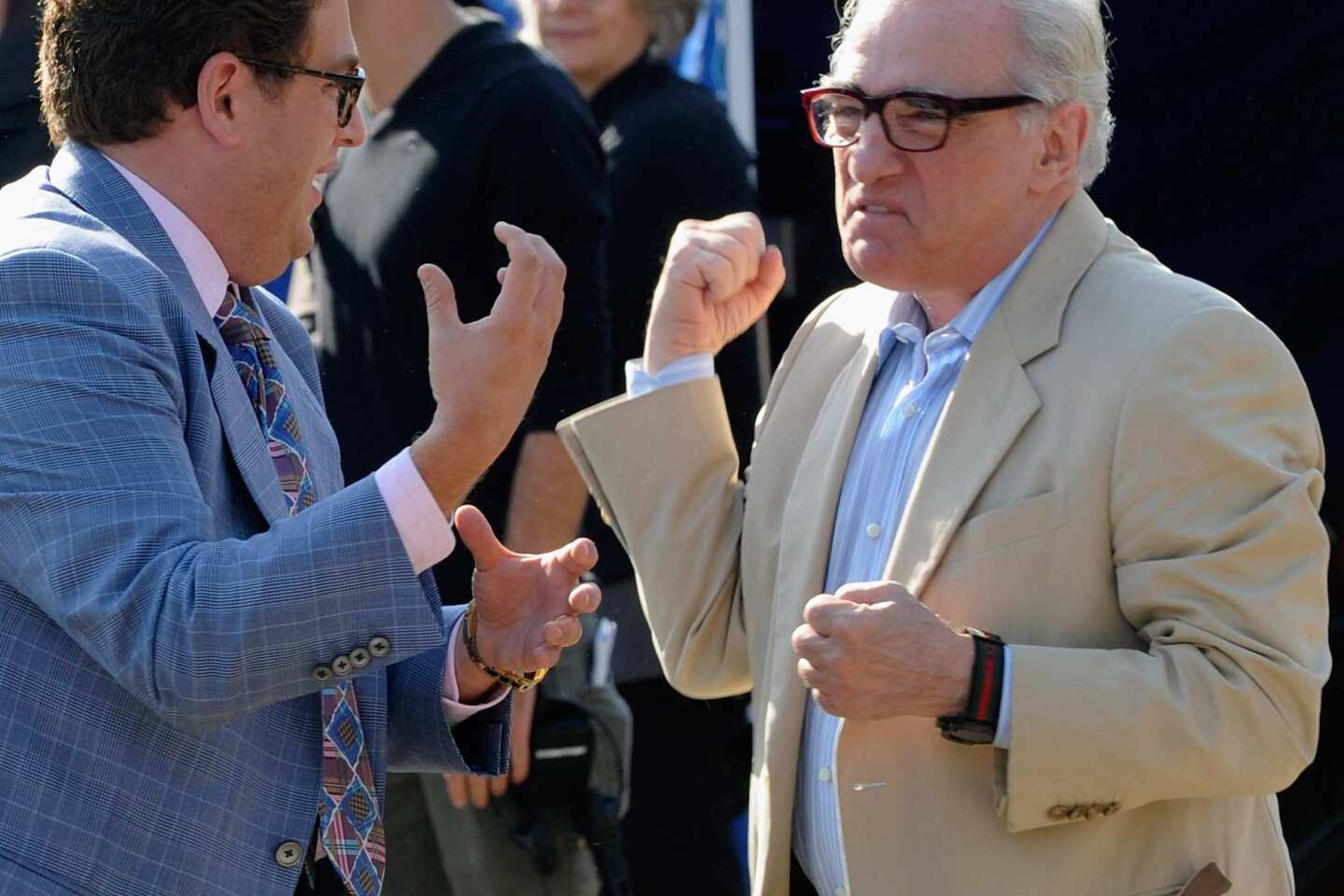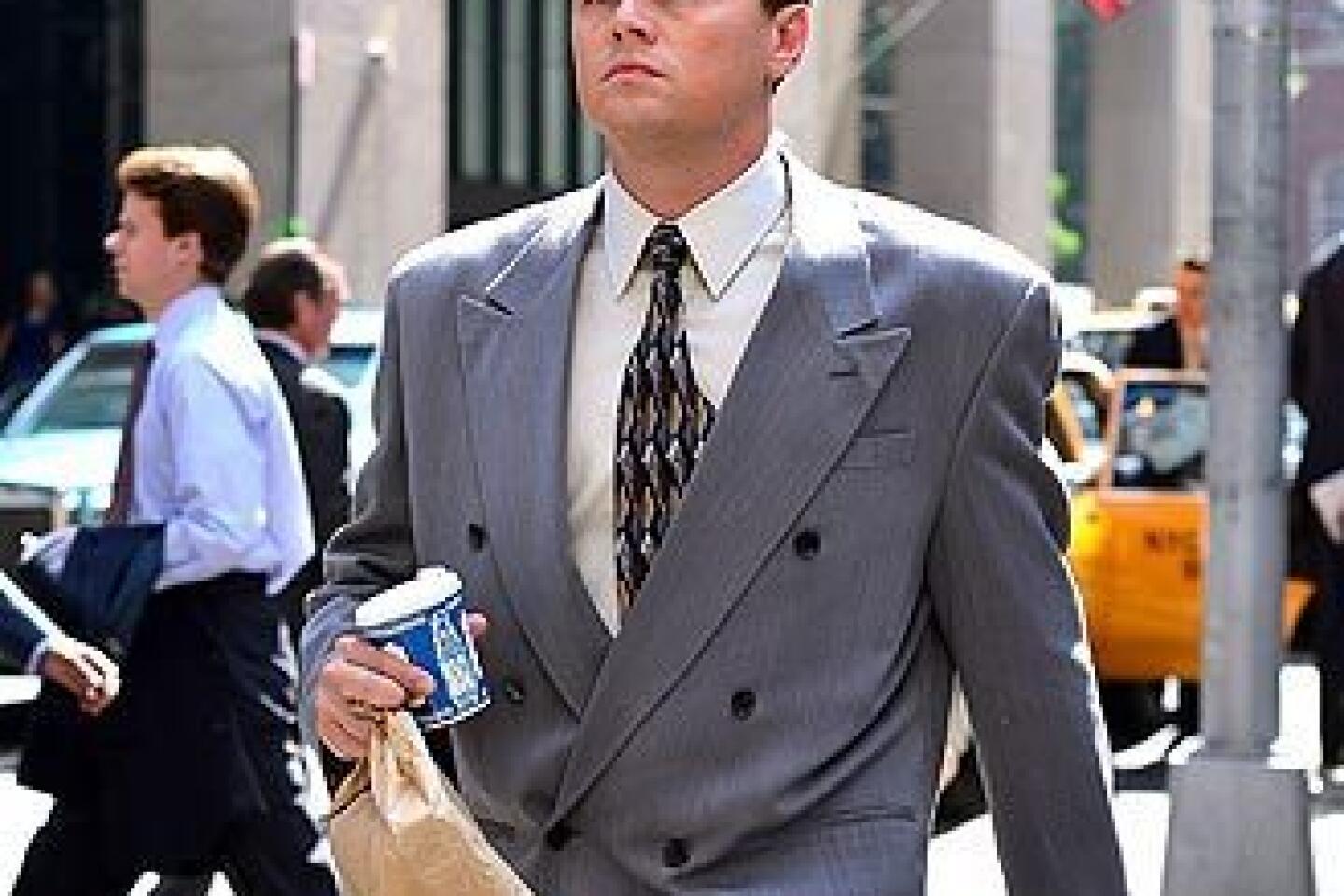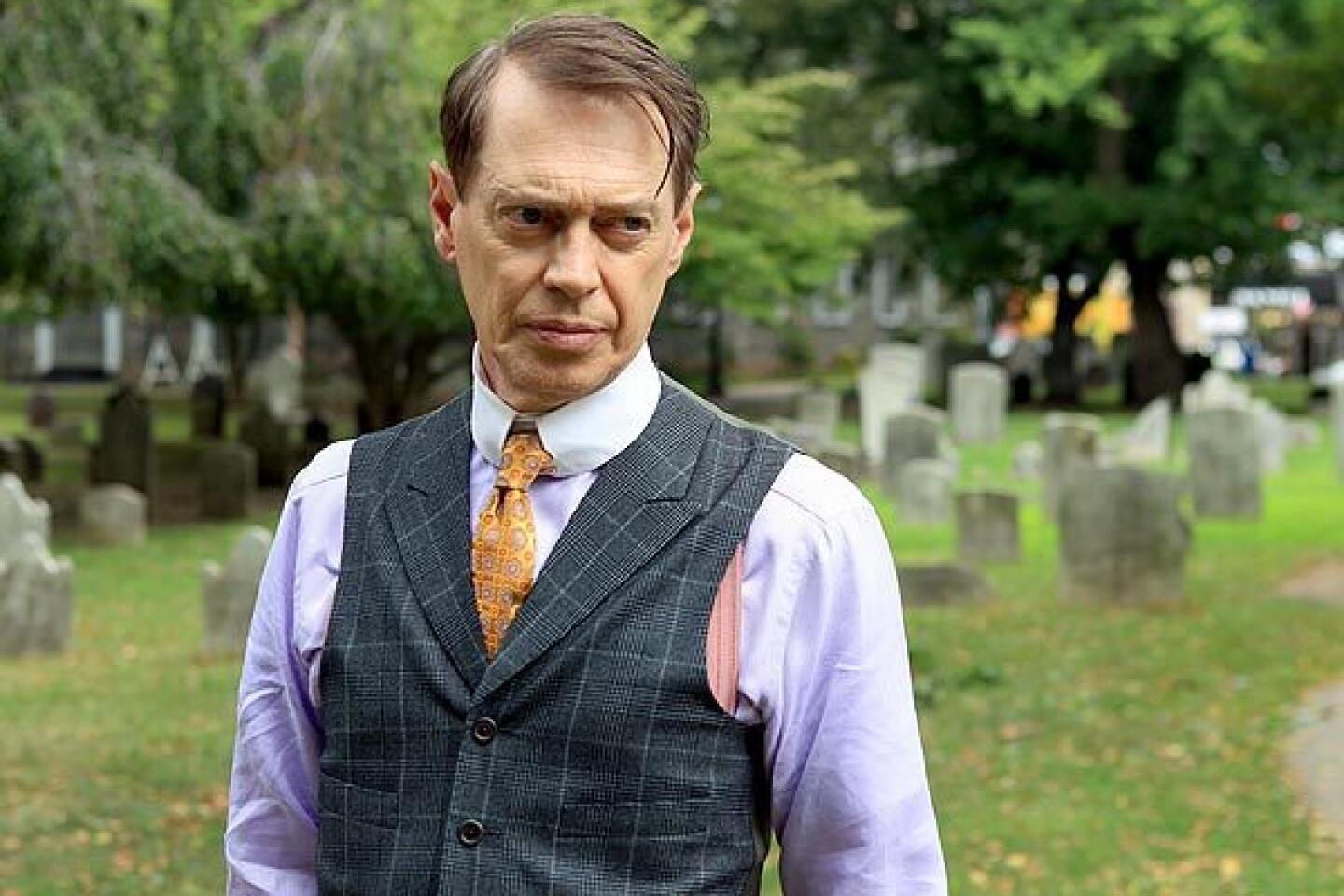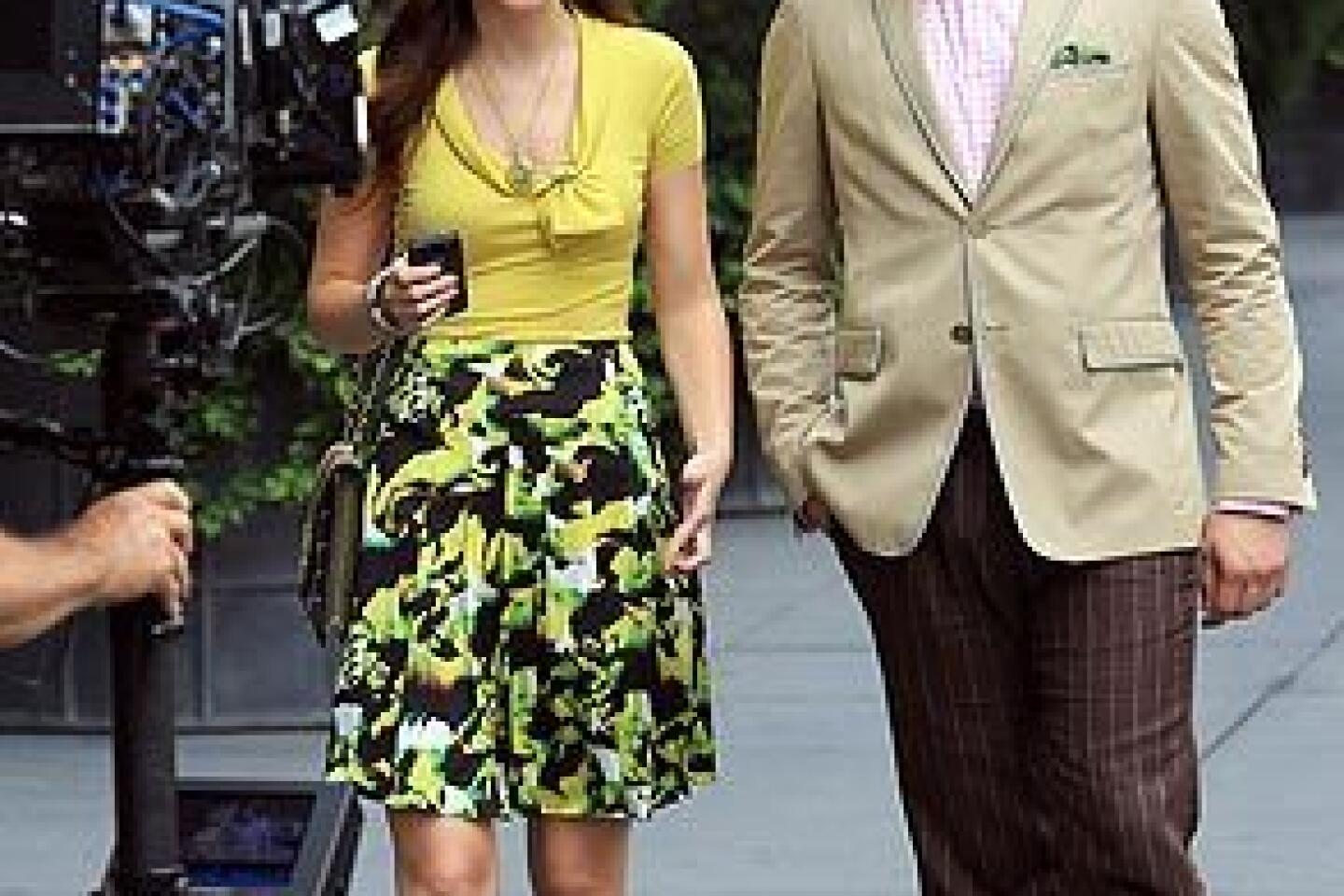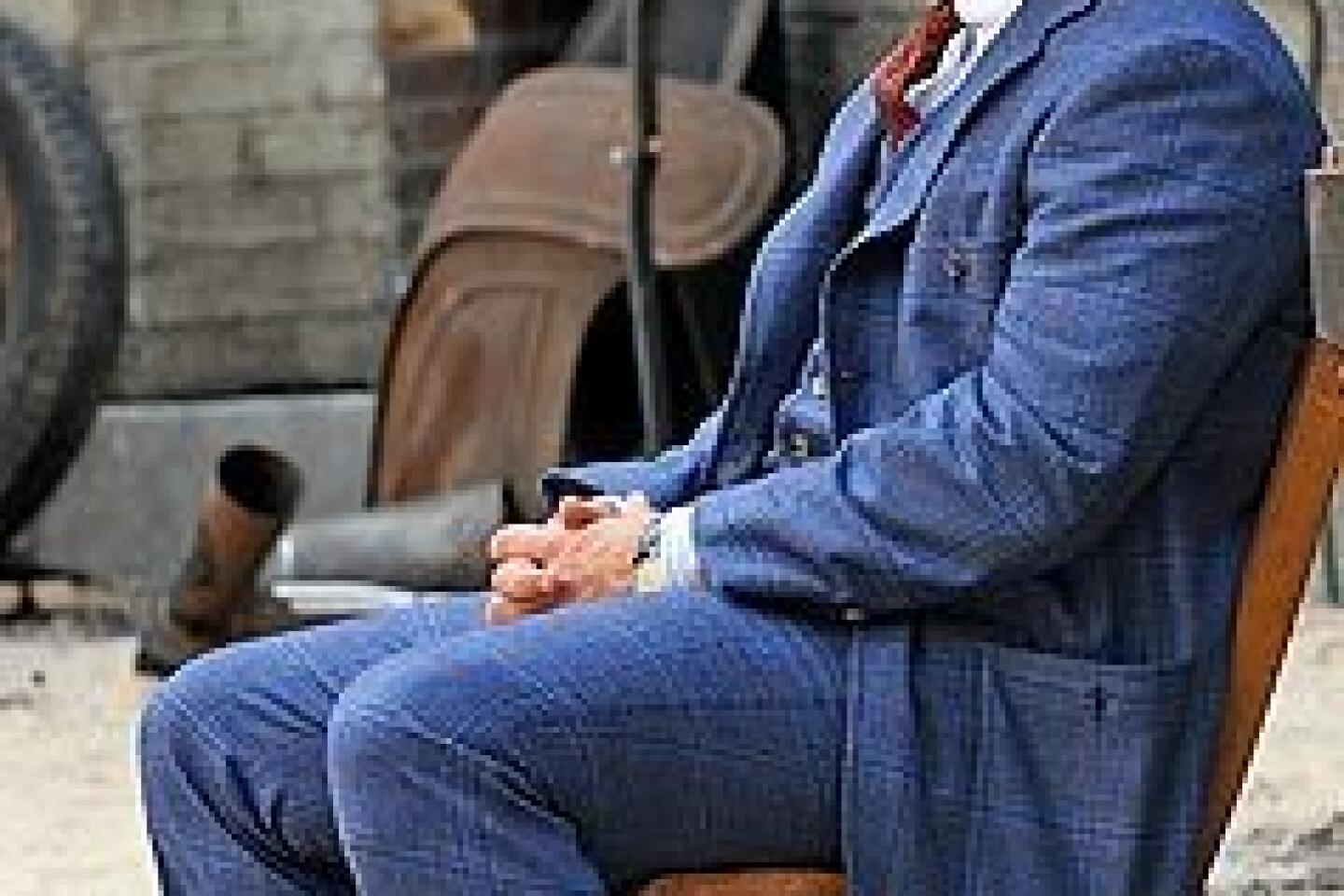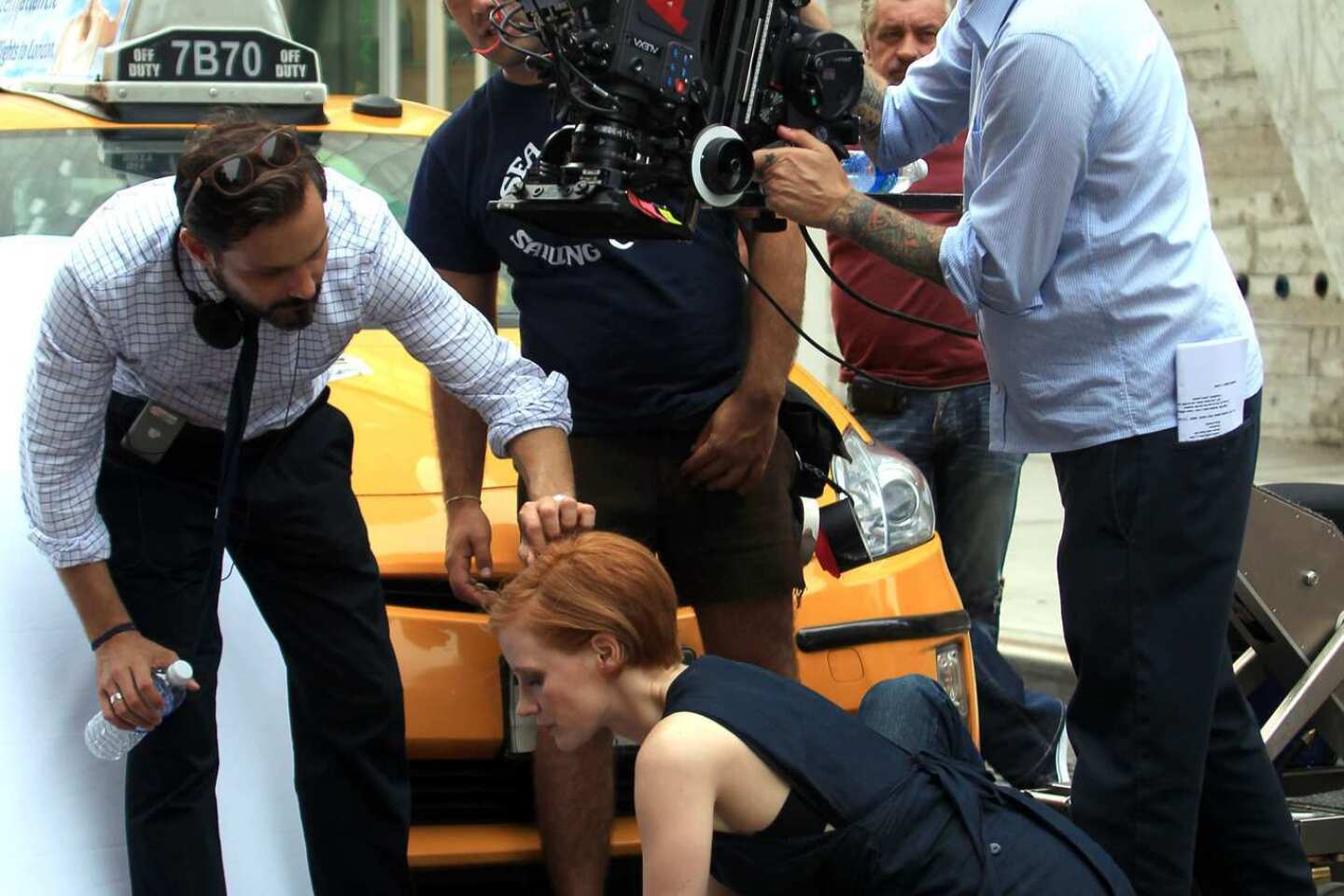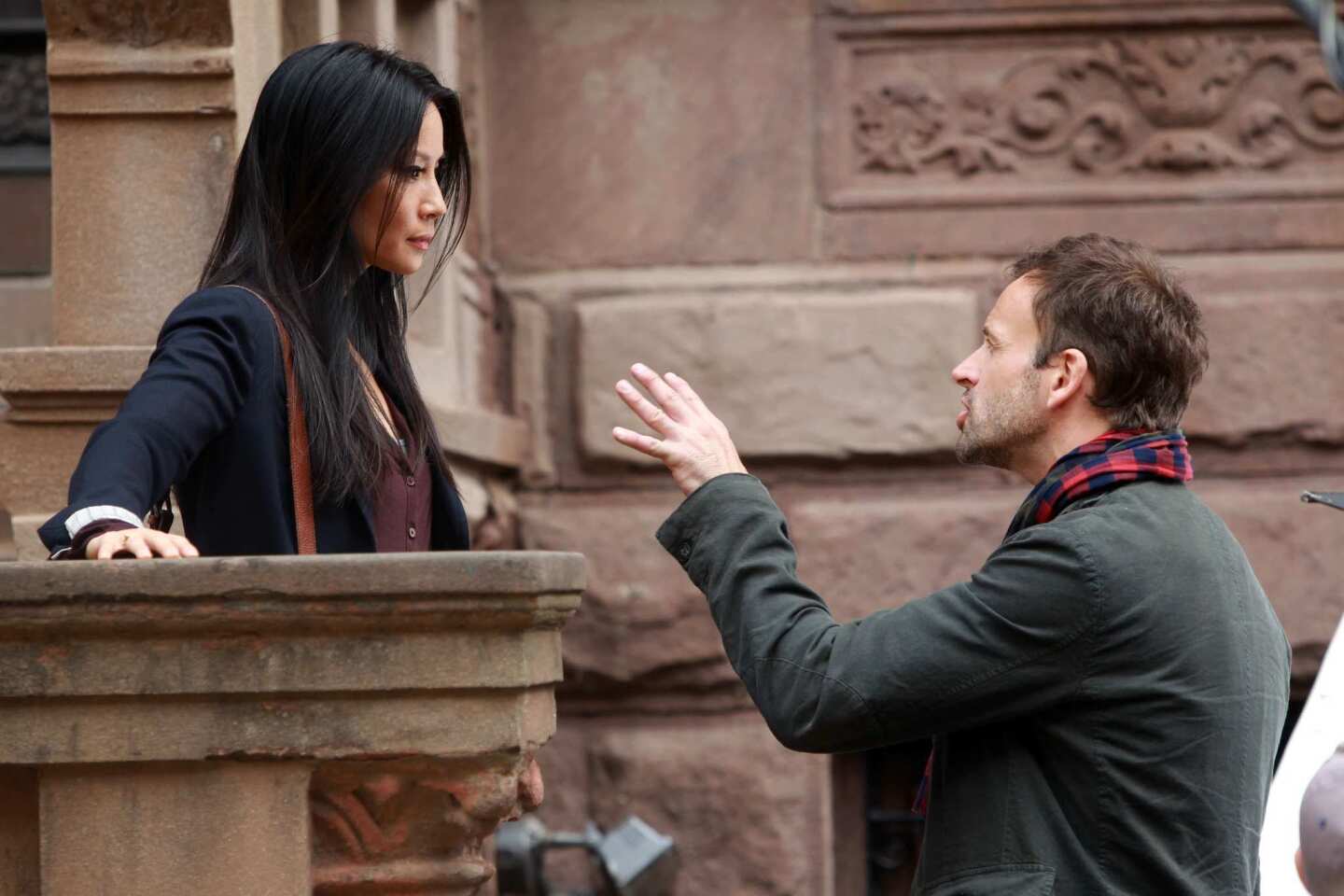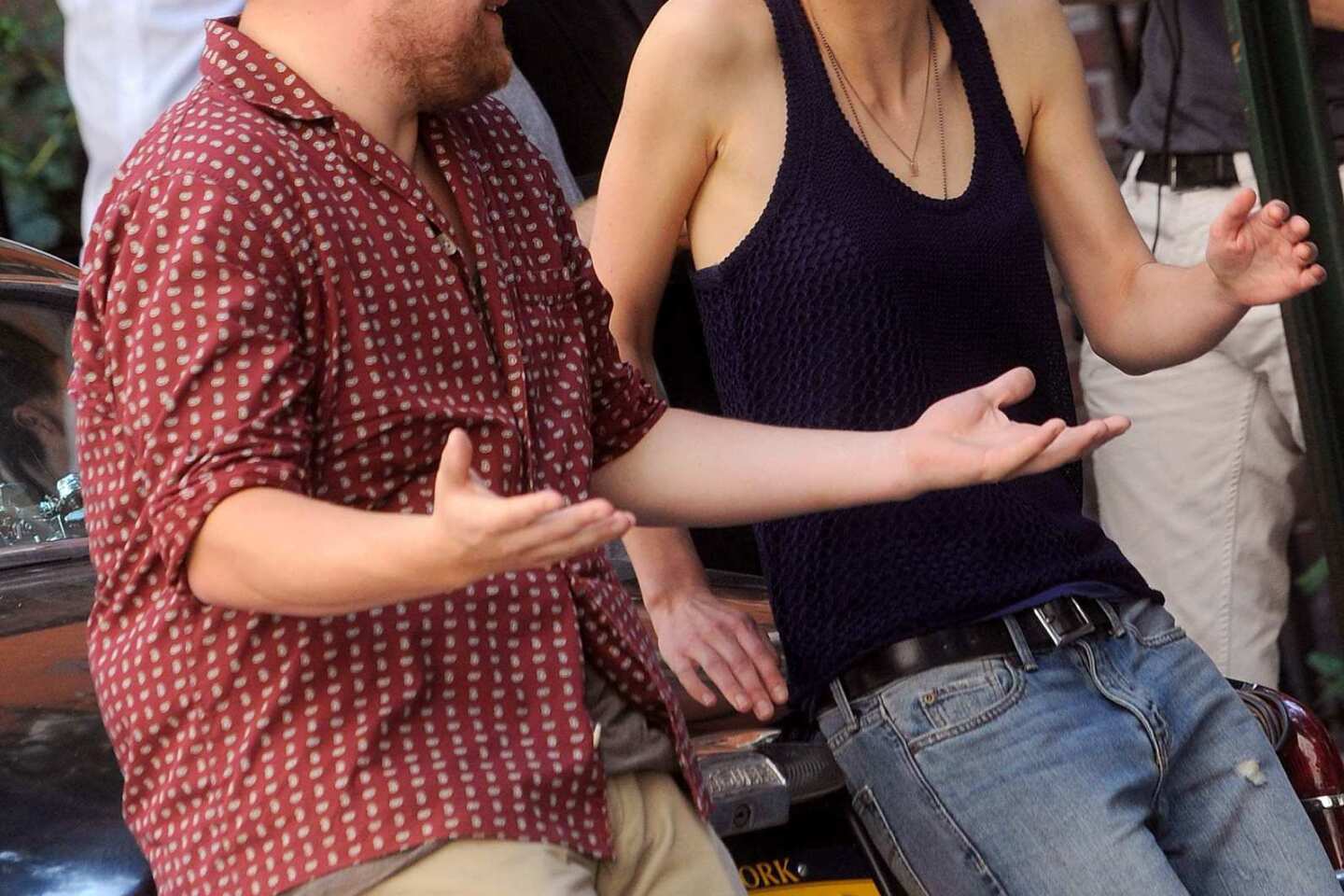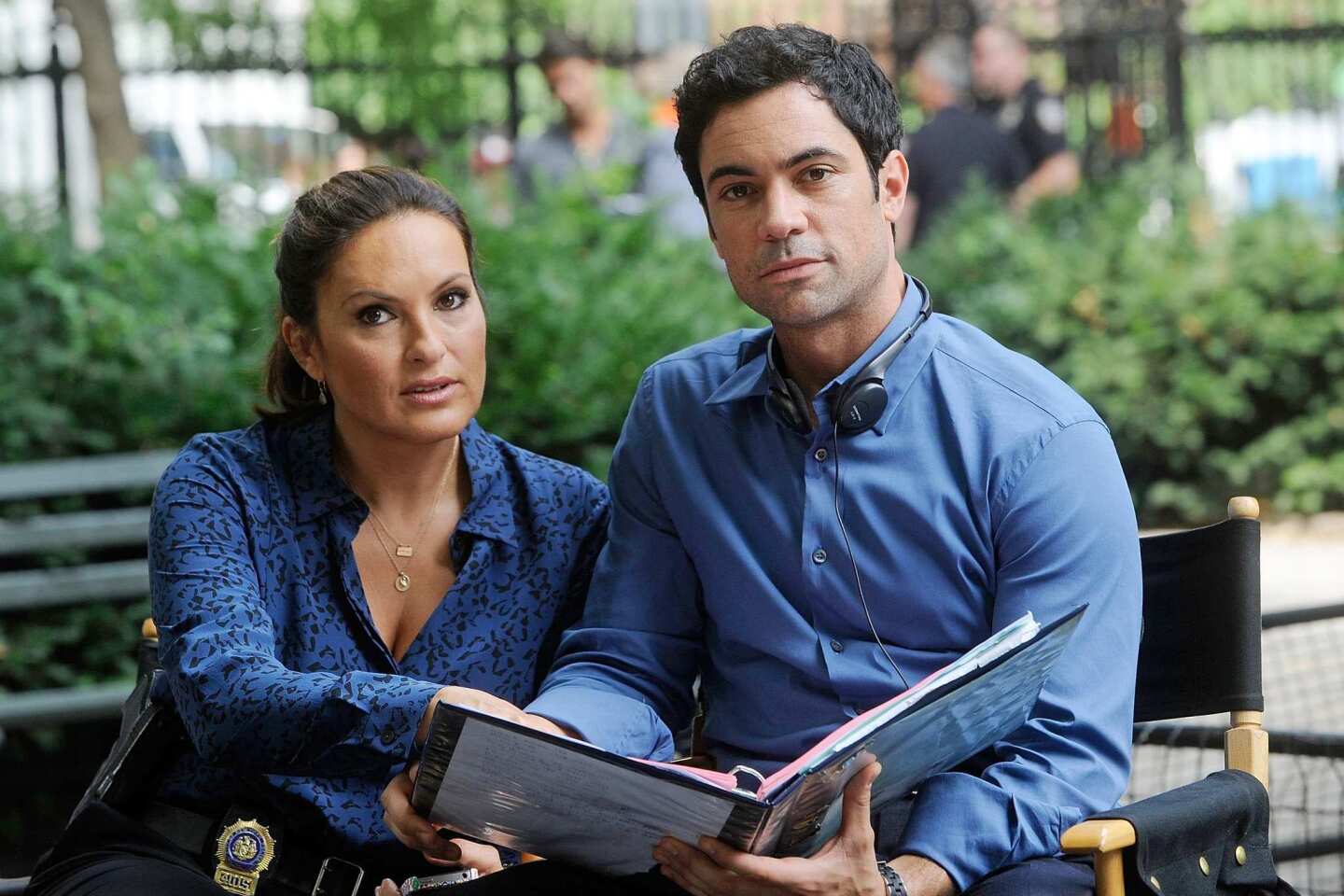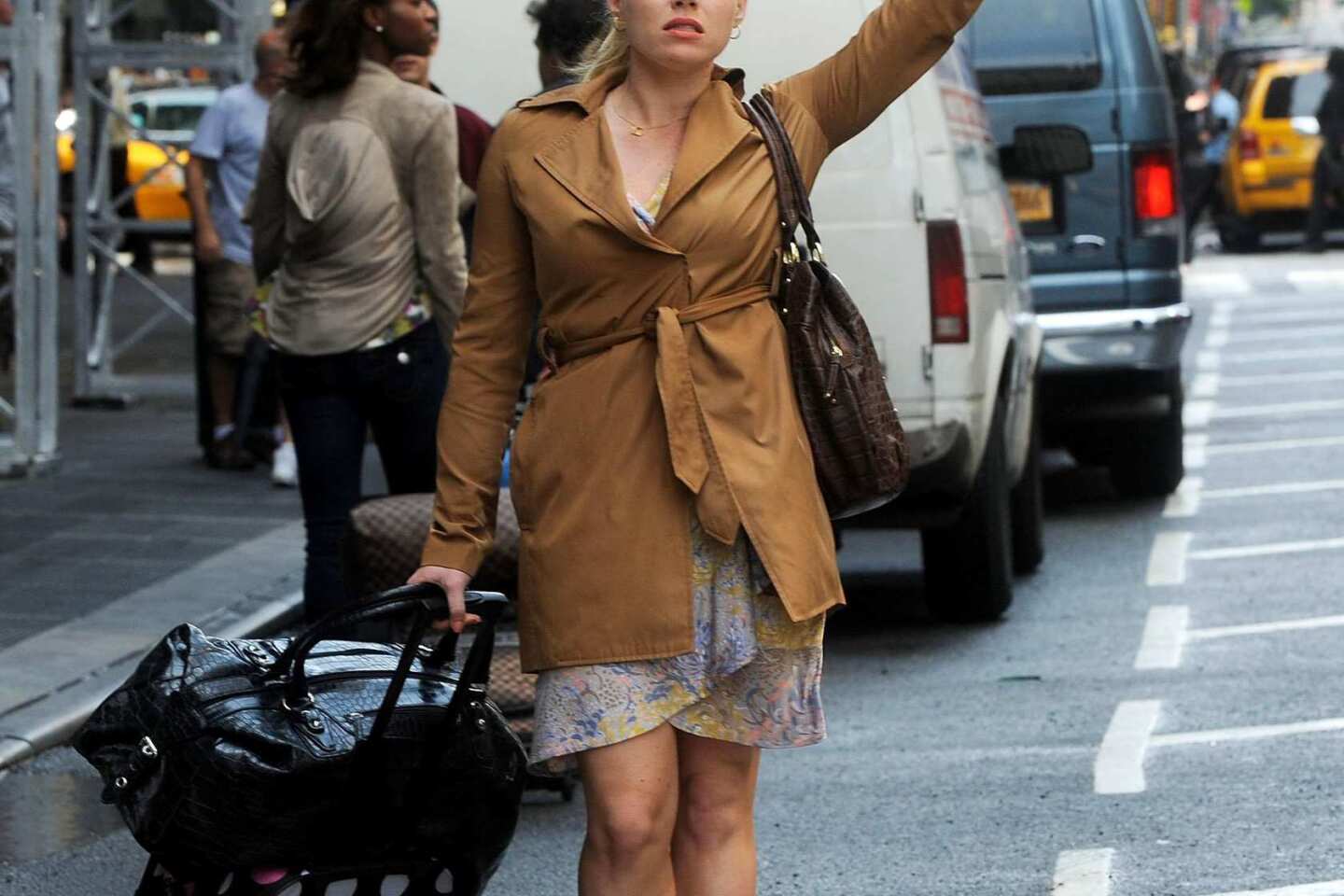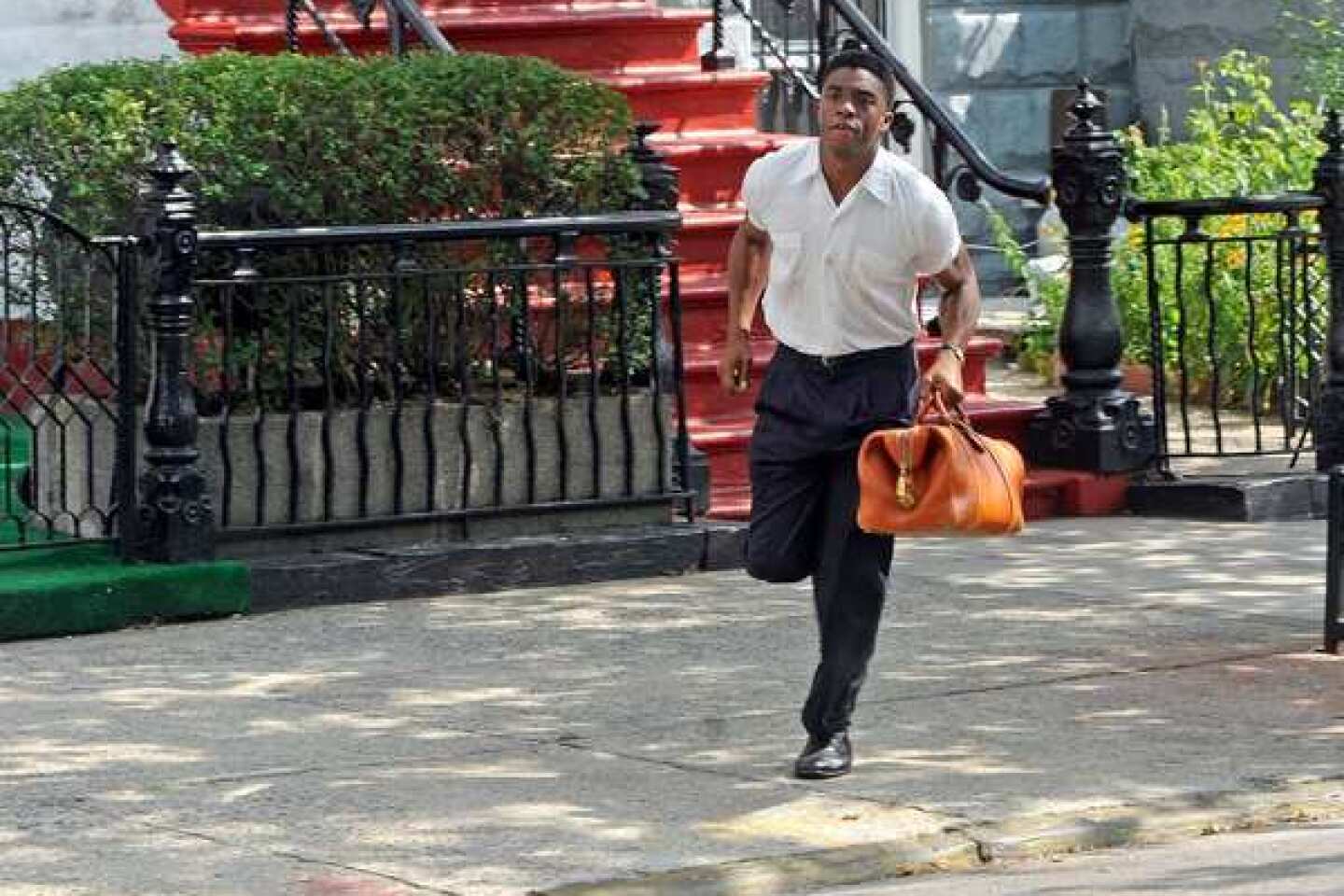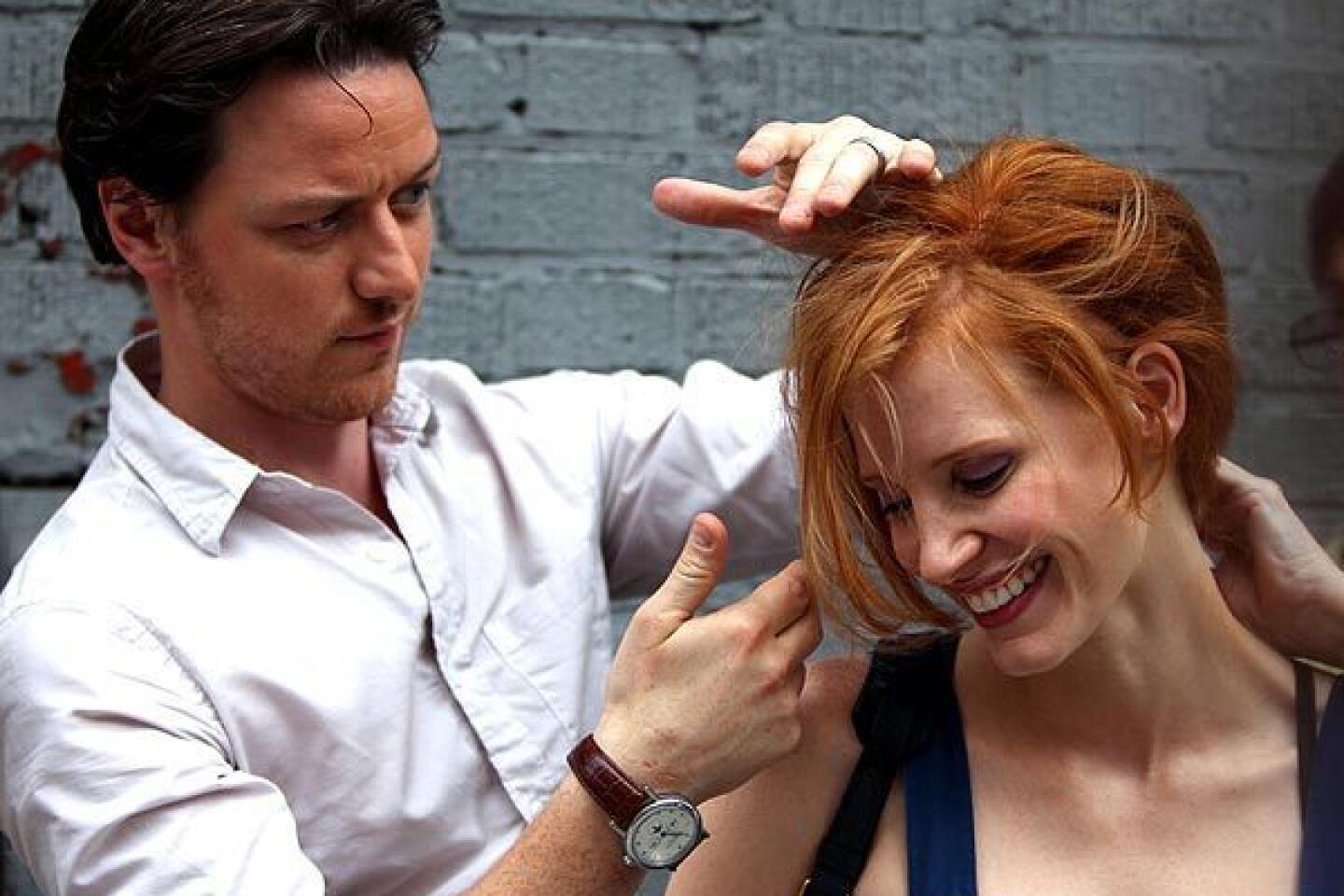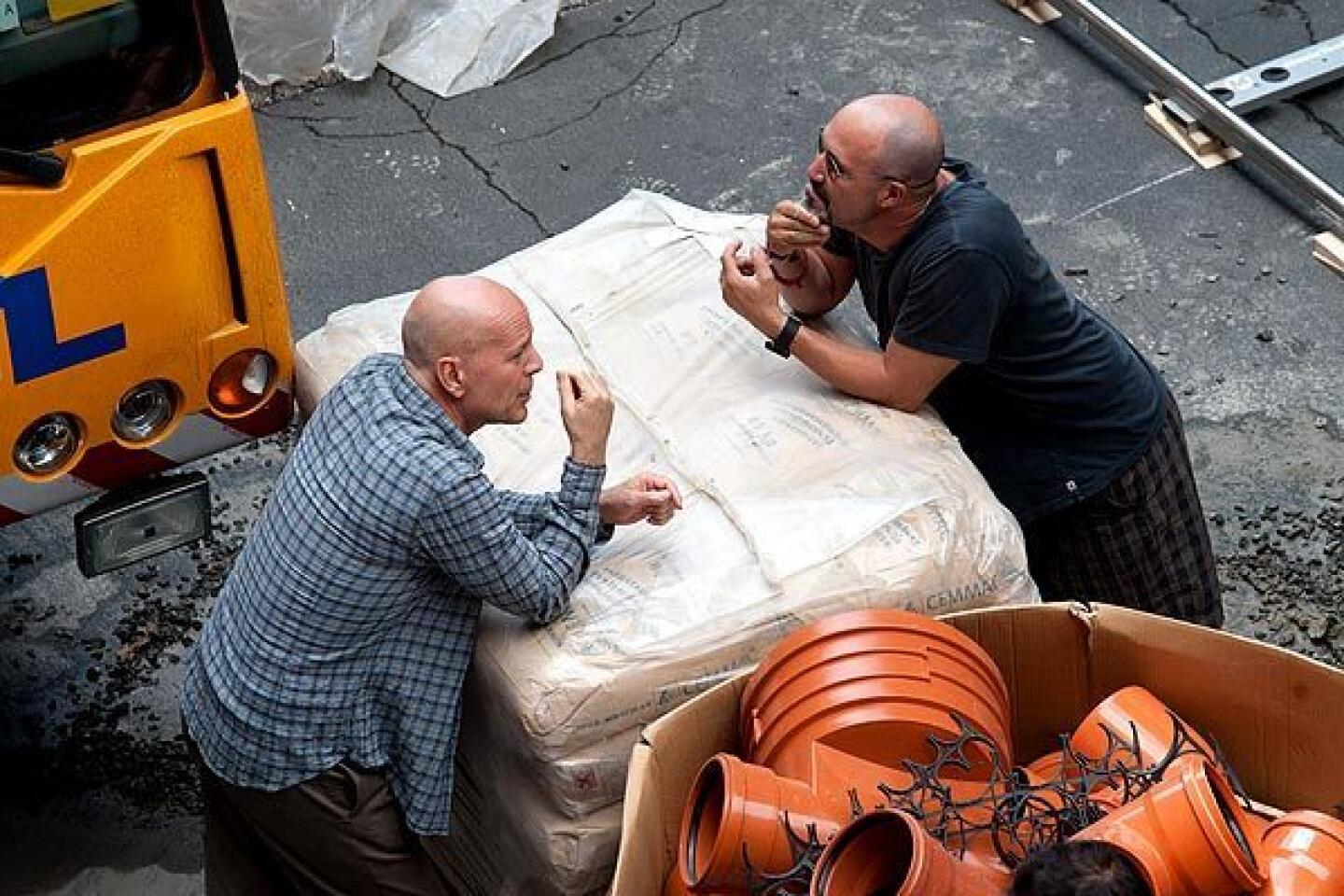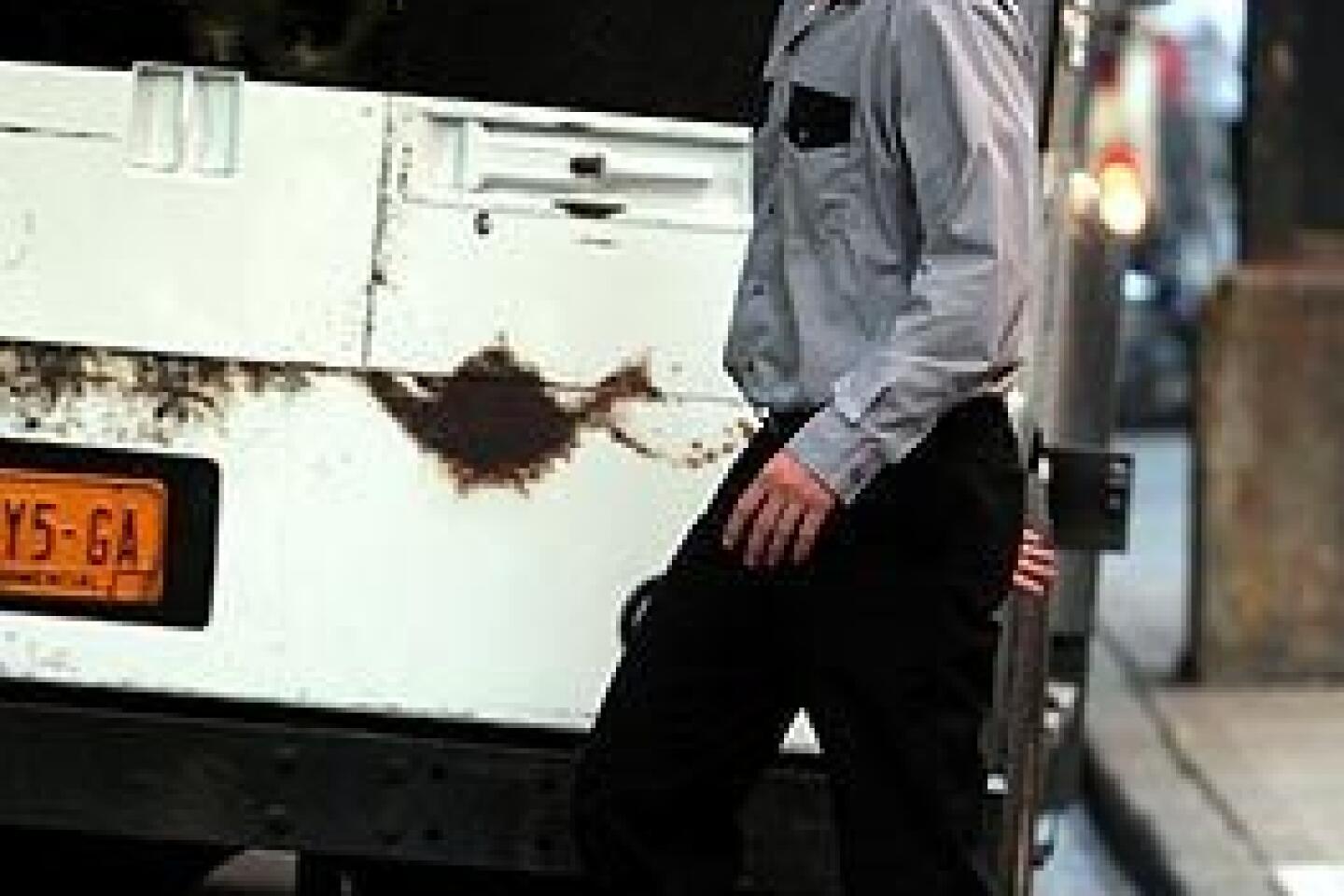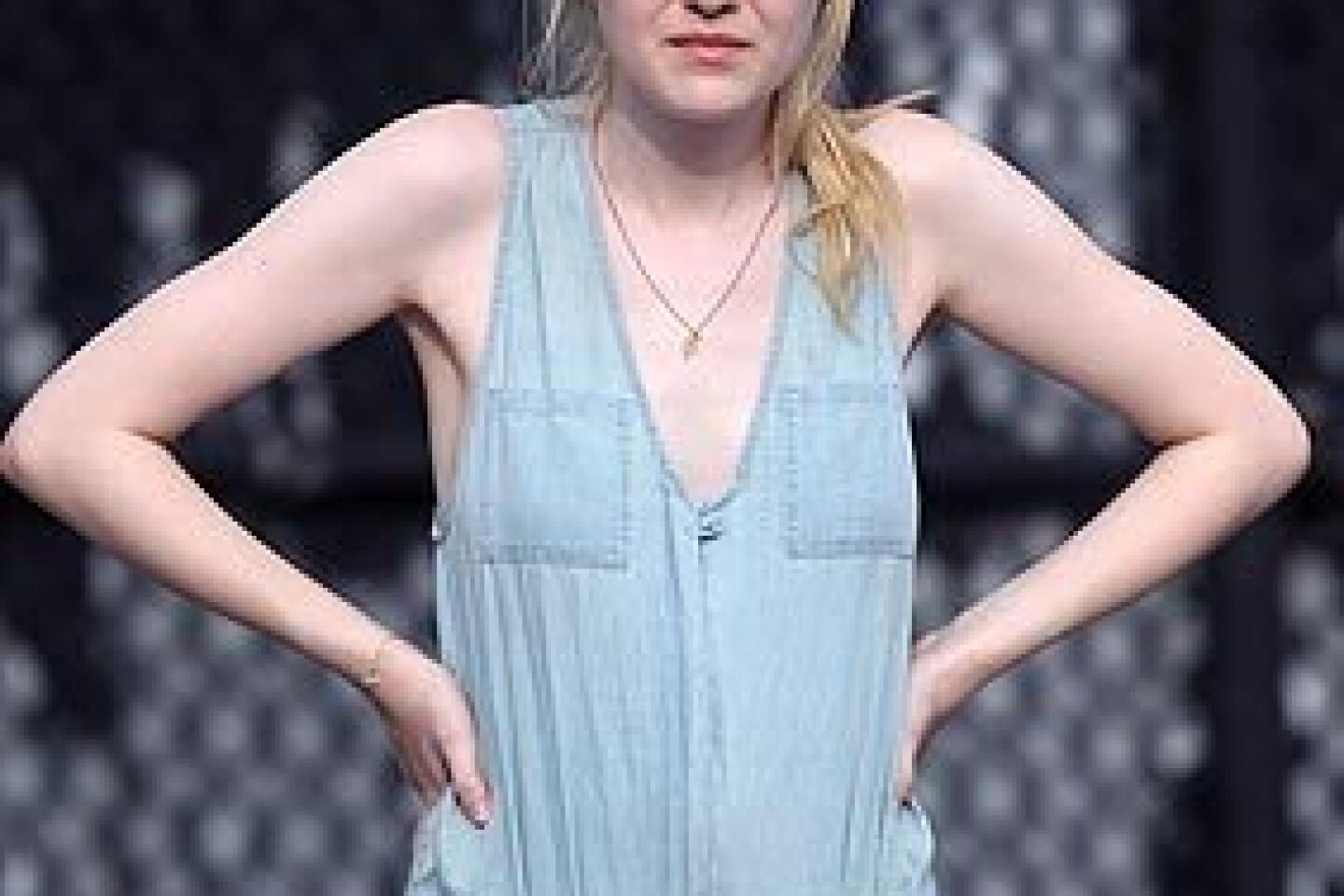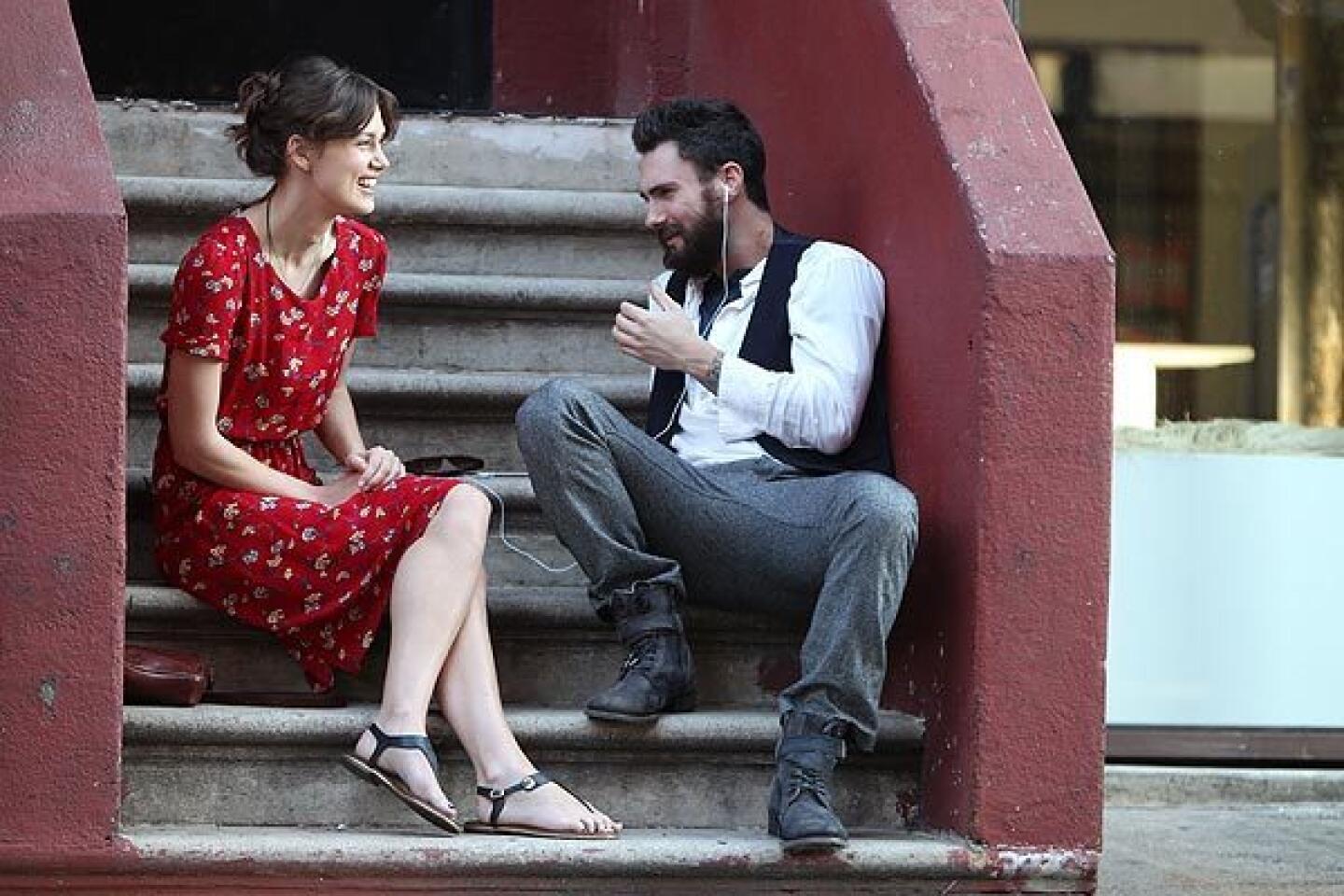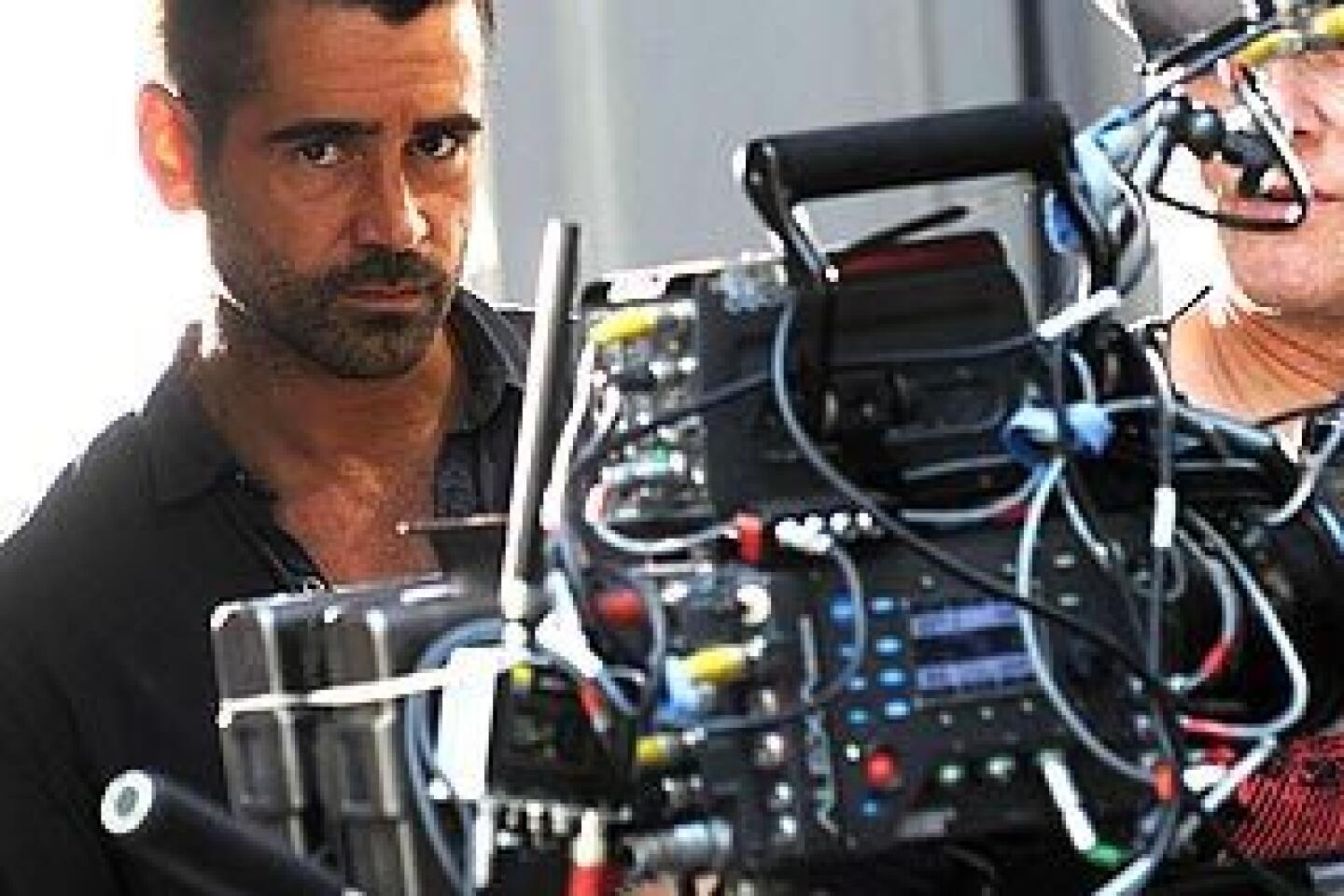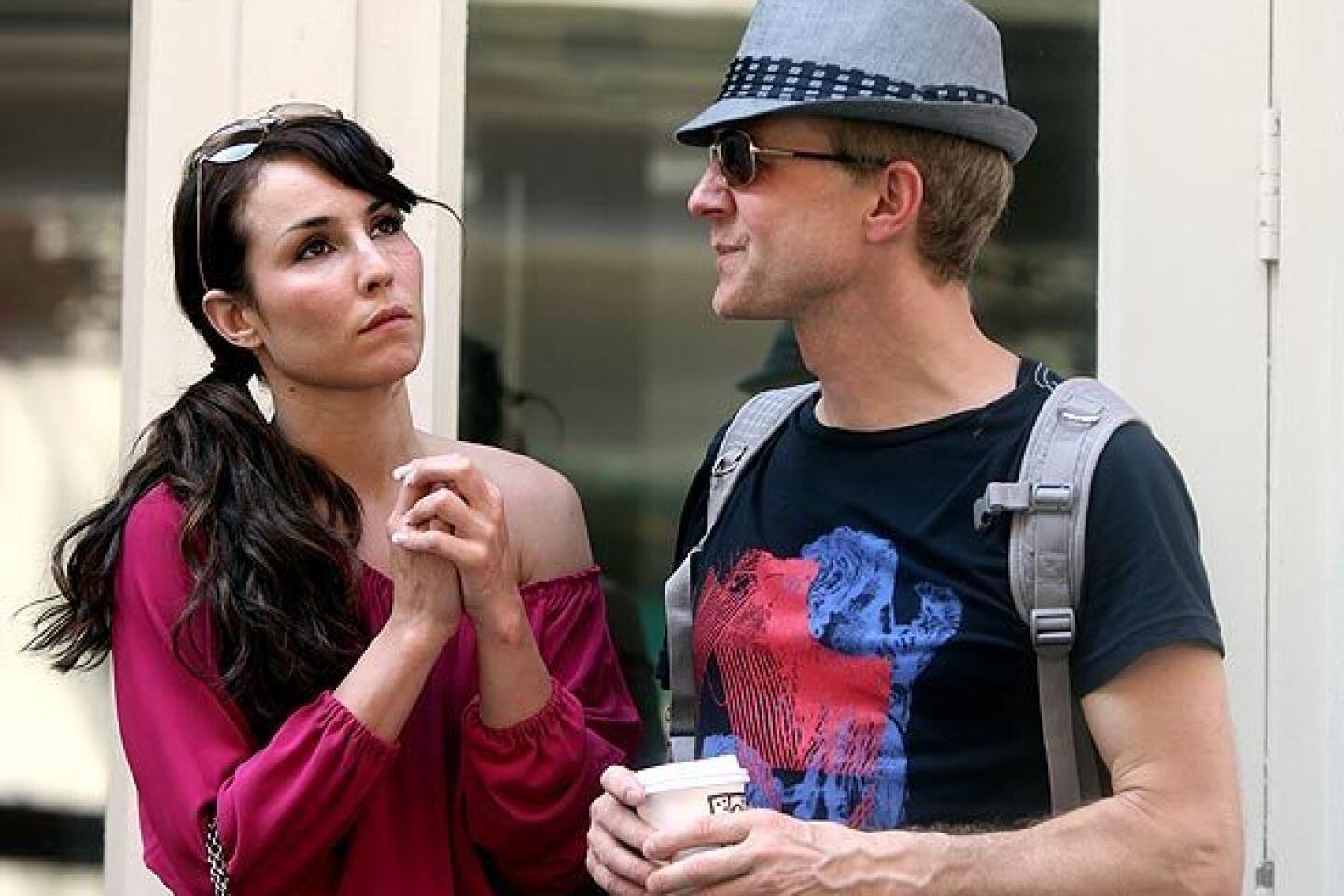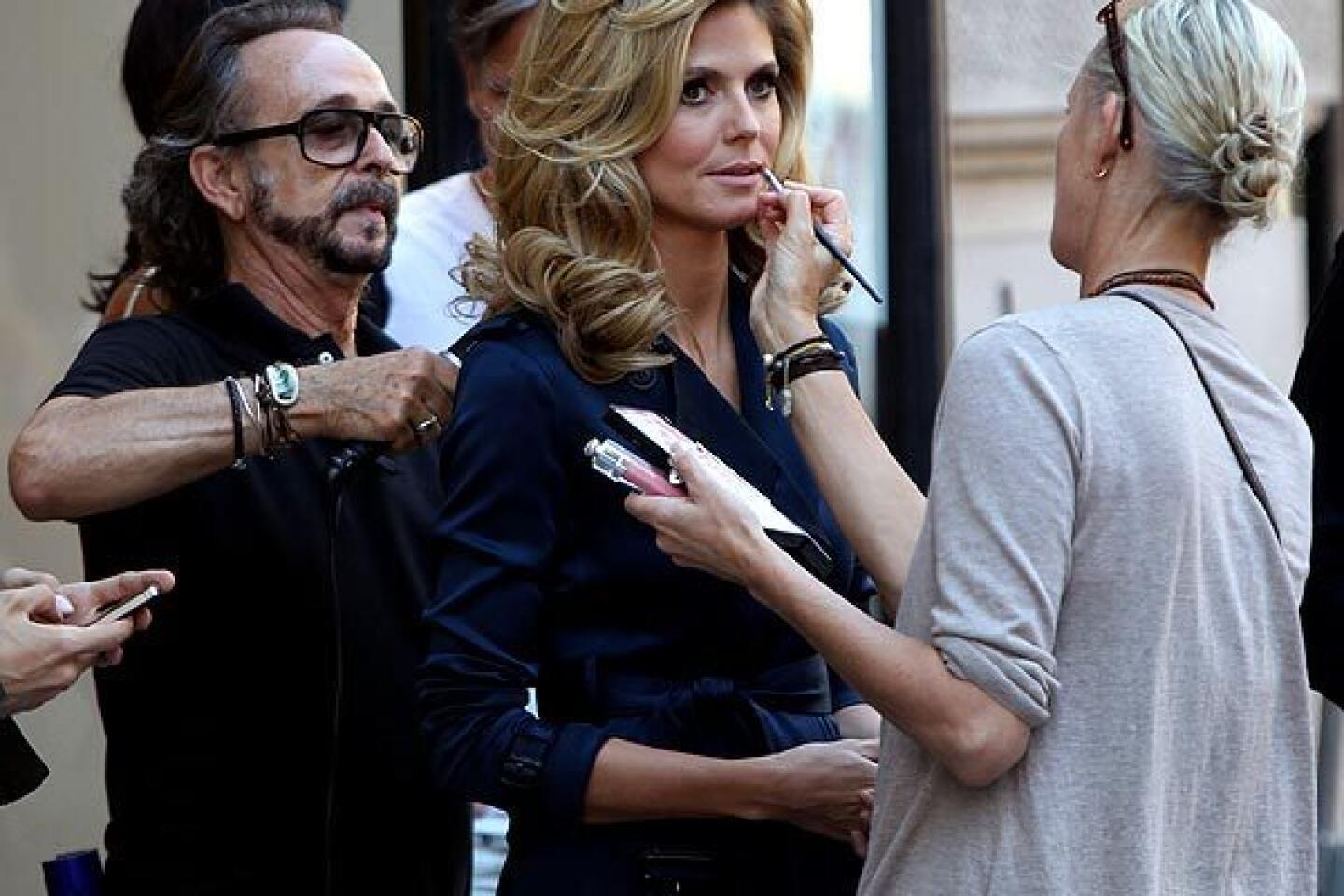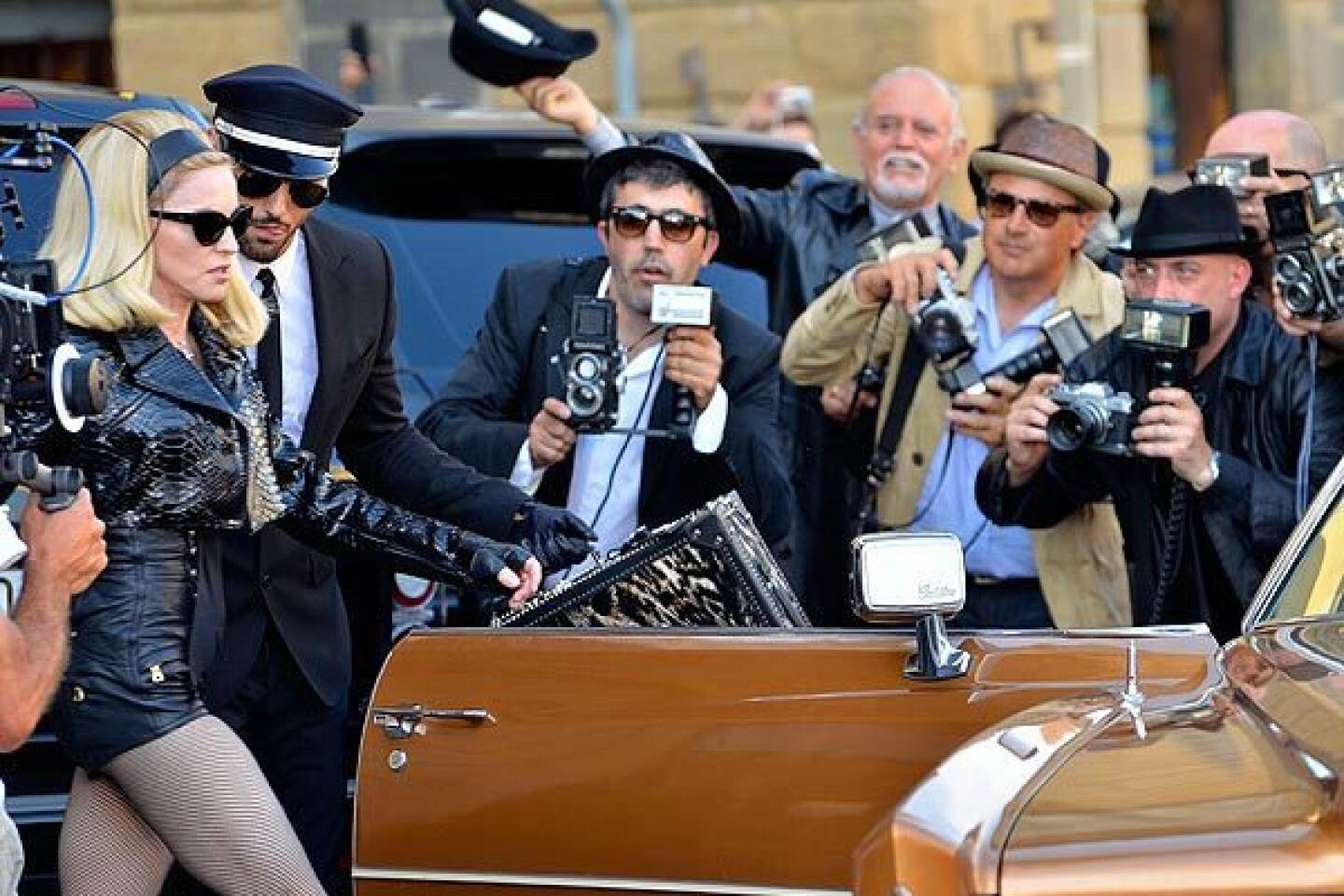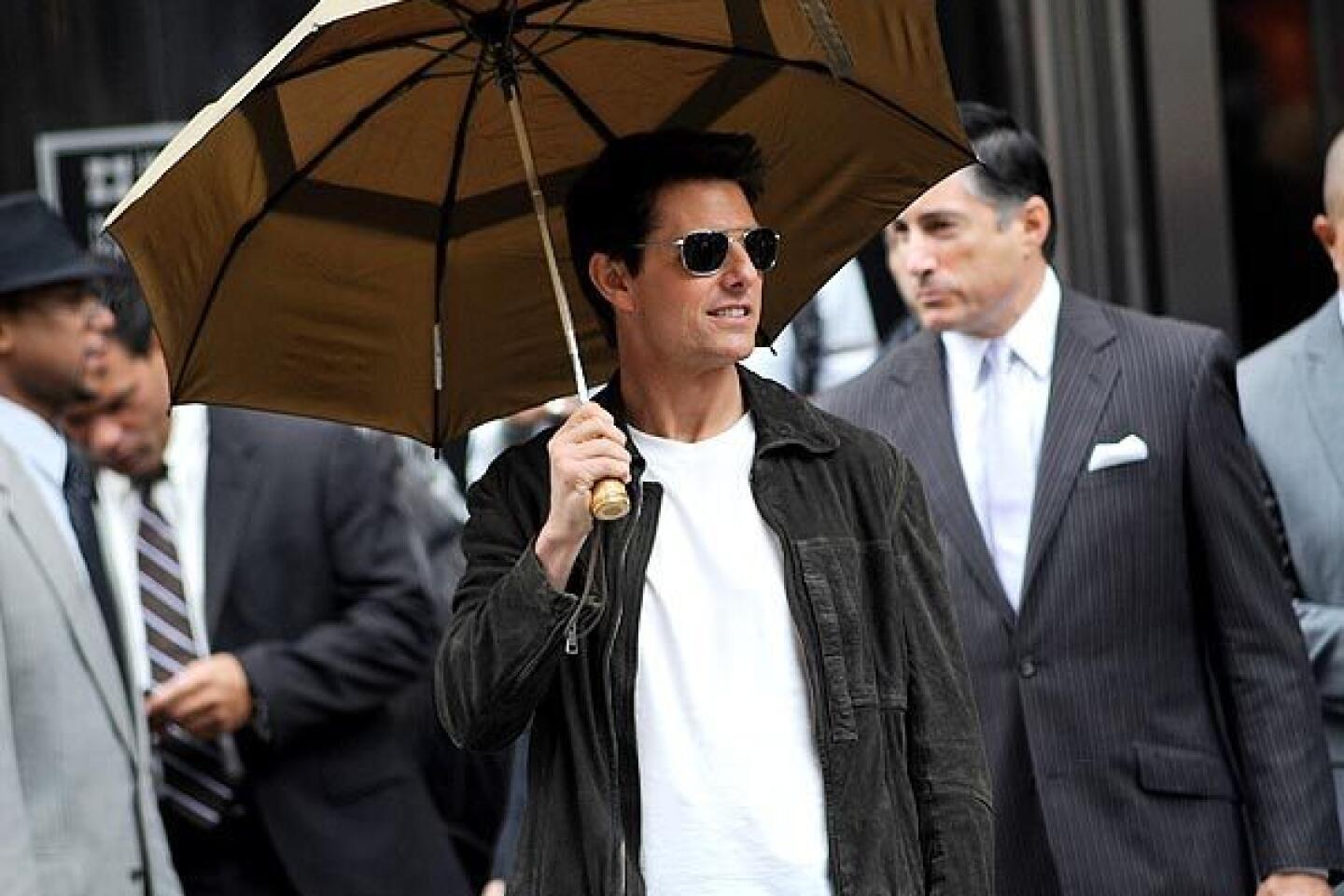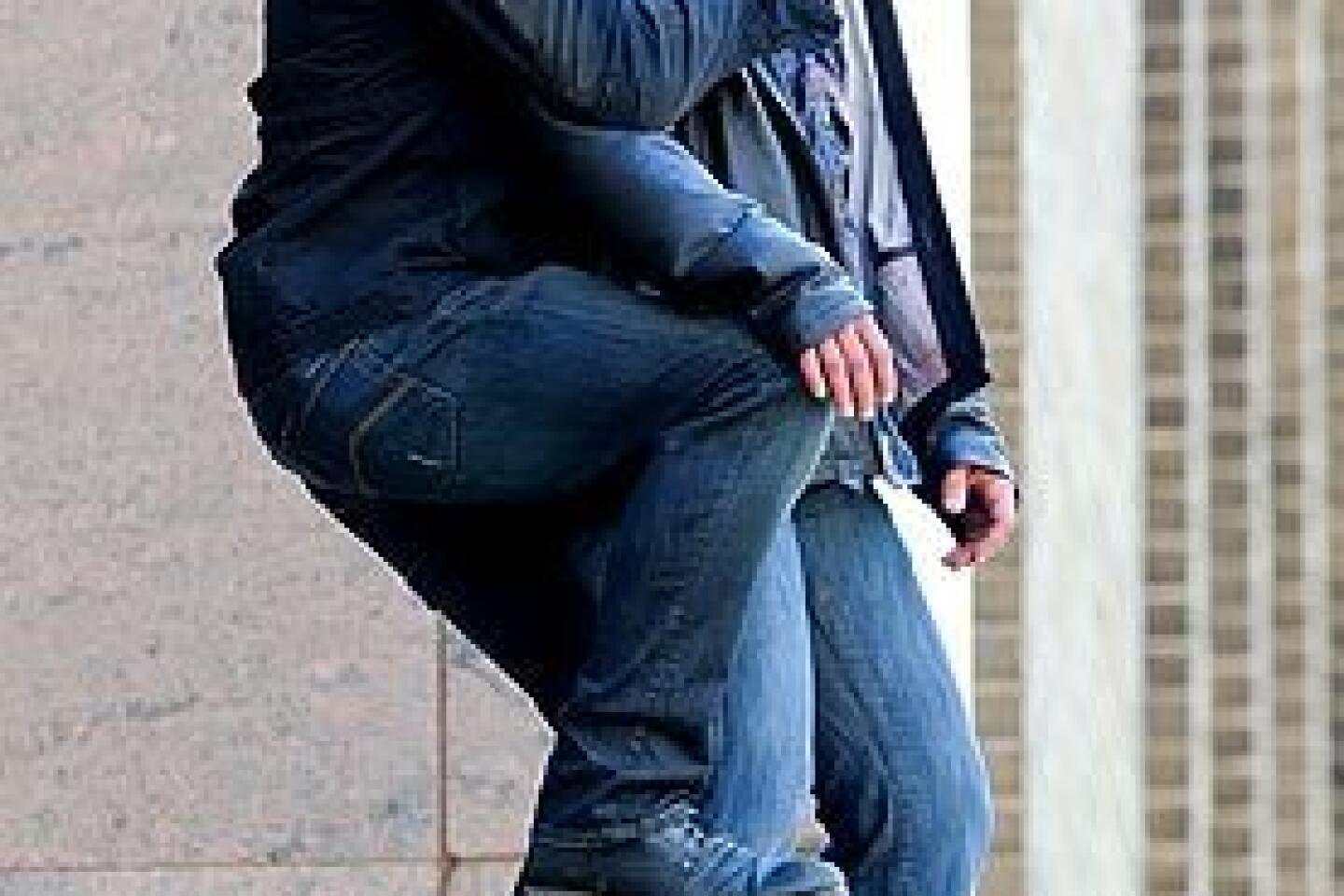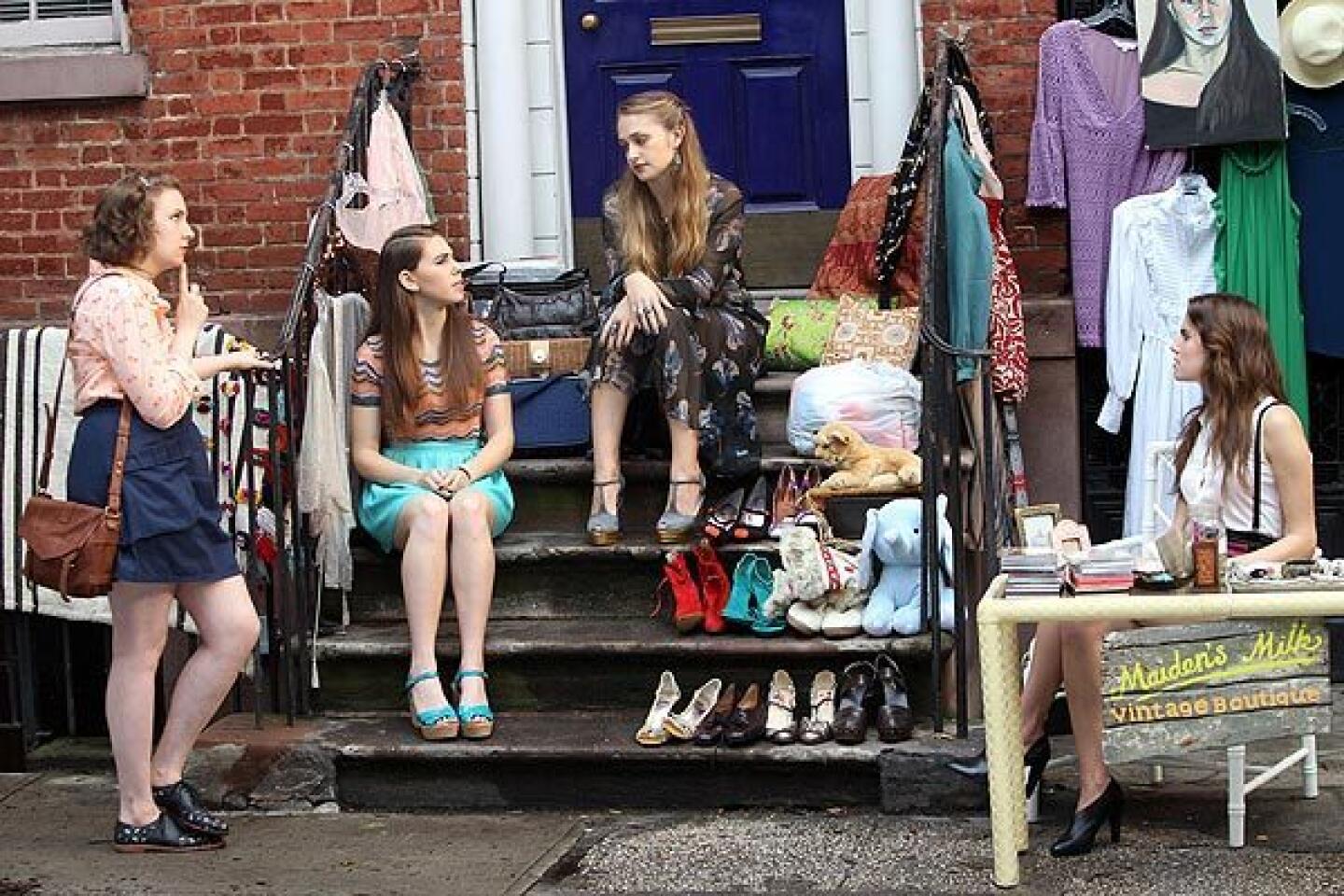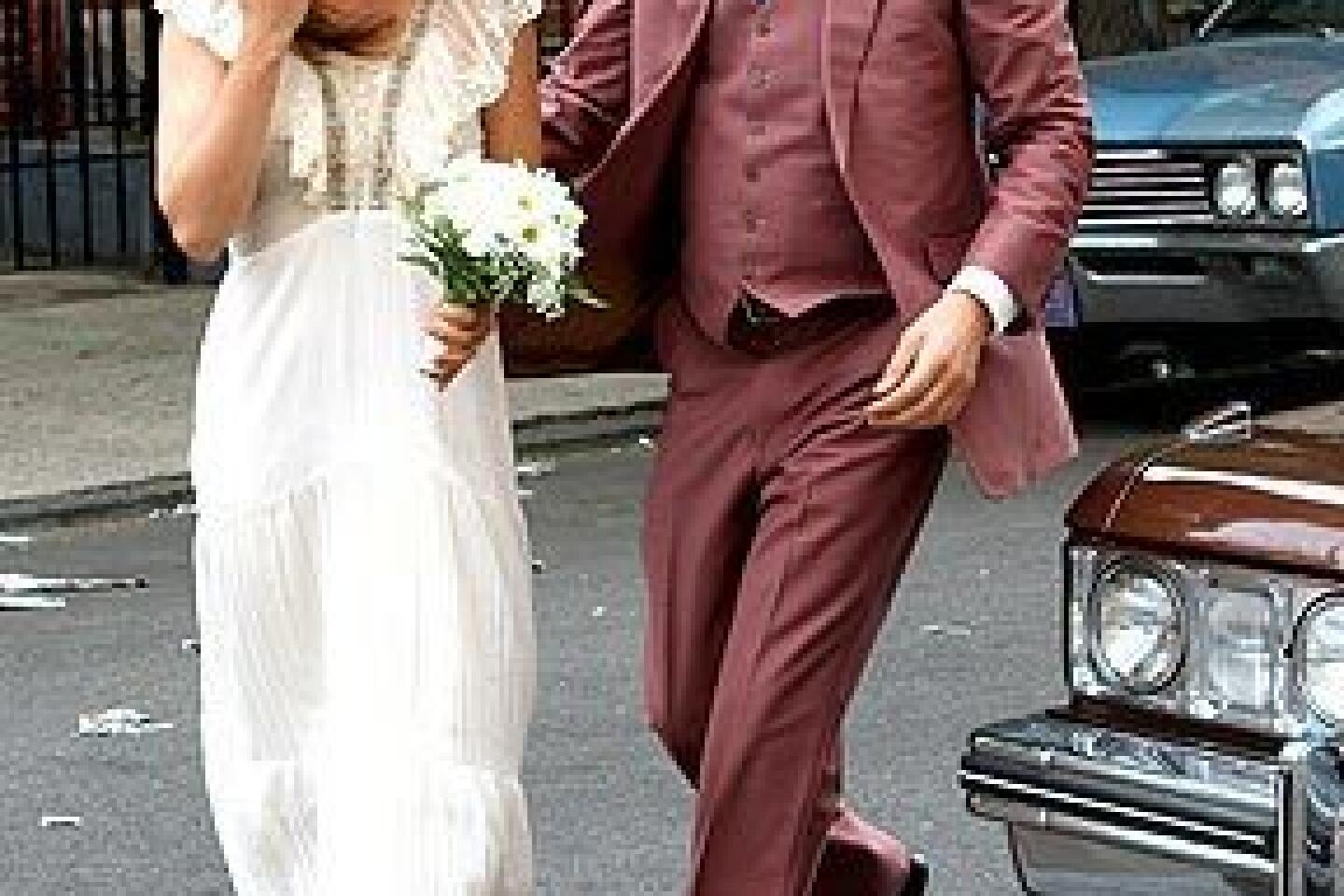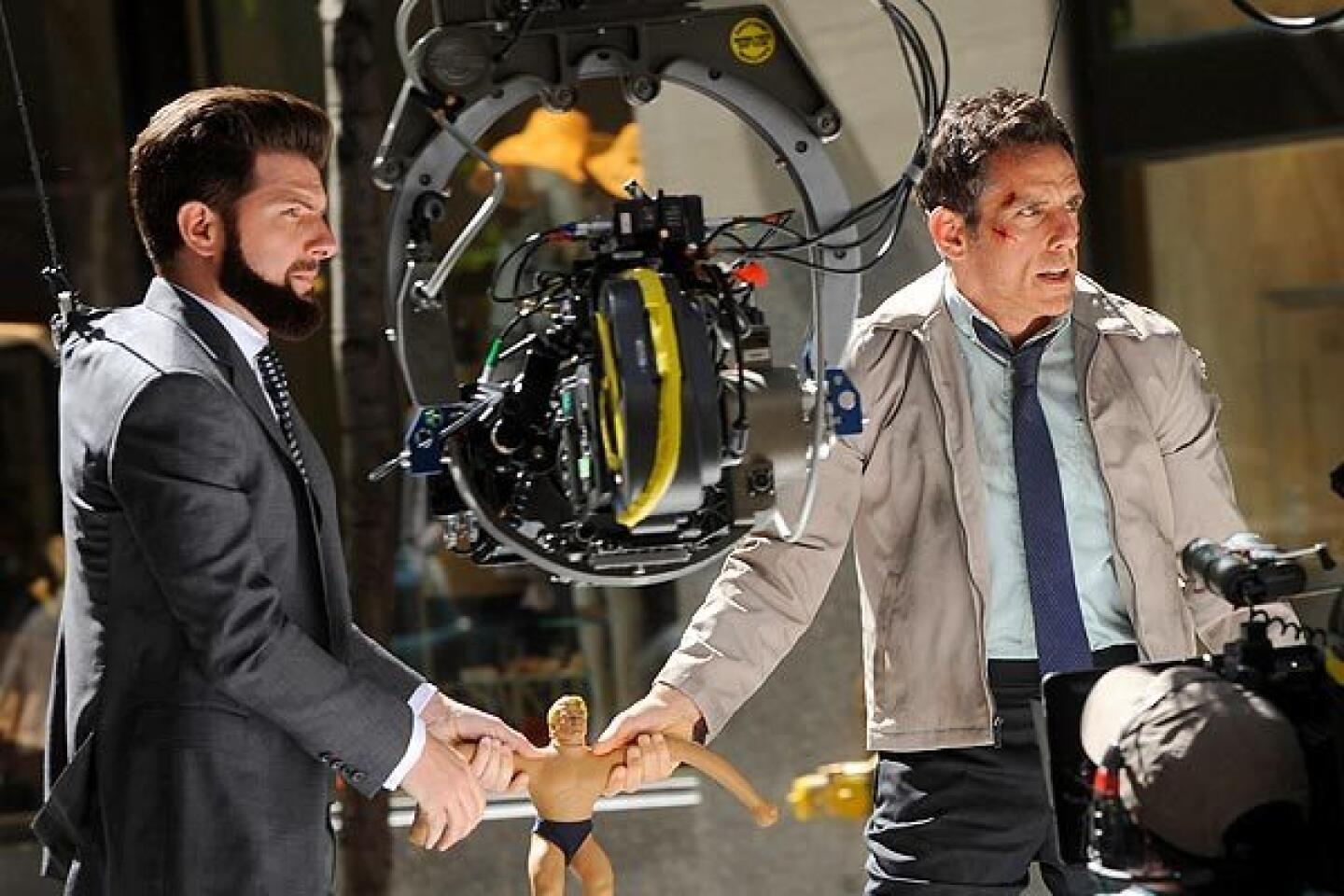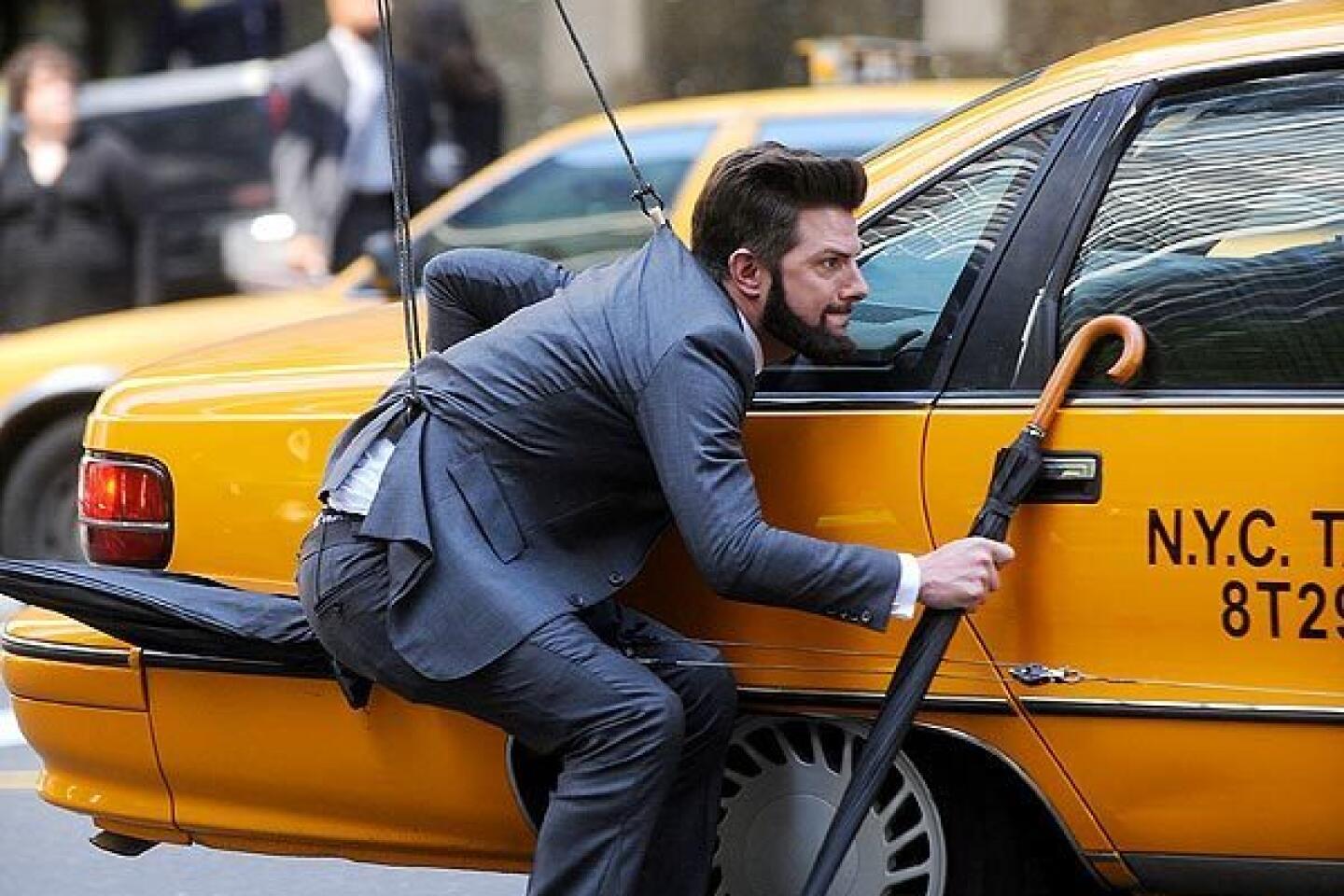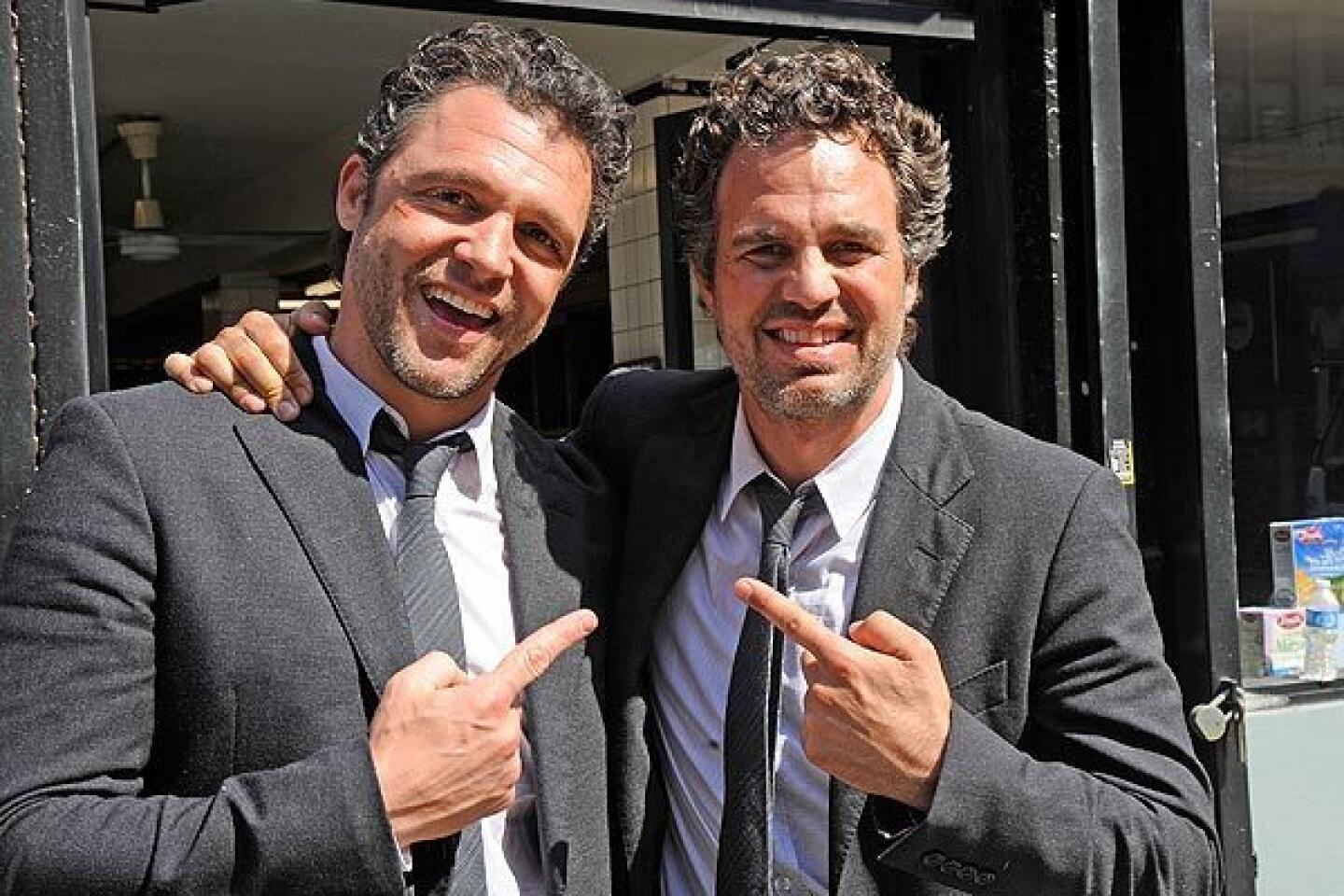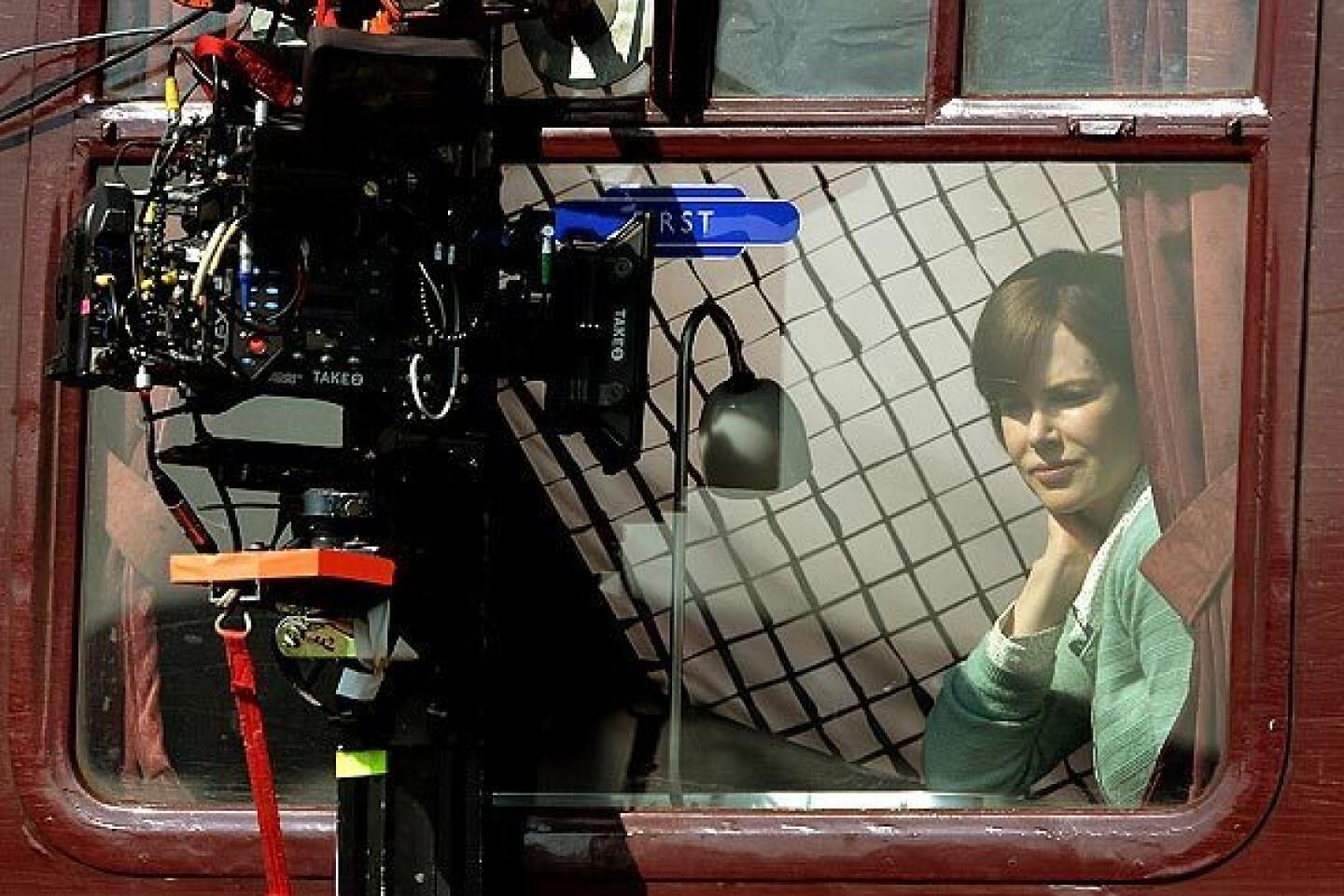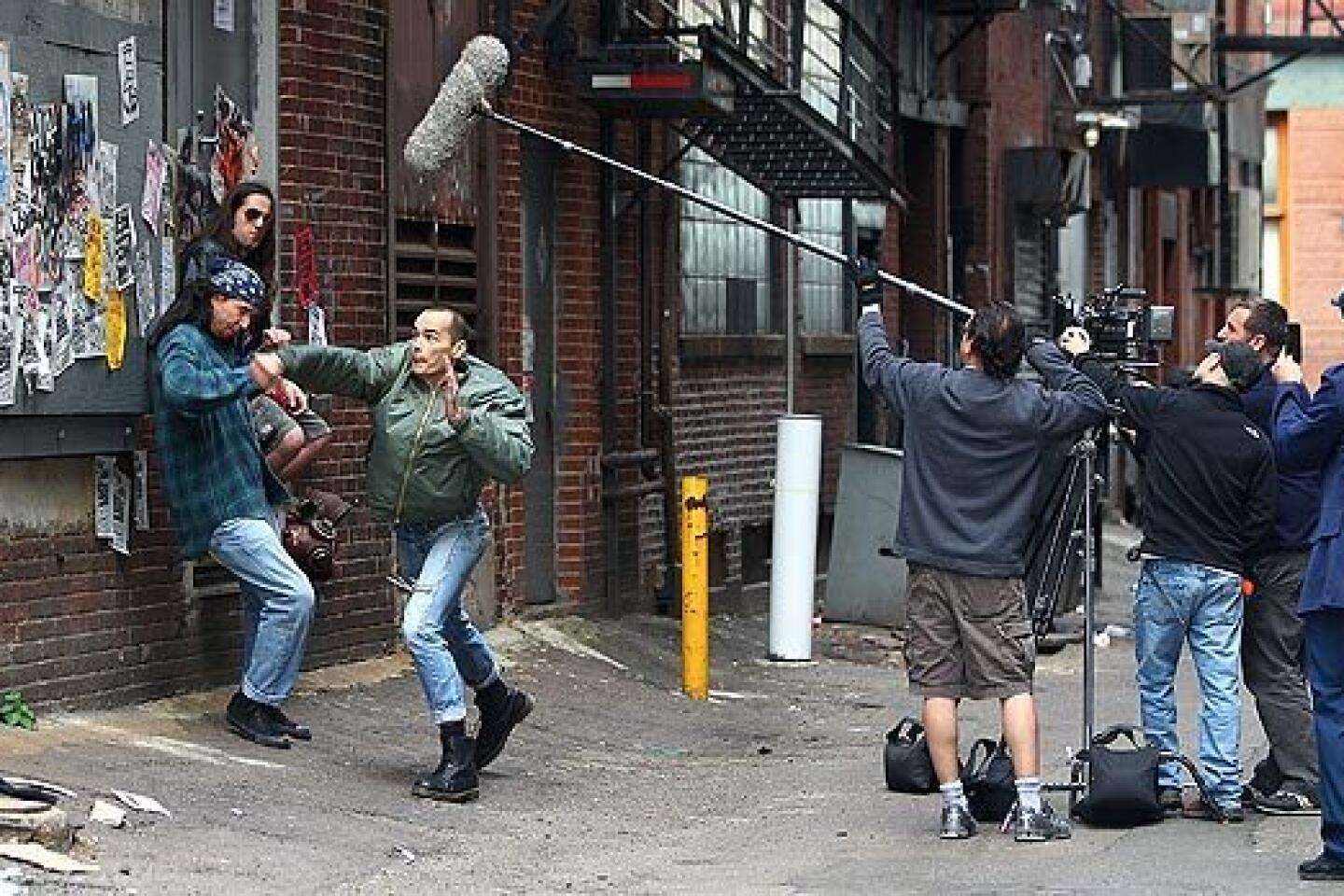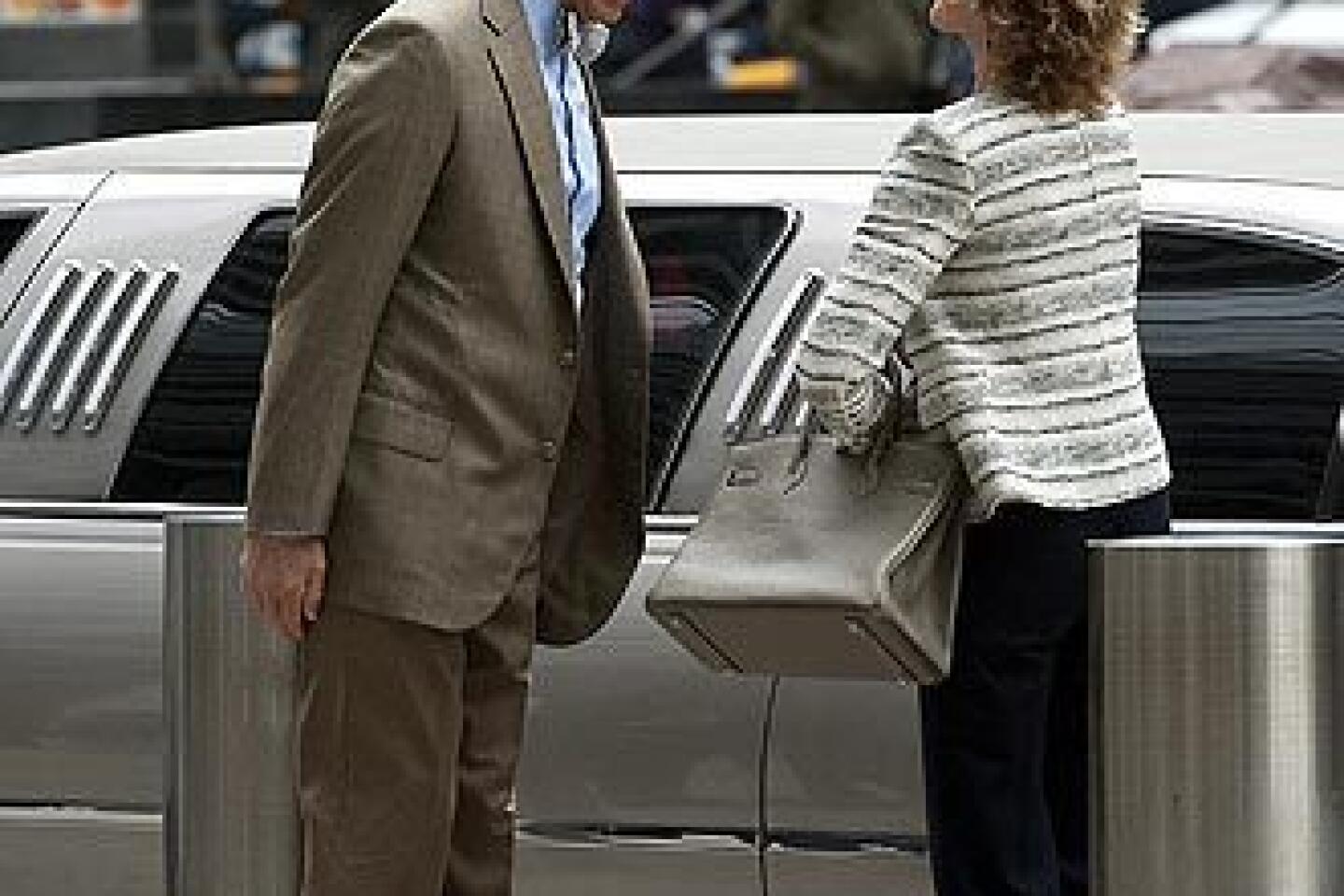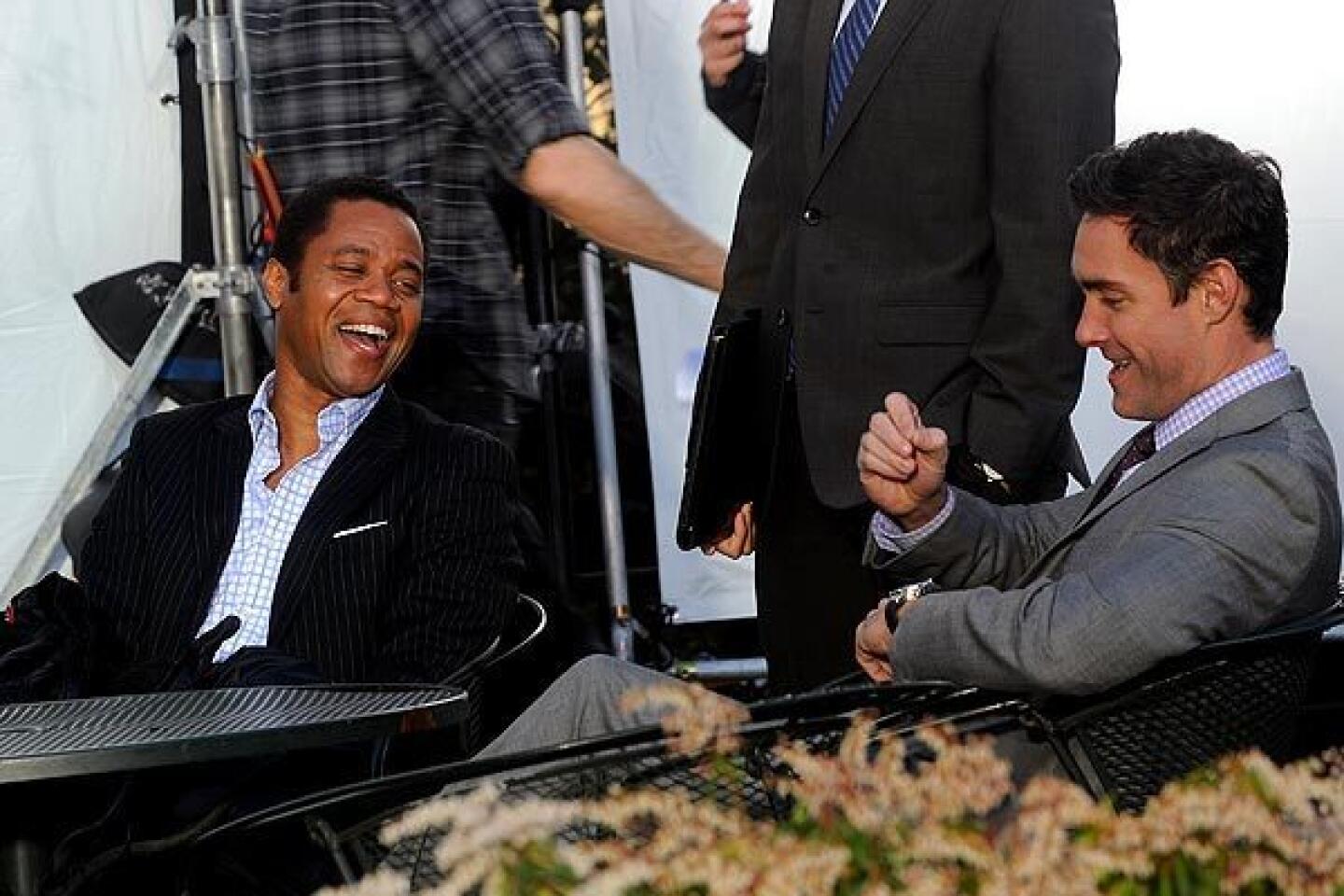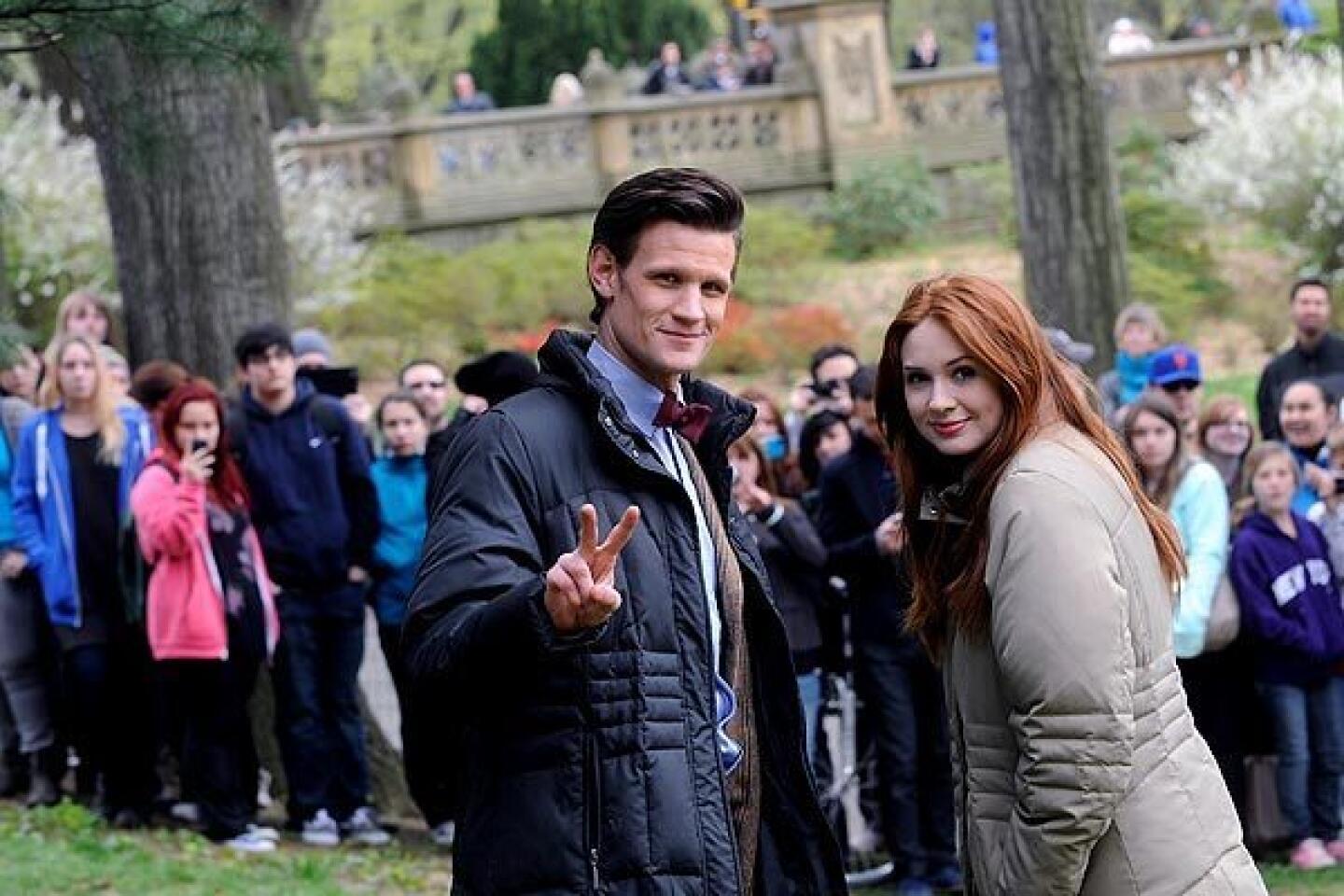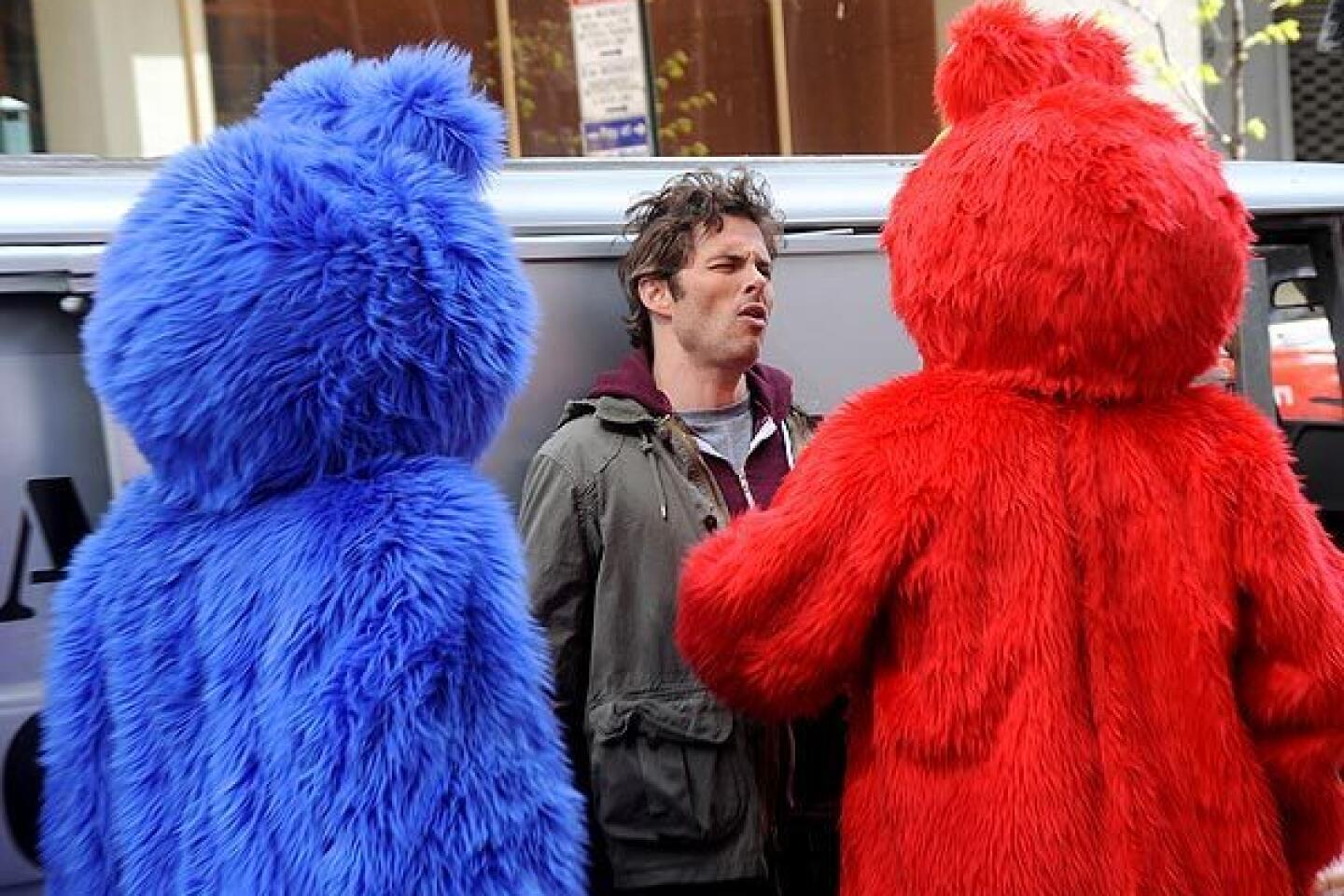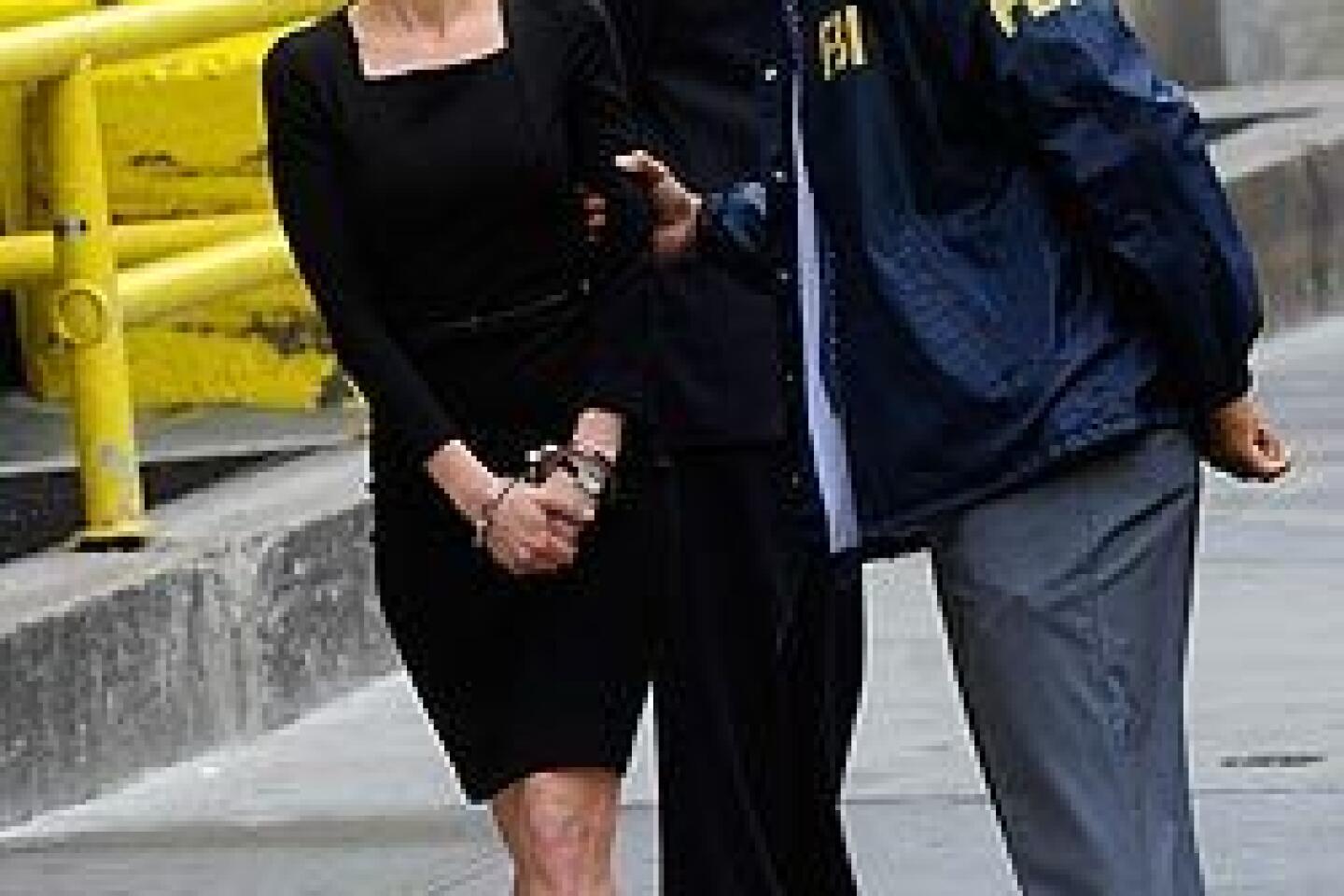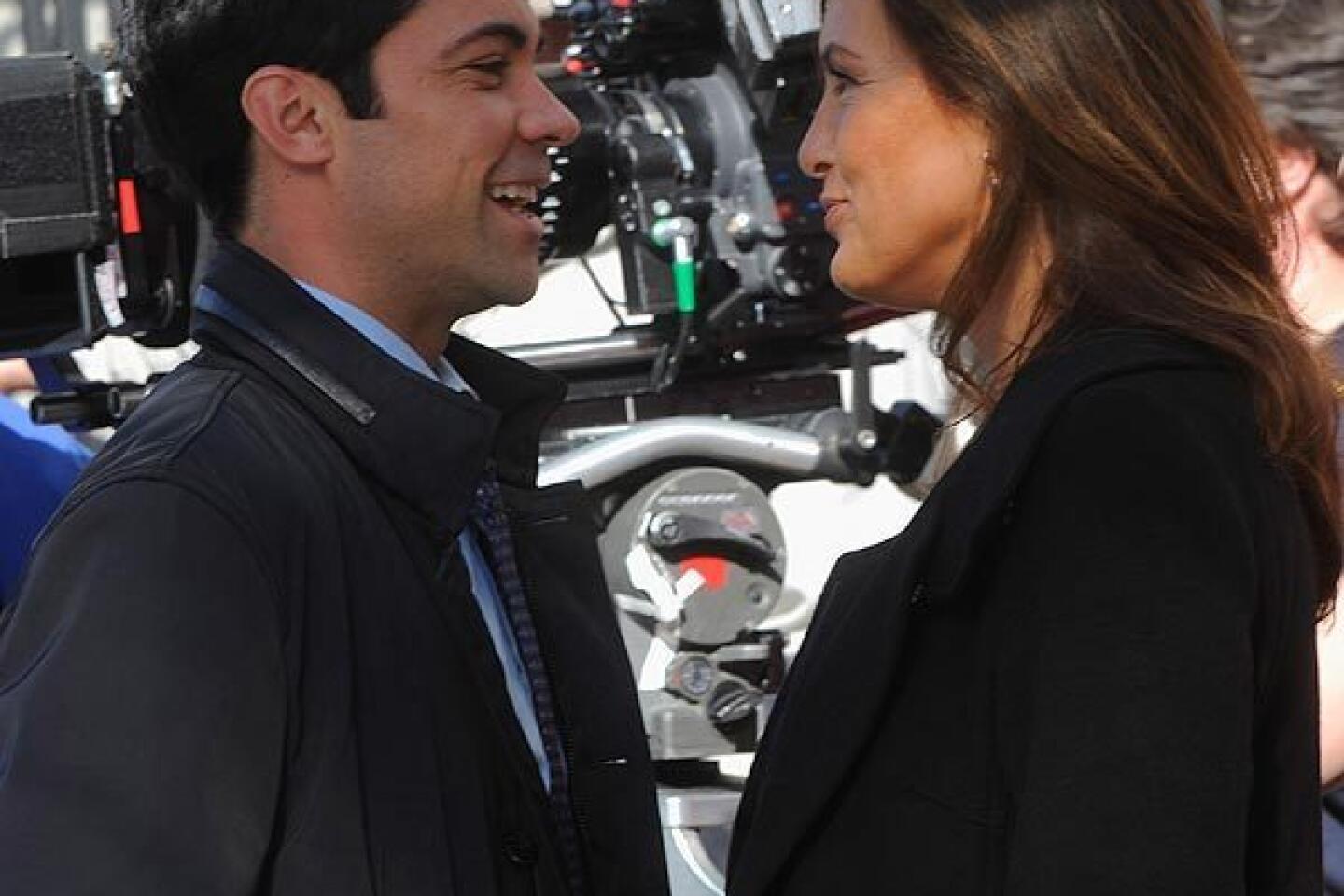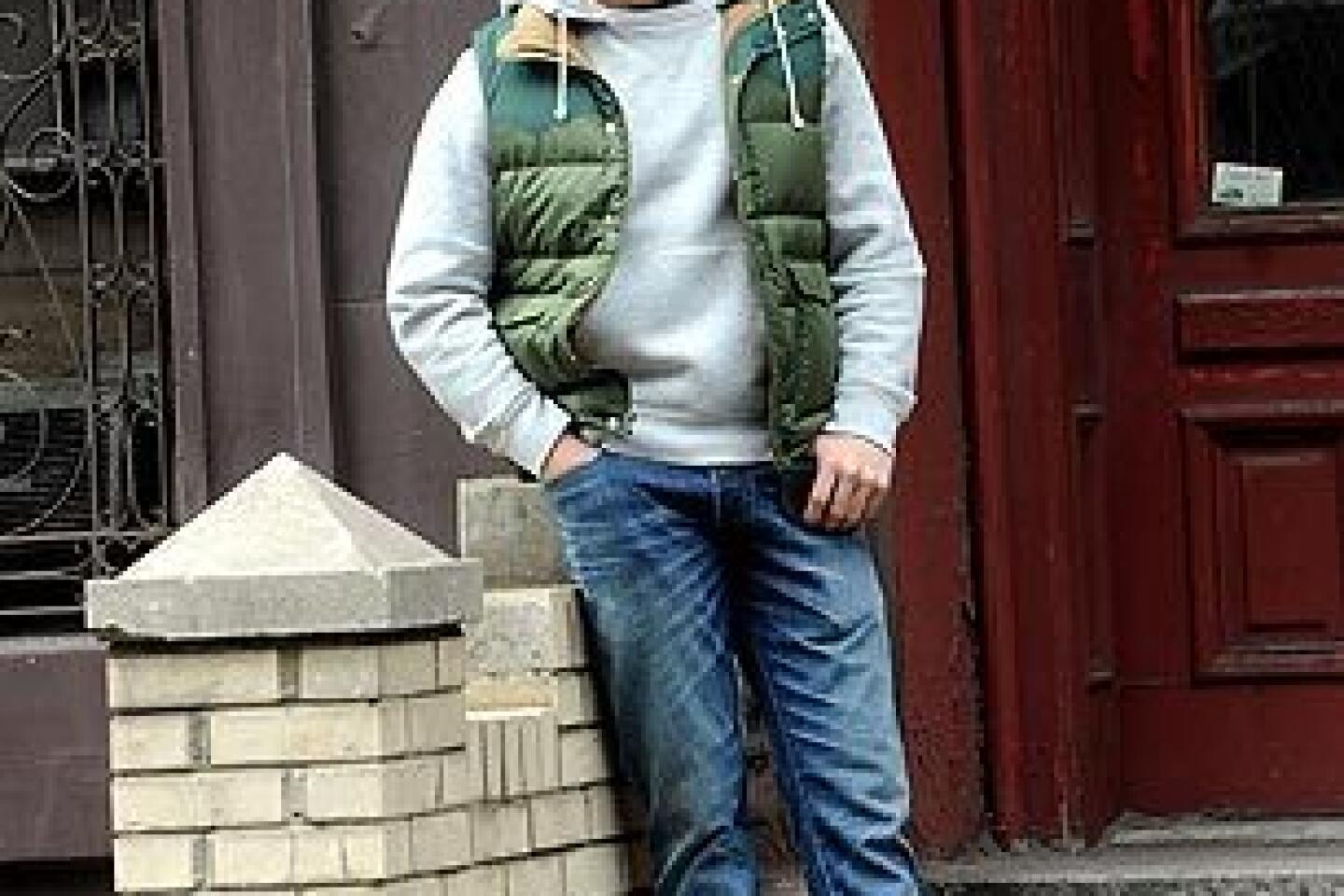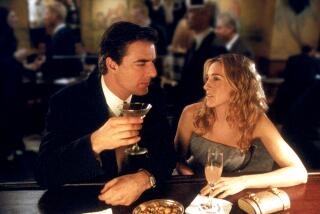Review: ‘Carrie’ hasn’t evolved much since 1976
- Share via
“Carrie,” the horror cult classic based on novelist Stephen King’s great girl roar against bullies, body, religion and mom, is back on the big screen with more teen trauma than ever and a new party dress for the prom.
And yet….
Directed by “Boys Don’t Cry’s” Kimberly Peirce and starring an excellent Chloë Grace Moretz with a truly troubling Julianne Moore as Mama, “Carrie” should have delivered more with the material in the filmmaker’s feminist hands.
Instead, Peirce has done a remaking rather than a reimagining. Echoes of the 1976 original, the Brian De Palma-Sissy Spacek-Piper Laurie tirade that first rocked the cradle, abound.
PHOTOS: Hollywood backlot moments
This is not to dismiss “Carrie” as a bad movie; it is not. Peirce has made good use of all the new-age technology at her disposal — more ways to exploit and expose the story’s central image of blood and show off Carrie’s telekinetic powers. Screenwriters Lawrence D. Cohen and Roberto Aguirre-Sacasa have added a prominent spot for those modern-day cyber-bully buddies — cellphones and social networks — with the widespread public humiliation they afford never more relevant.
But still….
King came up with such a compelling and provocative conceit in addressing the difficulties of adolescent girls, particularly ones who feel like freaks already and are ill-equipped to contend with massive changes in a body they don’t yet understand. I had hoped that Peirce — whose cut on transgender teens in 1999’s “Boys” was so incisively and inventively rendered, winning an Oscar for Hilary Swank — would find something more to say about the way gender politics have changed since the 1970s.
PHOTOS: Billion-dollar movie club
The current “Carrie,” however, is never able to get past De Palma’s singular imprint to make a distinctive statement of its own.
The film opens with a real sense of possibility. Peirce offers up a tragic and terrifying piece of the Carrie puzzle that’s not made it to screen before — a genesis moment, if you will. But then the movie settles into the now-familiar tale of Carrie’s high school terrors.
A girl from a strange family with a dead father and a weird mother, Carrie White has been the butt of jokes from the day she set foot in school. Sheltered, repressed and hovered over by a mother who thinks sex is a sin and menstruation God’s curse, Carrie is completely unaware of the physical changes that are coming. So when she gets her first period in first period — in the communal showers after gym class — the mean girls turn on her with a vengeance, pelting her with tampons and taunts.
SNEAKS: Movie trailers, full coverage
It is a powerful image, one that De Palma made iconic. The steam of the shower, Carrie naked, the hysteria at seeing the blood, the rain of sanitary napkins, all work to put everyone on notice that the film intends to make you as uncomfortable as possible.
Peirce has shot it with a great deal of conviction, the kind that will shake anyone who has never seen the moment before. What’s interesting is that it carries relevance today, in a time when ads for “feminine protection” products fill the TV screen and teen magazines. But break new ground? It does not.
From there, the film starts its steady, deadly march toward that devastating prom and that other iconic image of newly crowned prom queen Carrie drenched in a bucket of blood, the full force of her telekinetic rage unleashed against her tormentors.
PHOTOS: Celebrities by The Times
All the players and the plays are basically as King envisioned them. Miss Desjardin (Judy Greer) is the gym teacher who tries to salvage a bit of Carrie’s pride. Chris (Portia Doubleday) is the main meanie who works overtime to make Carrie’s life a living hell, with the help of her bad-boy boyfriend Billy (Alex Russell). Sue (Gabriella Wilde) is the popular good girl who decides to pay penance for Carrie’s locker-room humiliation by pressing her boyfriend, the dreamy jock Tommy Ross (Ansel Elgort), to take Carrie to the prom.
Meanwhile, Carrie’s on her own journey of empowerment. She starts warming up for the big event by facing off against Mama at home. Lots of anger and flying objects. The insane proselytizing to which the girl is subjected, plus the closet her mother reserves for punishment and praying, somehow seem terrifyingly possible still.
As good as Moretz has been in the literary high of “Hugo” and the bruising fun of “Kick-Ass,” Peirce pulls out a sensitivity and depth in the young actress that brings her performance to a new level. And Moore has never had a better handle on demented.
But except for a ridiculously sanitized new ending, new “Carrie” is not that different from old “Carrie.” And that’s a crying shame.
-----------------------------
‘Carrie’
MPAA rating: R for bloody violence, disturbing images, language and some sexual content
Running time: 1 hour, 39 minutes
Playing: In general release
More to Read
Only good movies
Get the Indie Focus newsletter, Mark Olsen's weekly guide to the world of cinema.
You may occasionally receive promotional content from the Los Angeles Times.
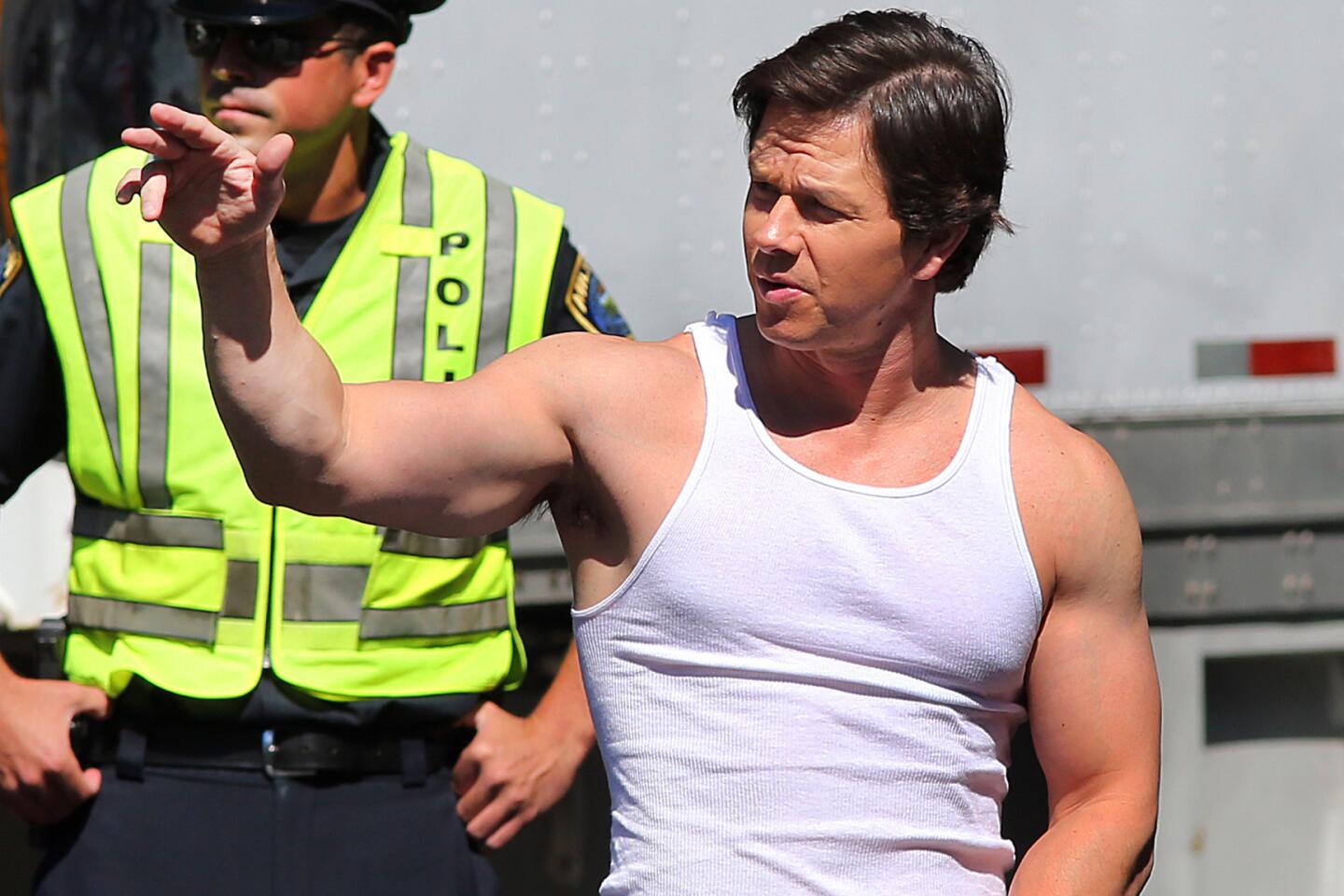
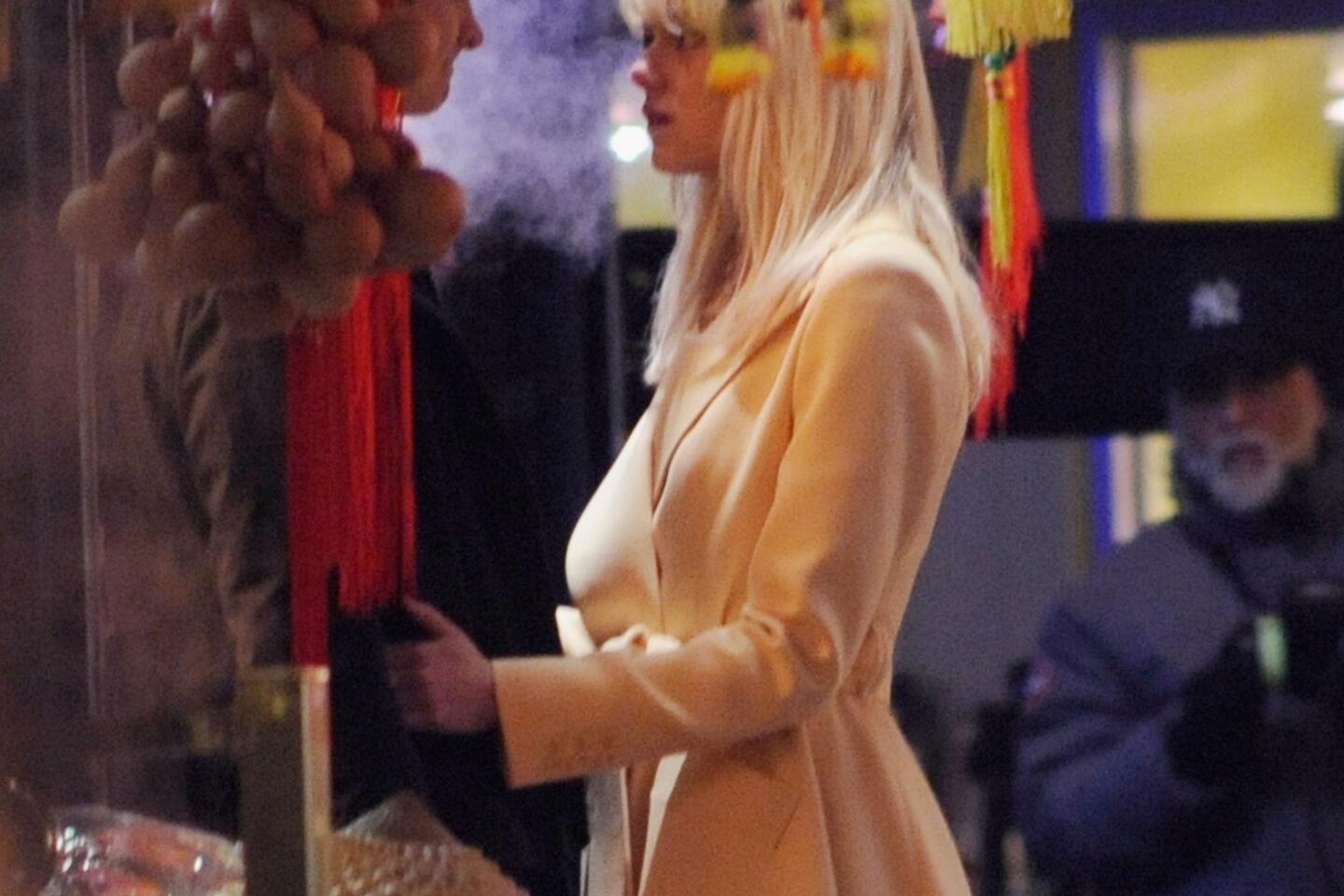
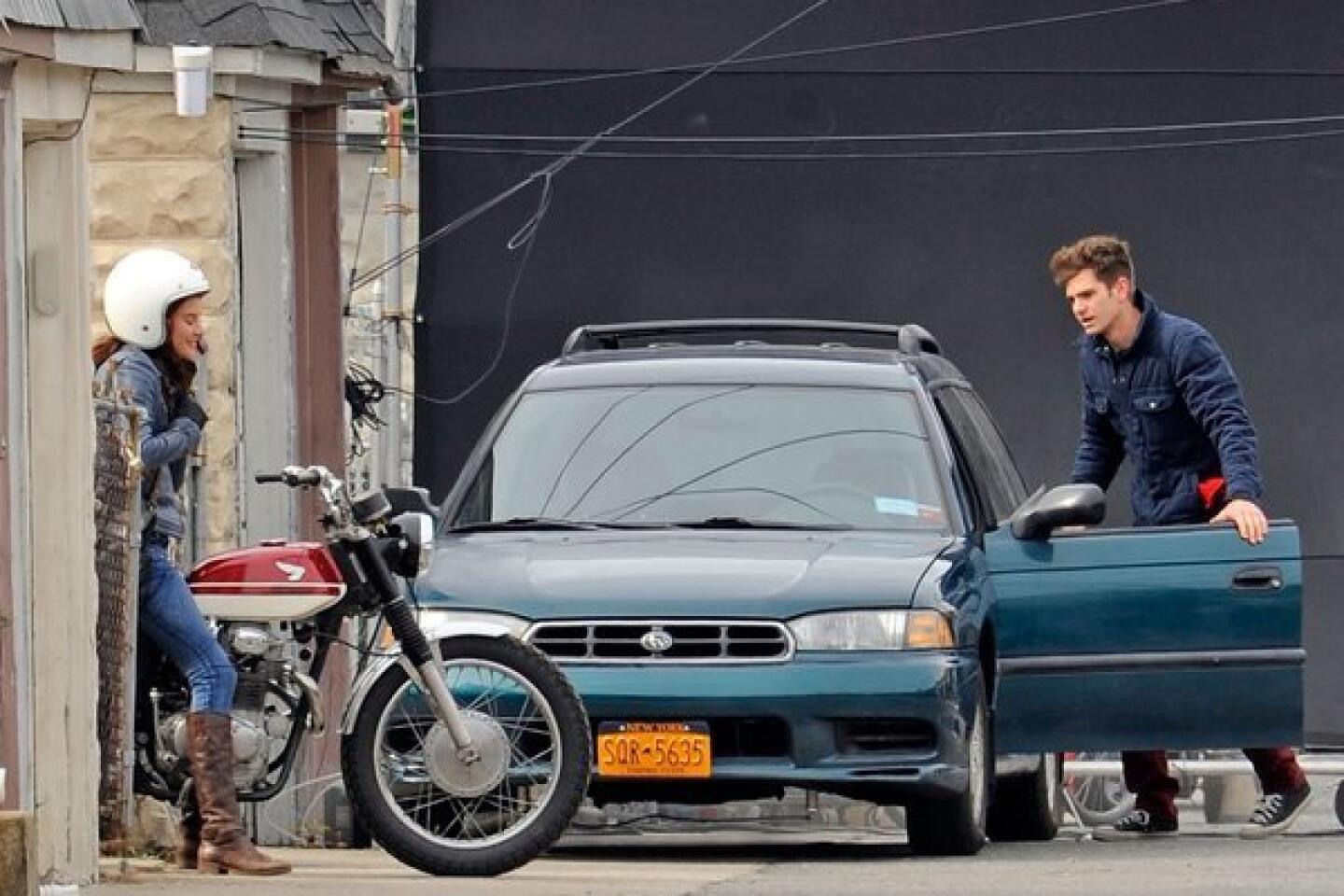
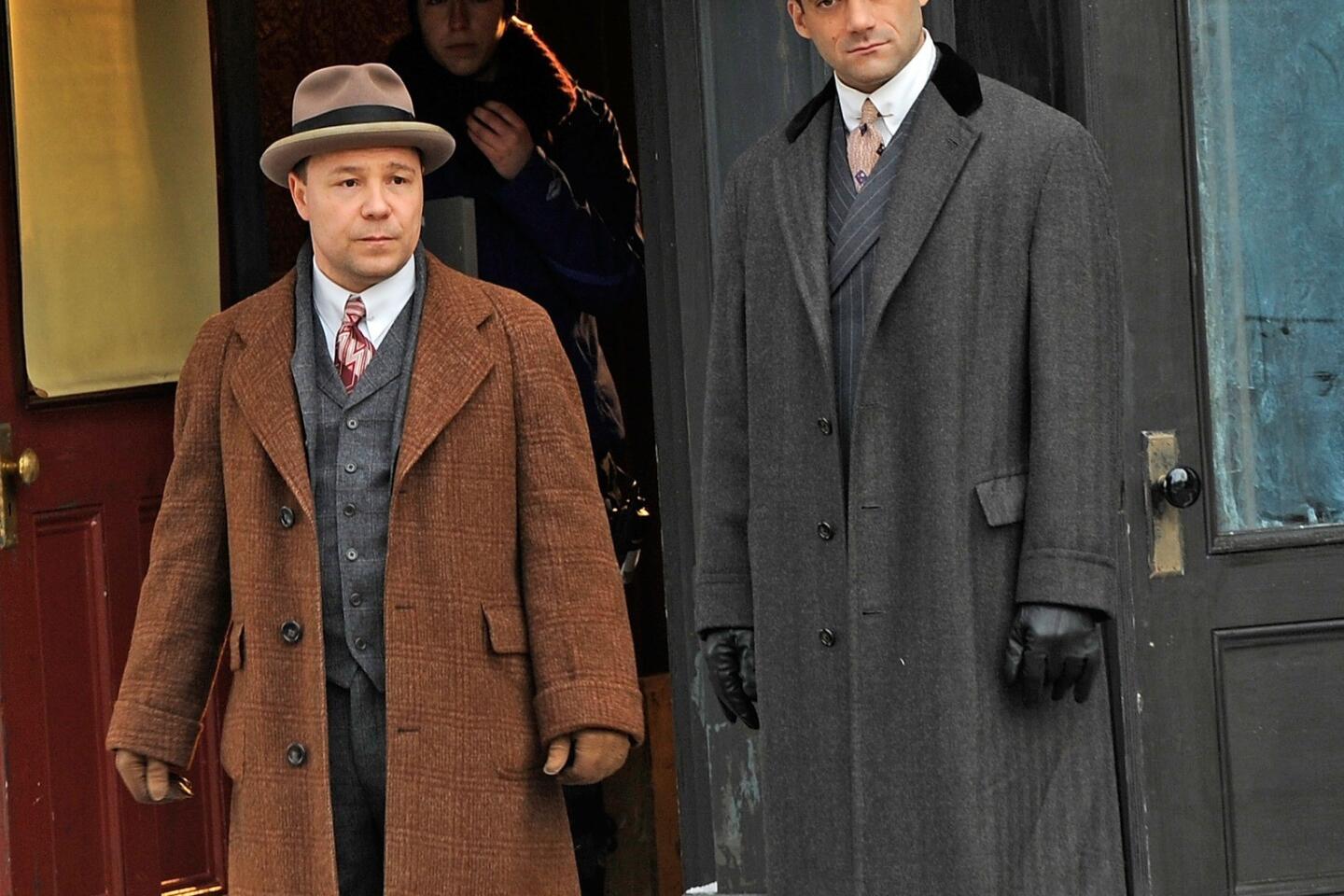
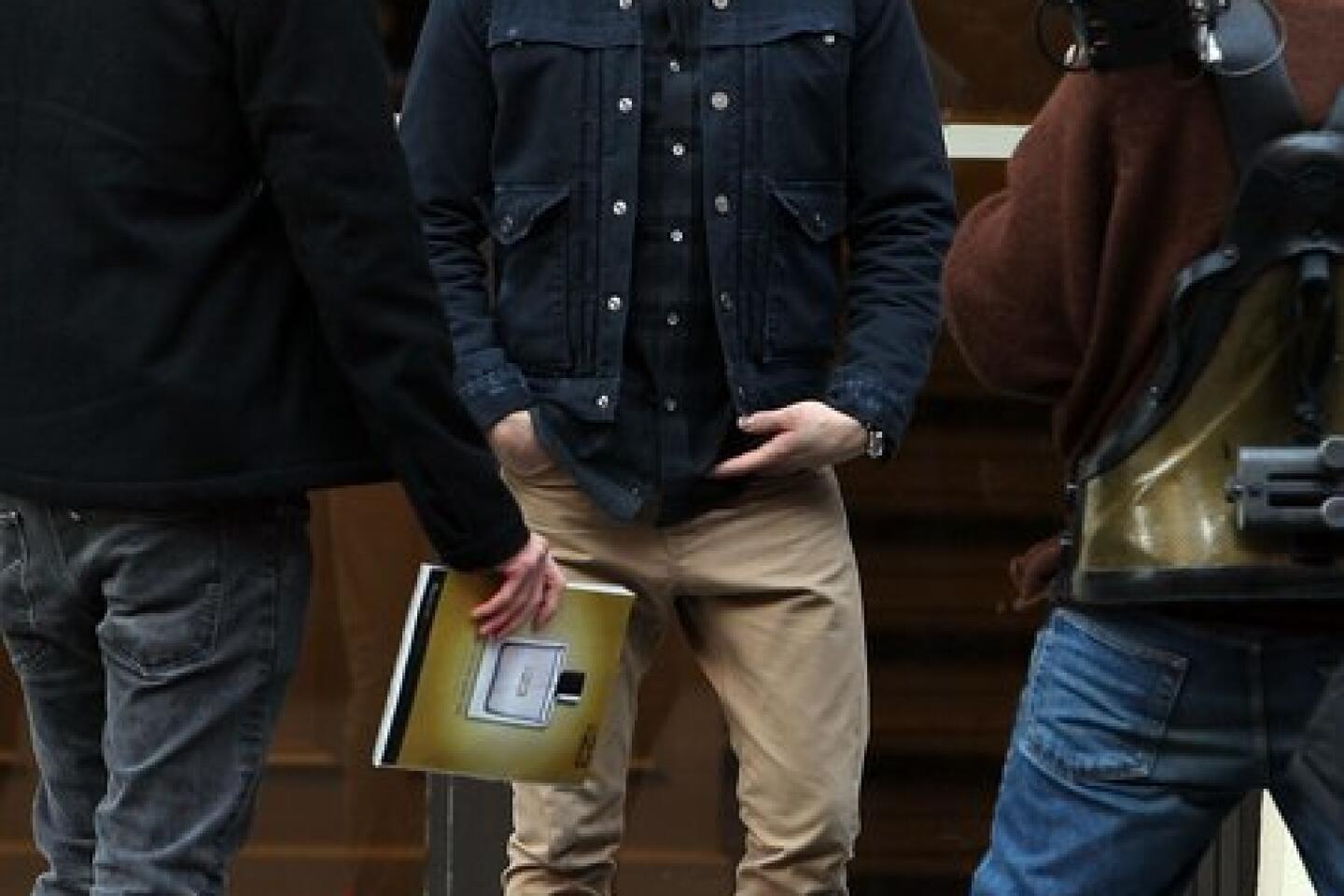
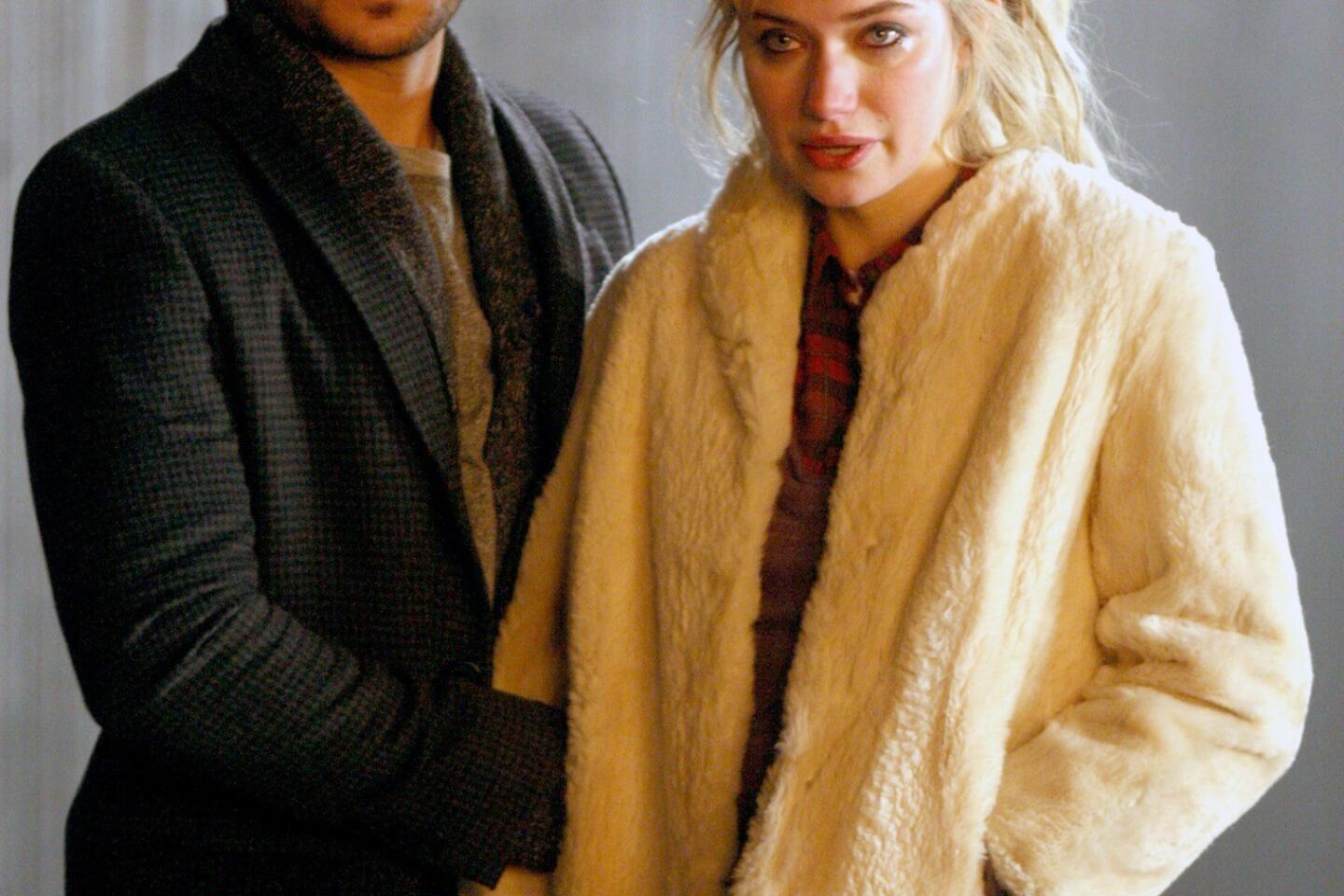
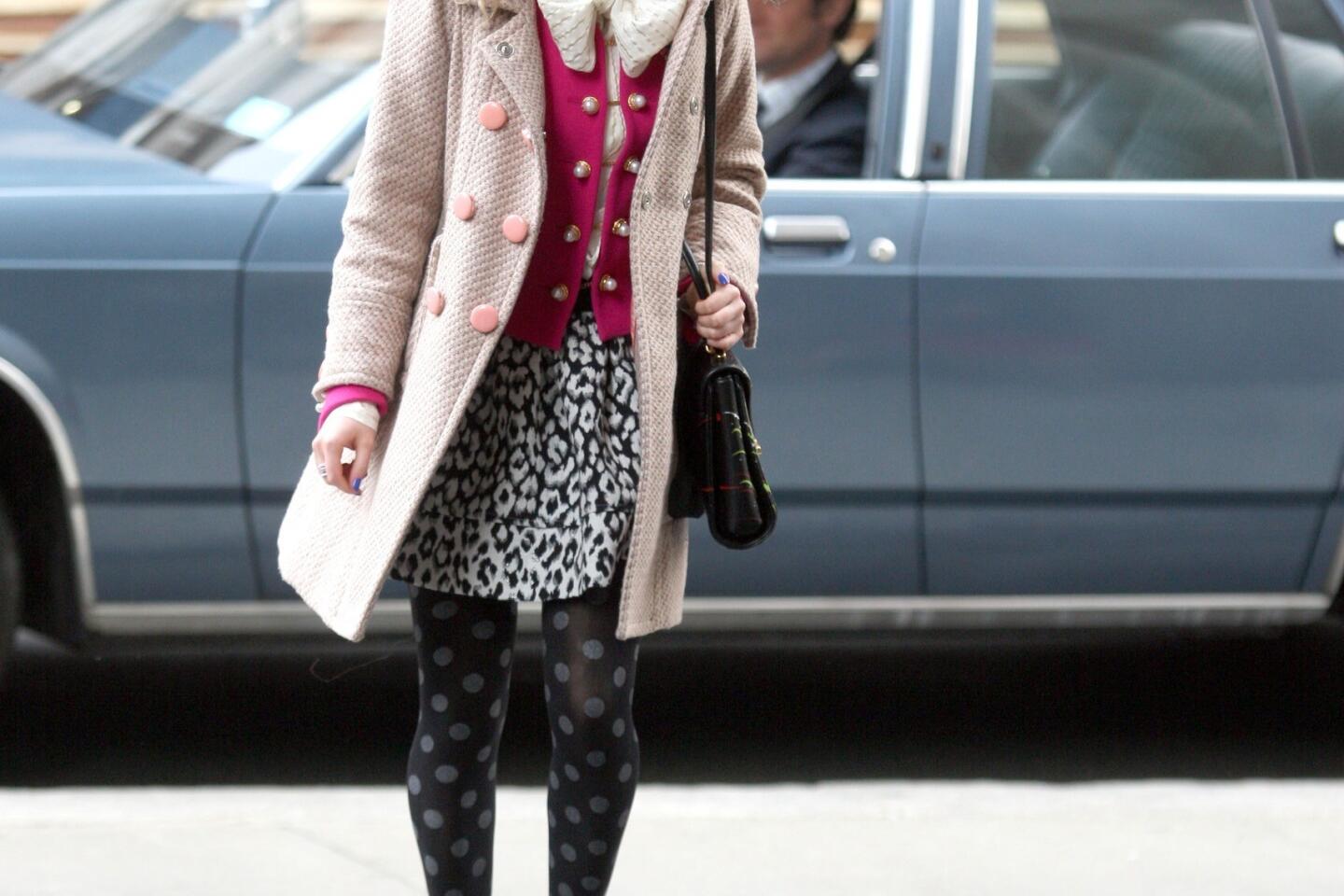

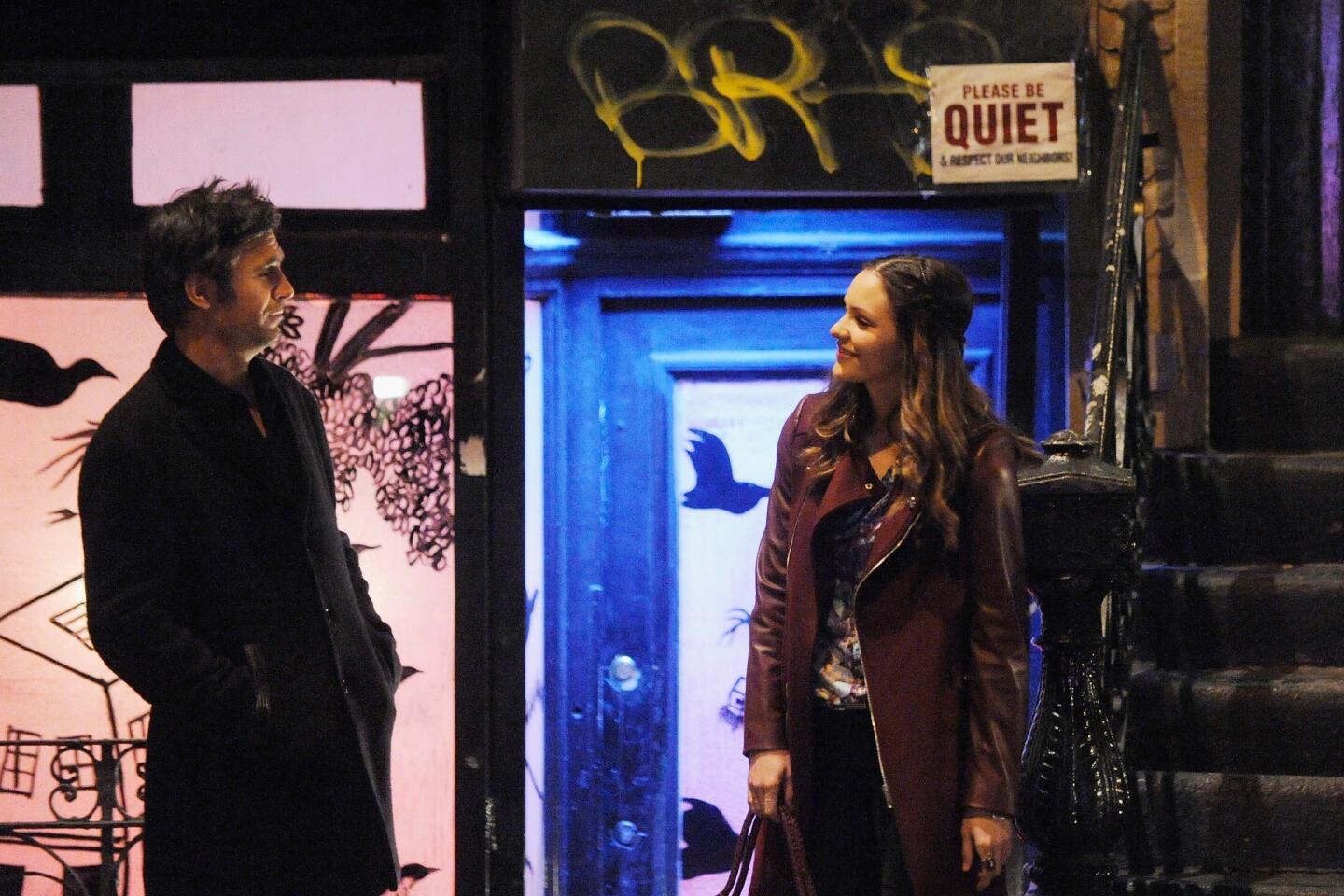
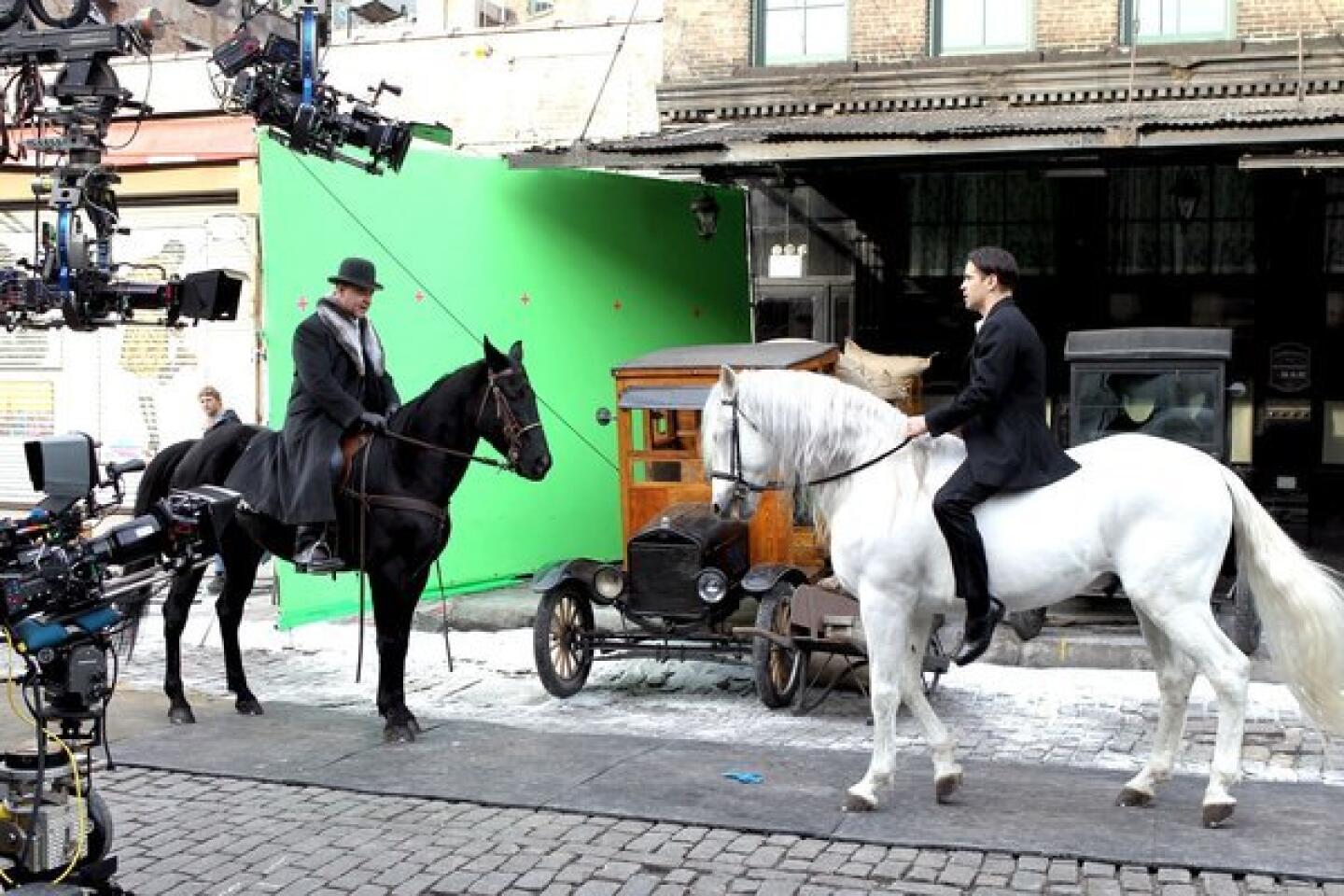
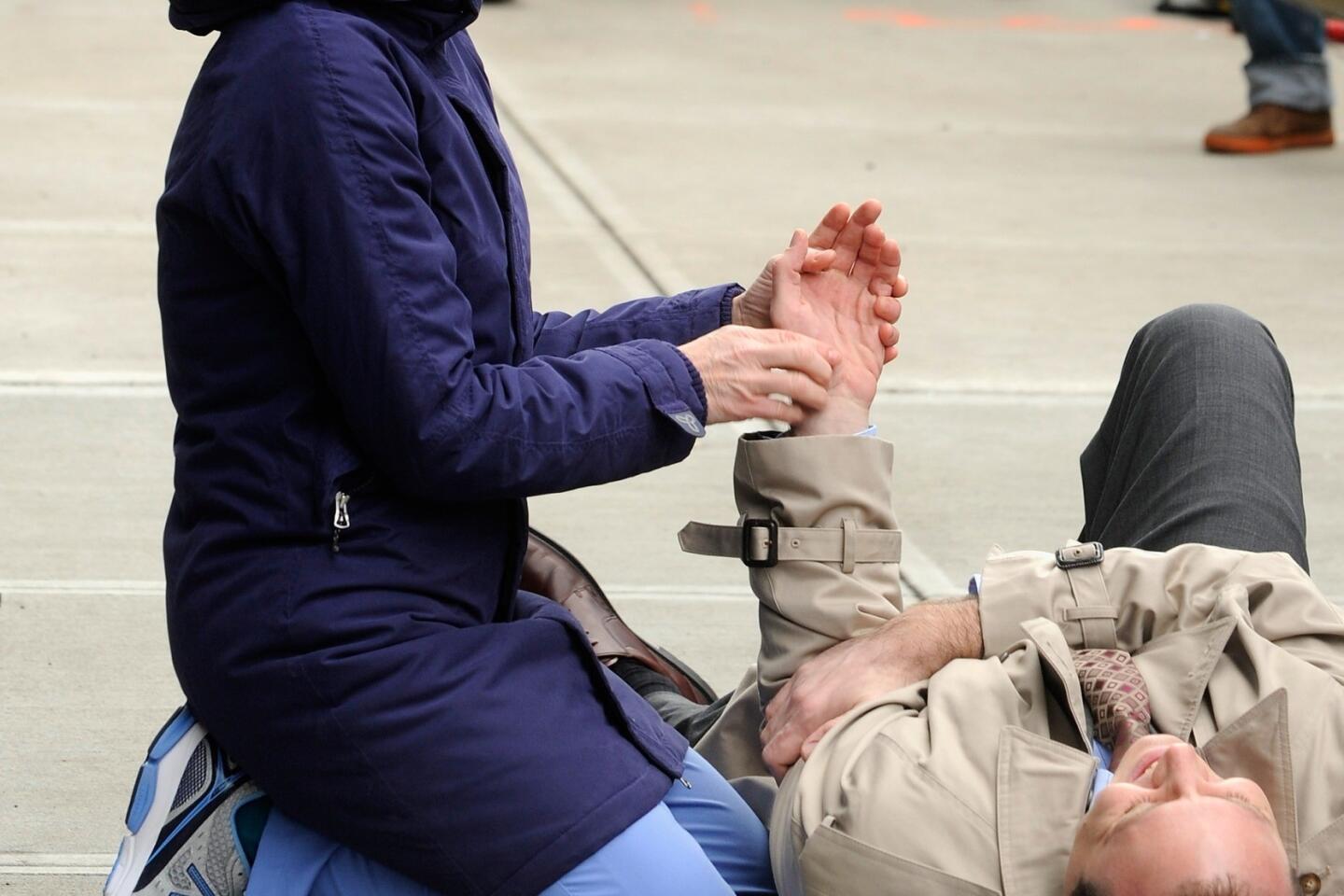
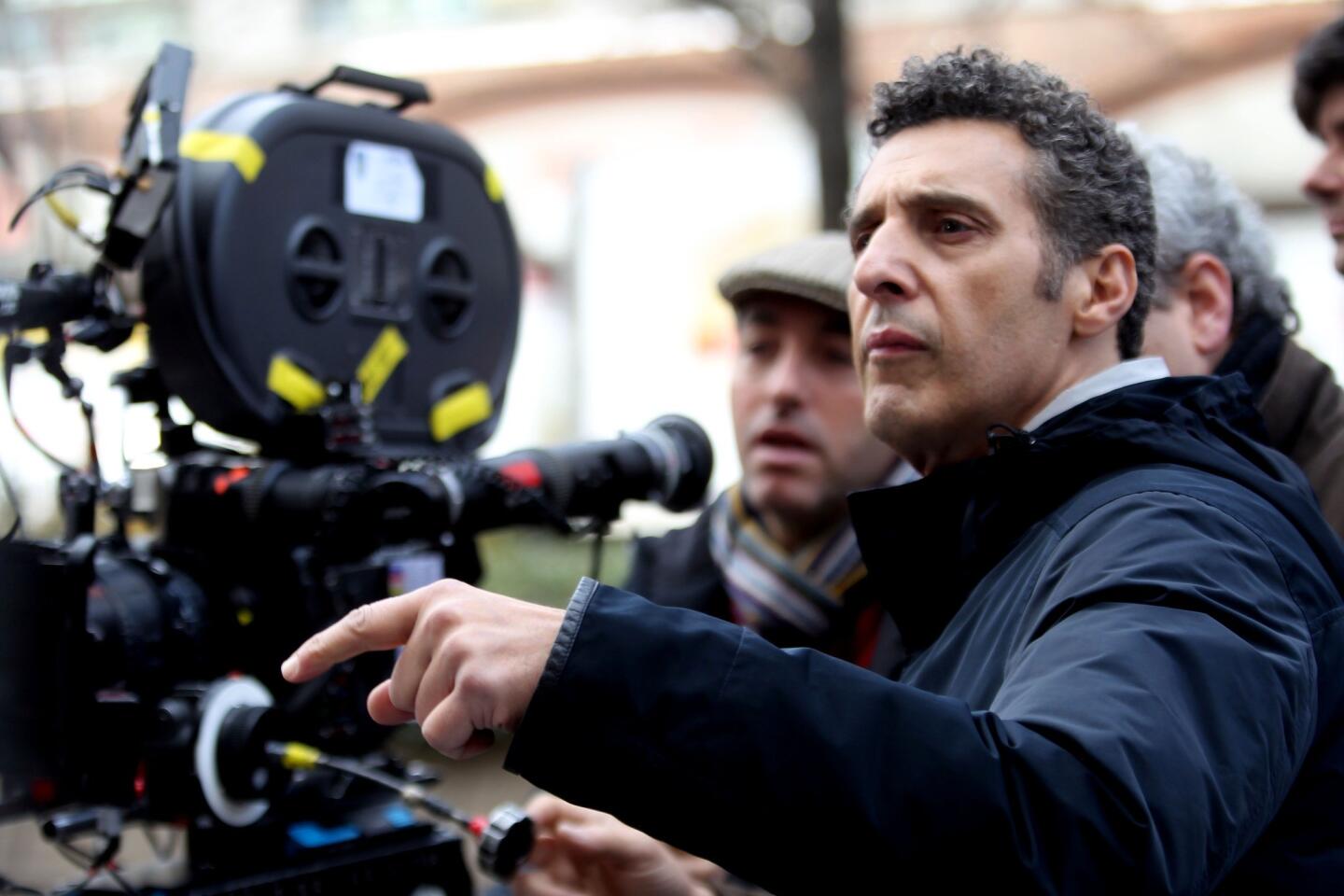
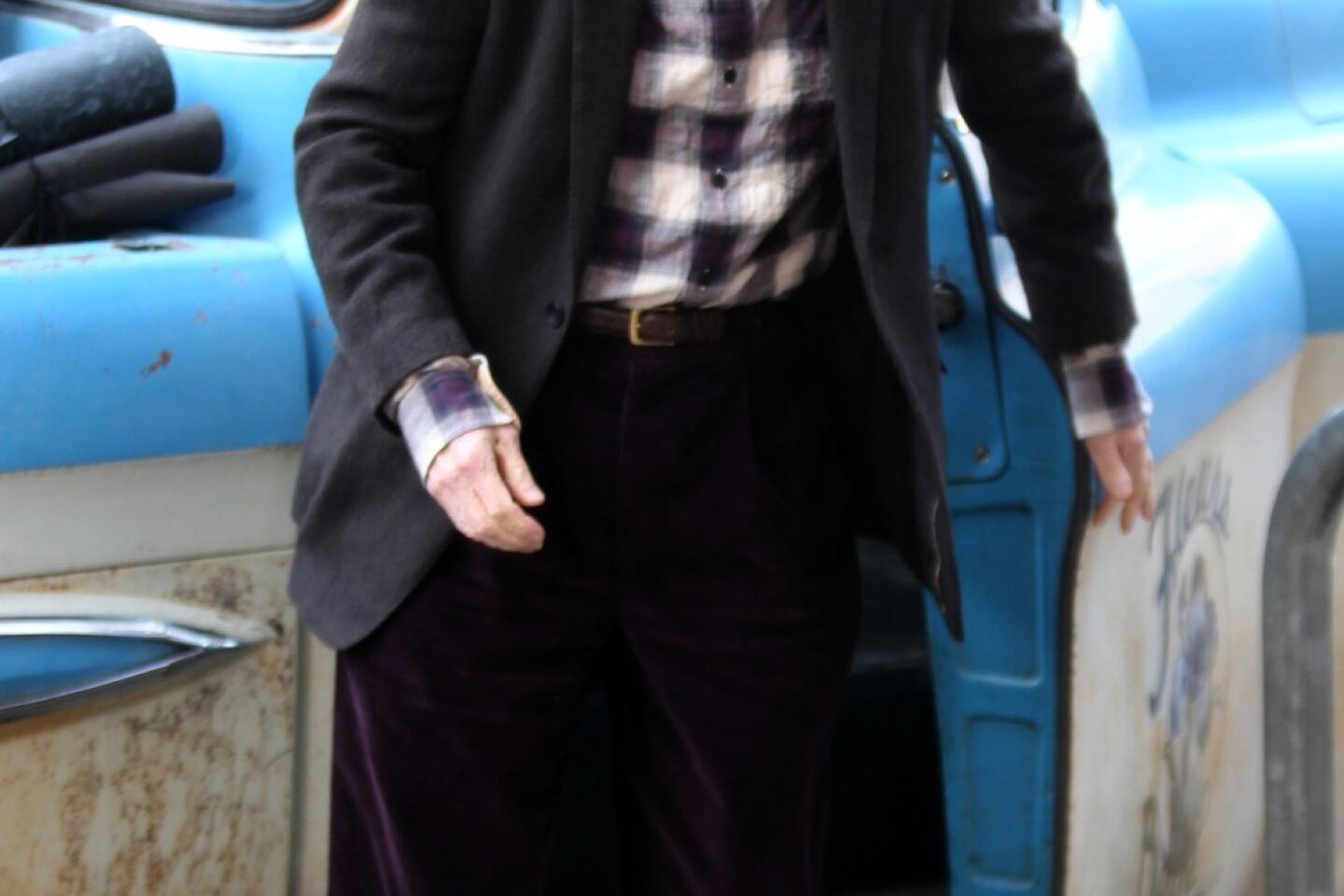
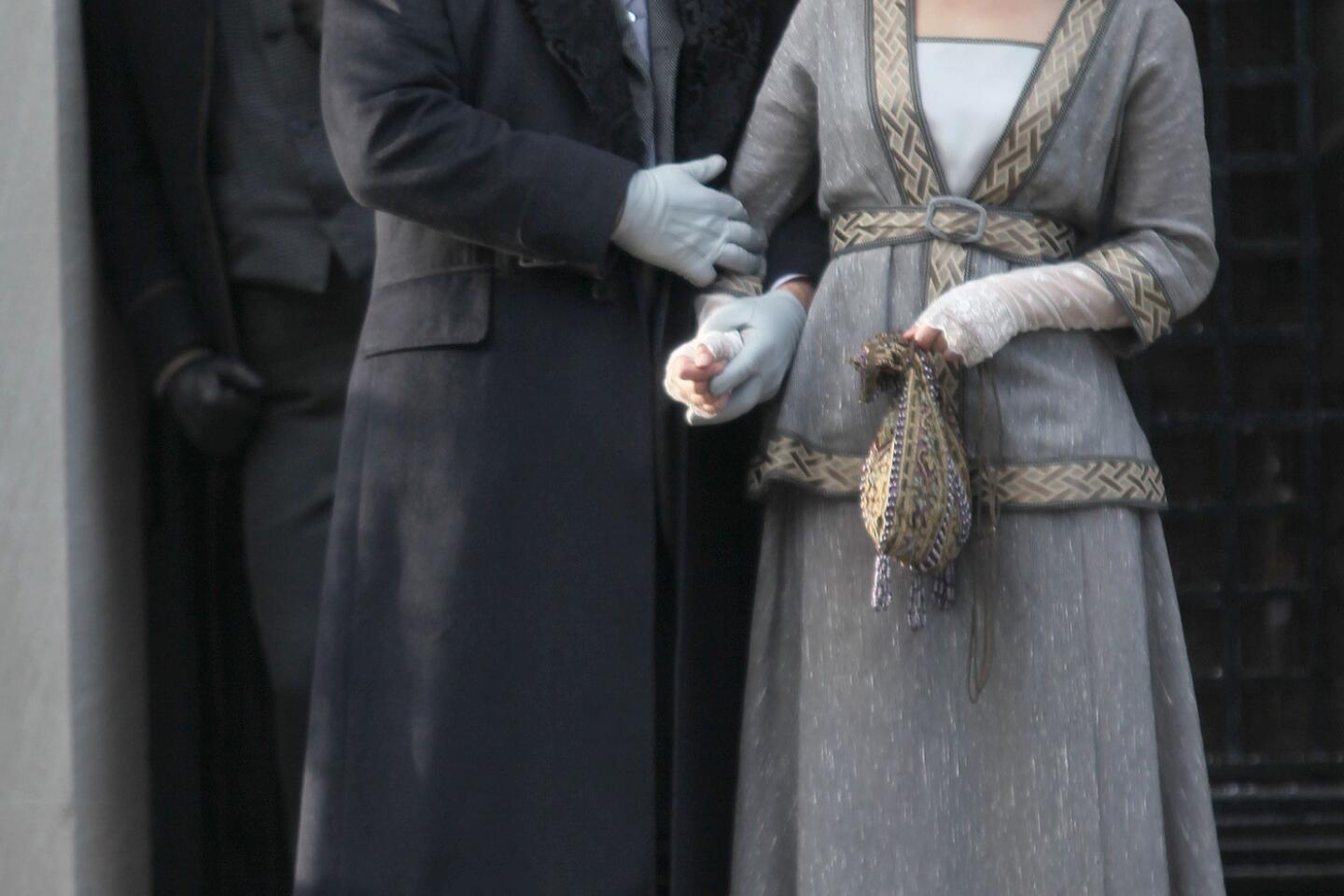
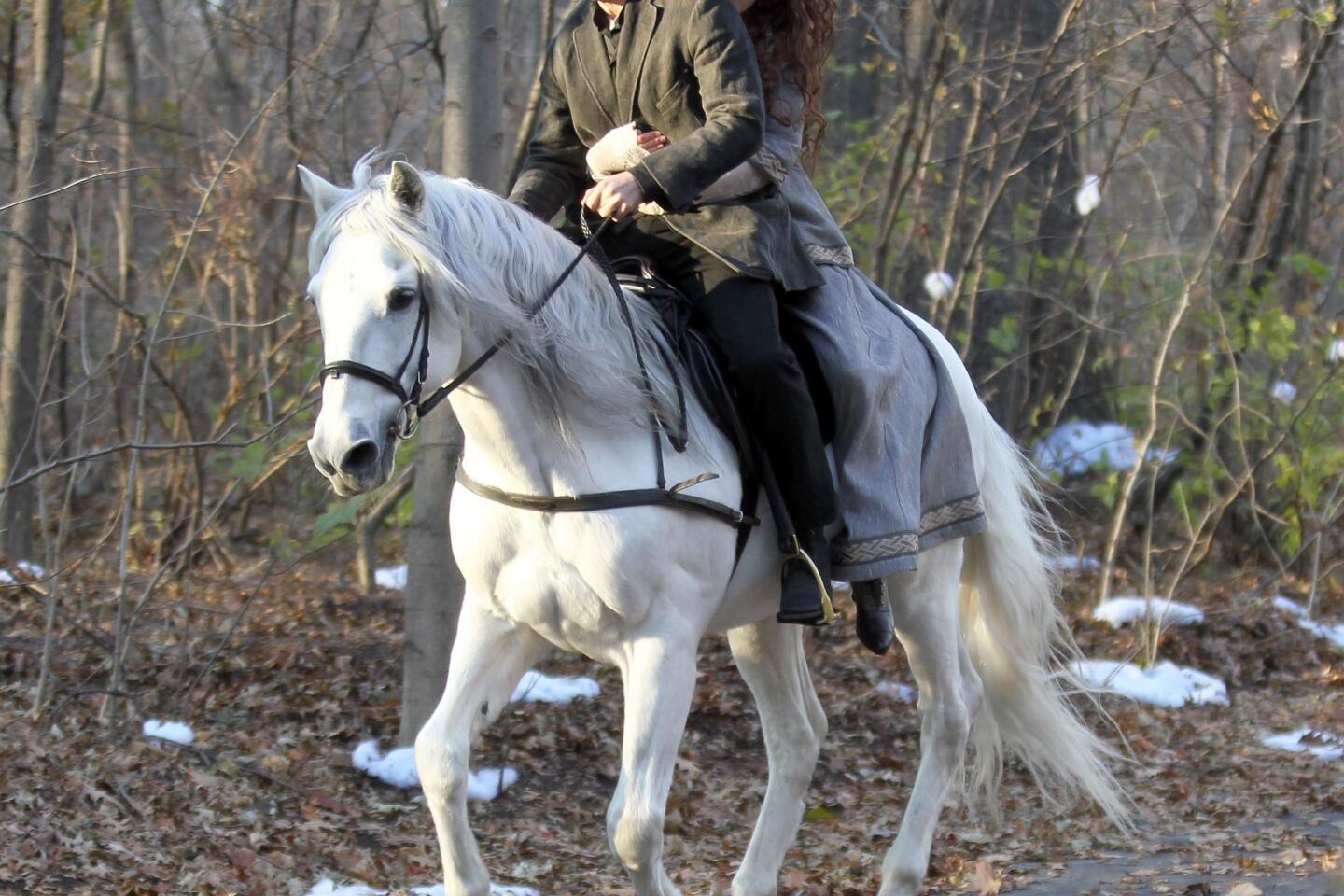
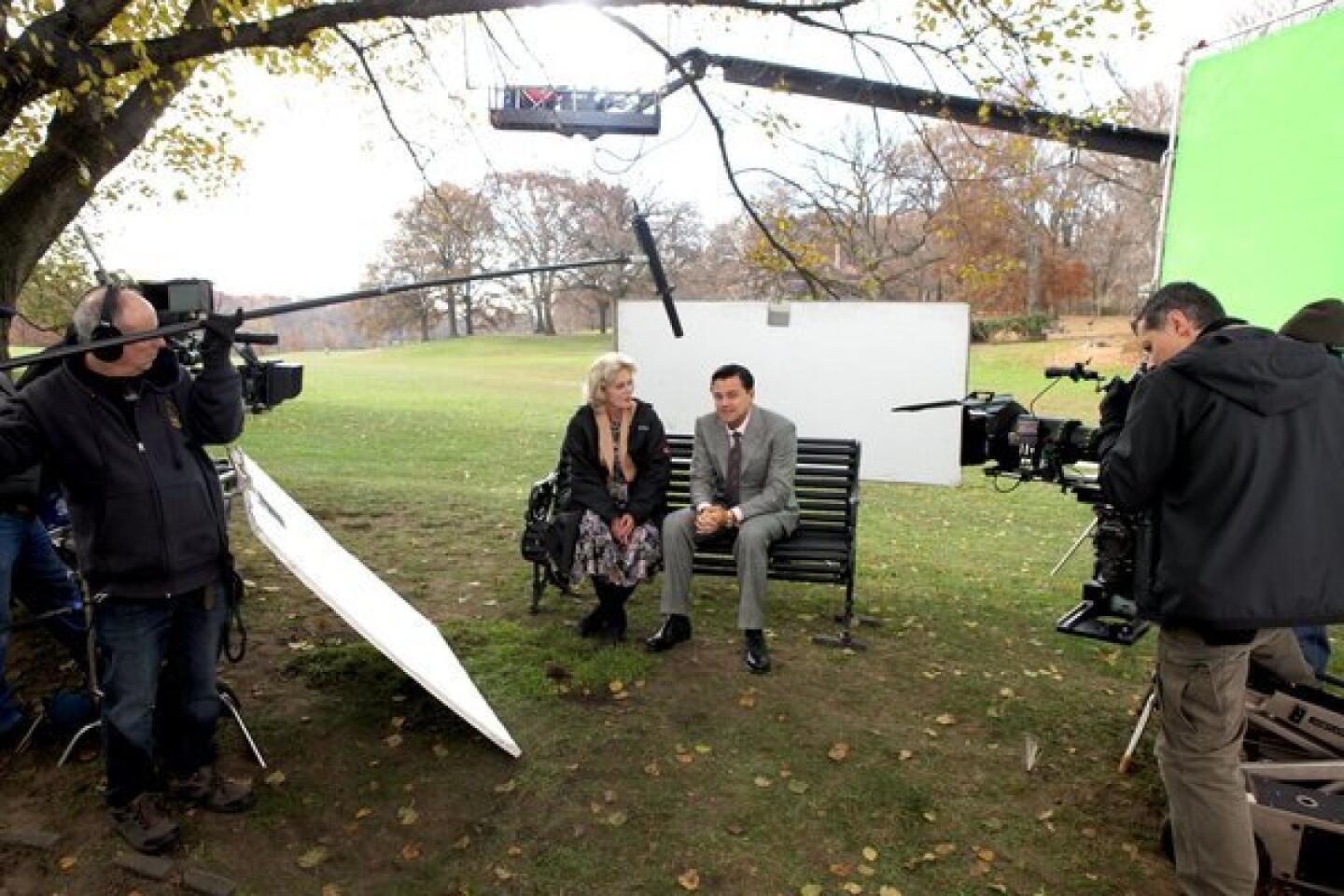
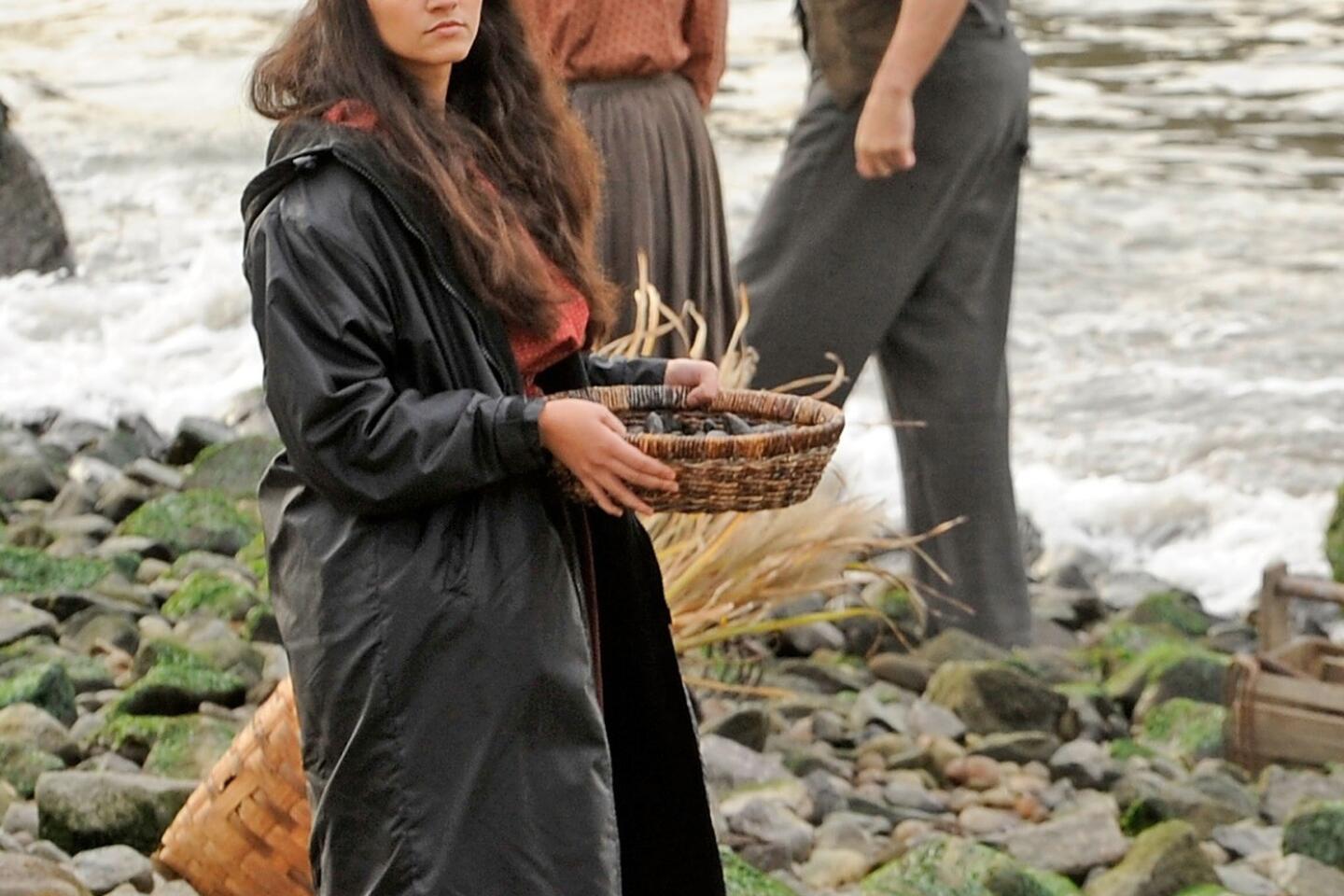
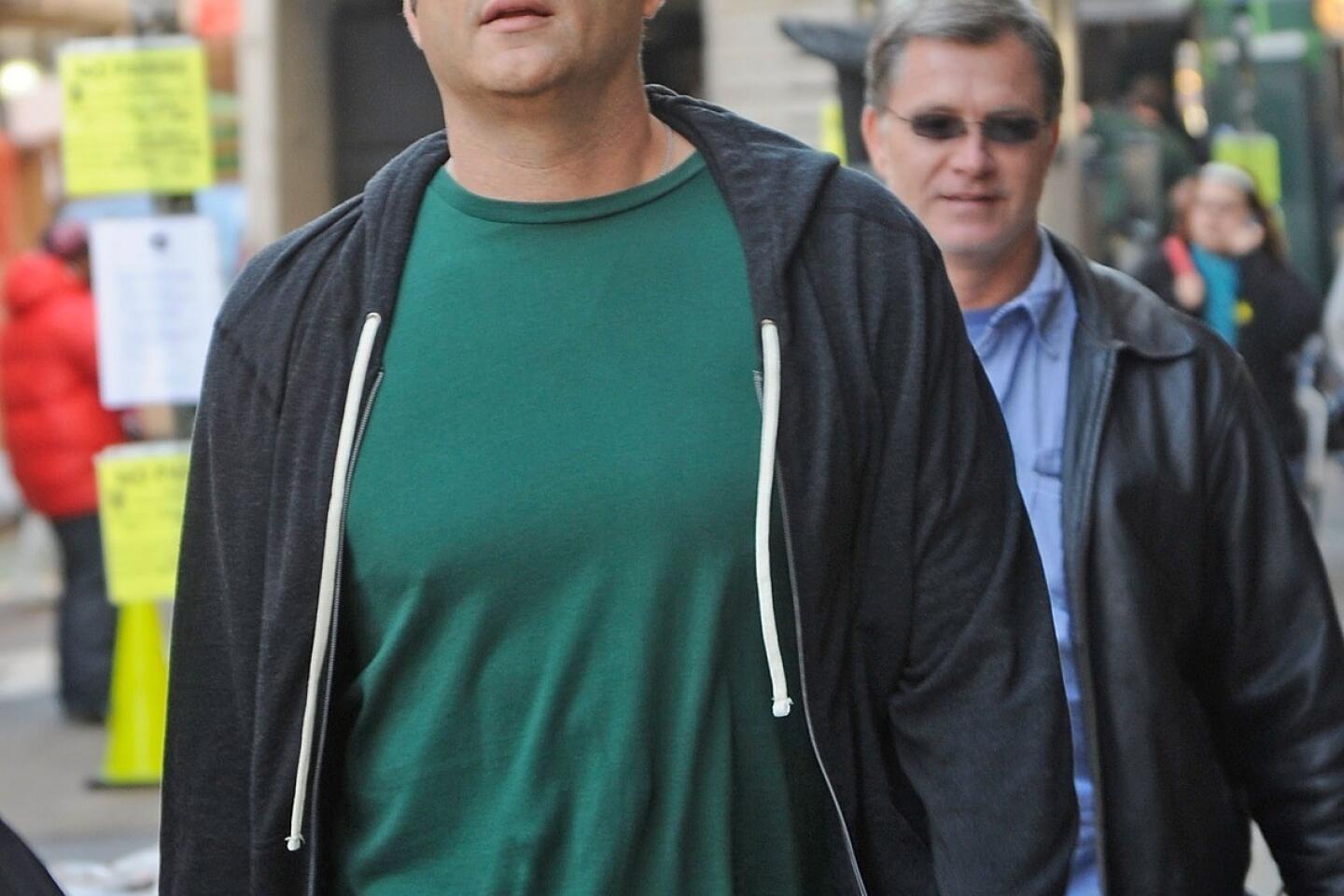
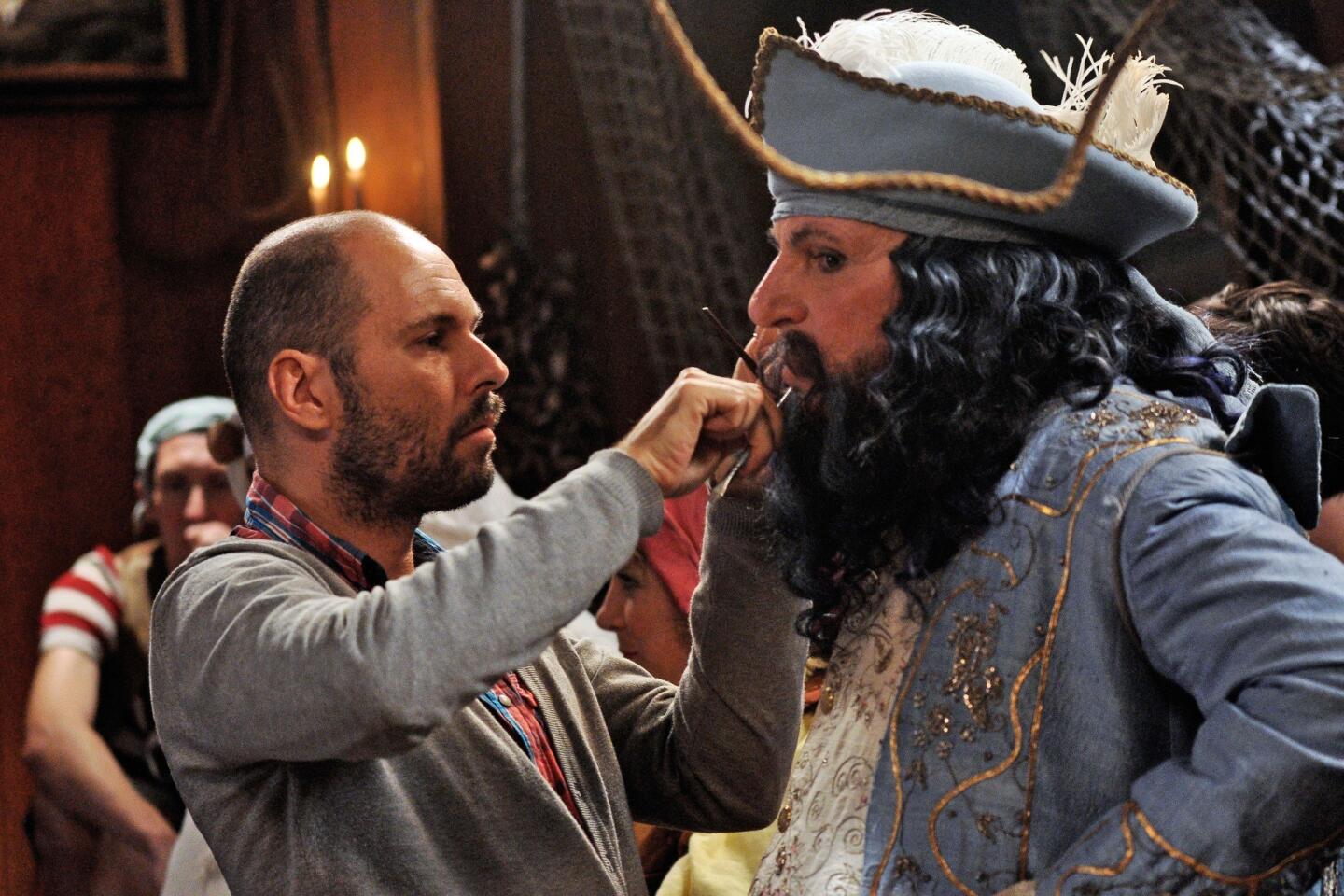

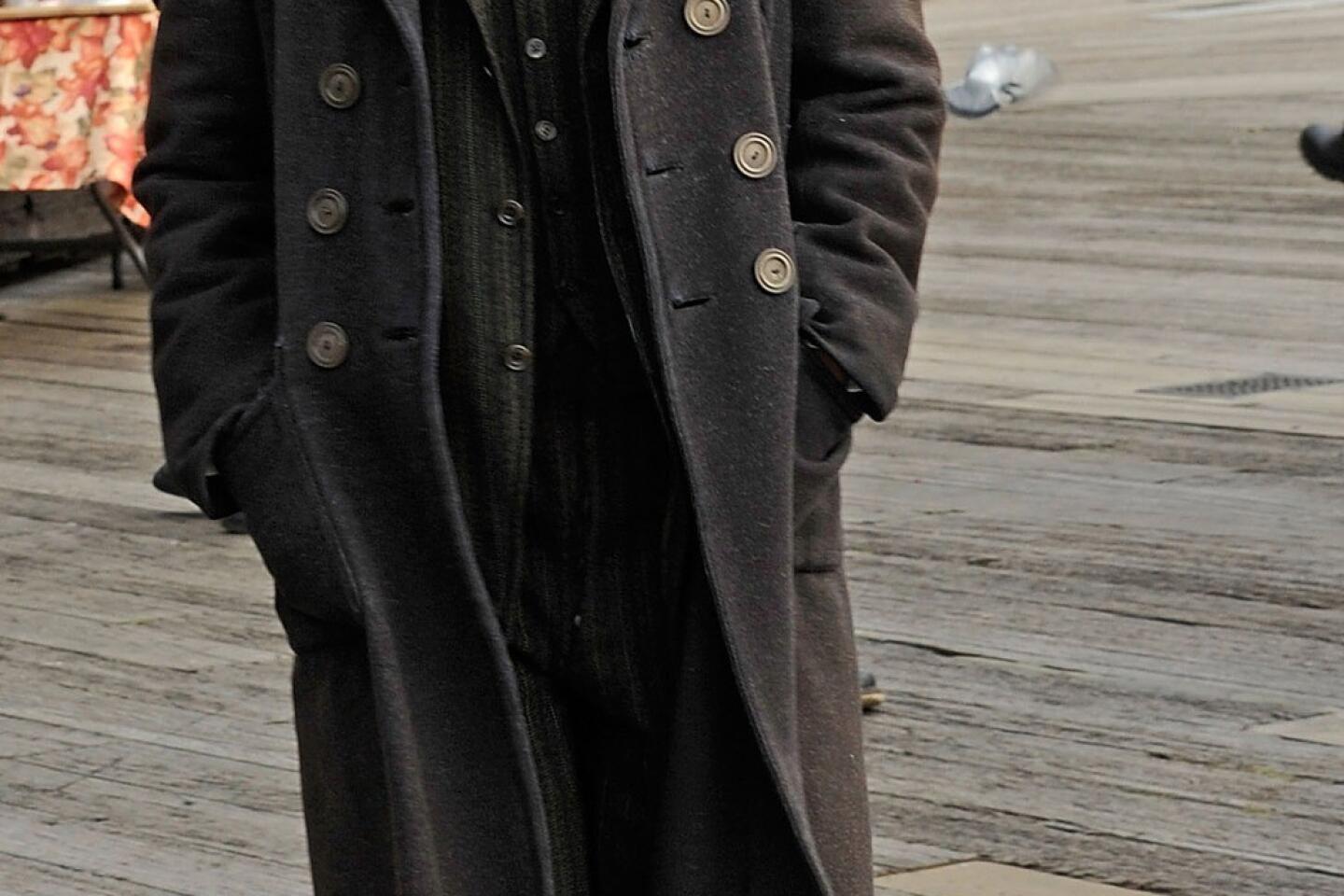
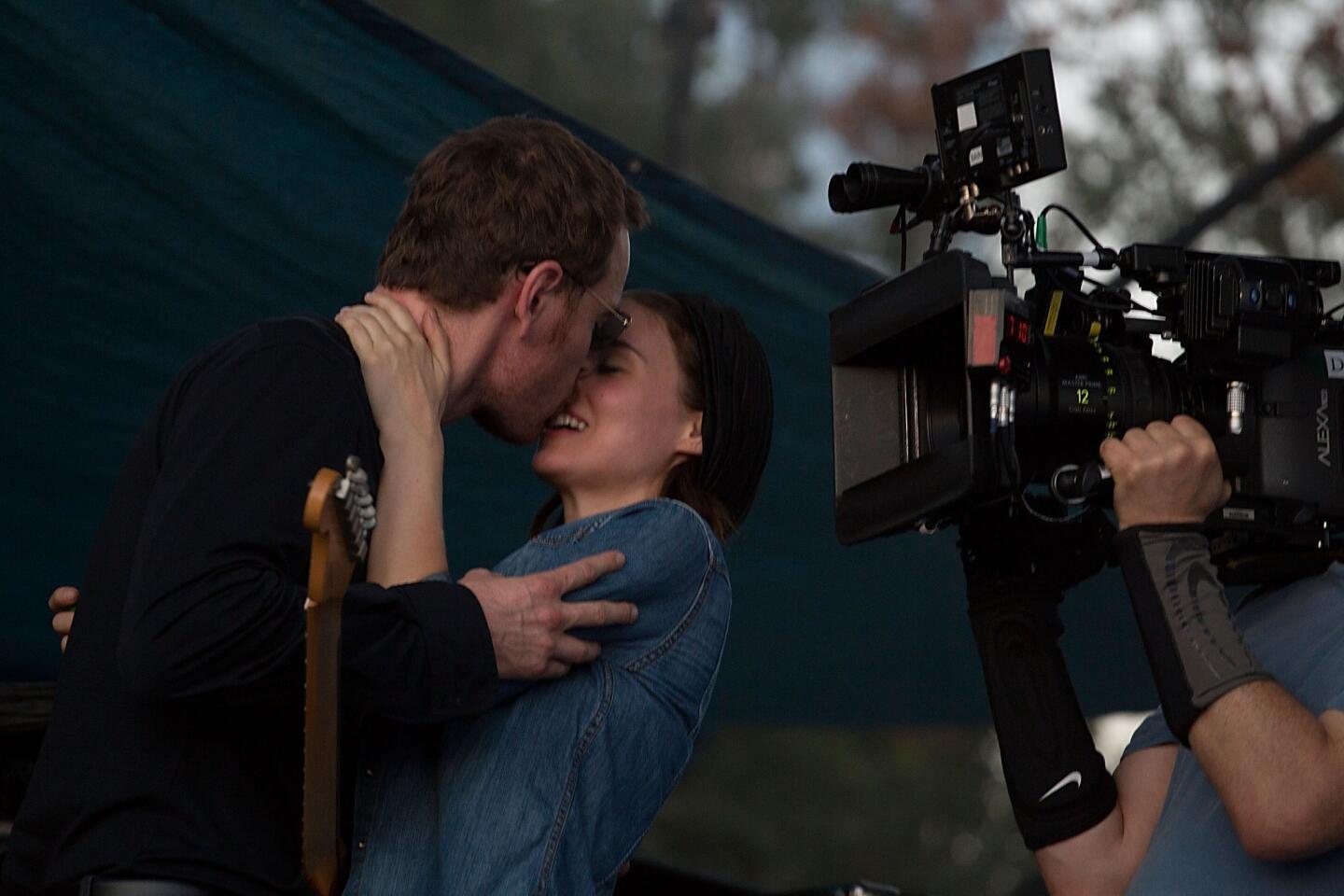
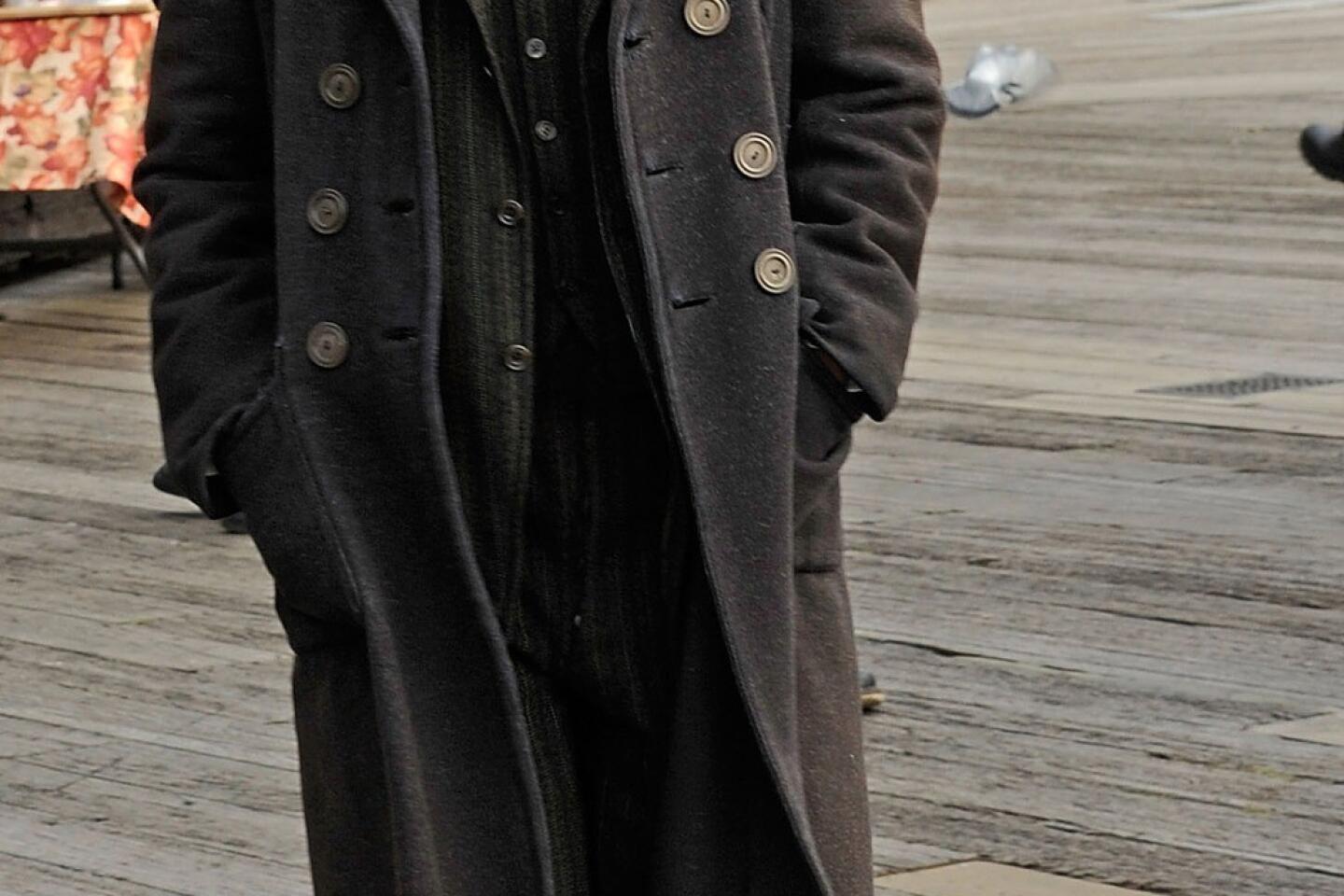

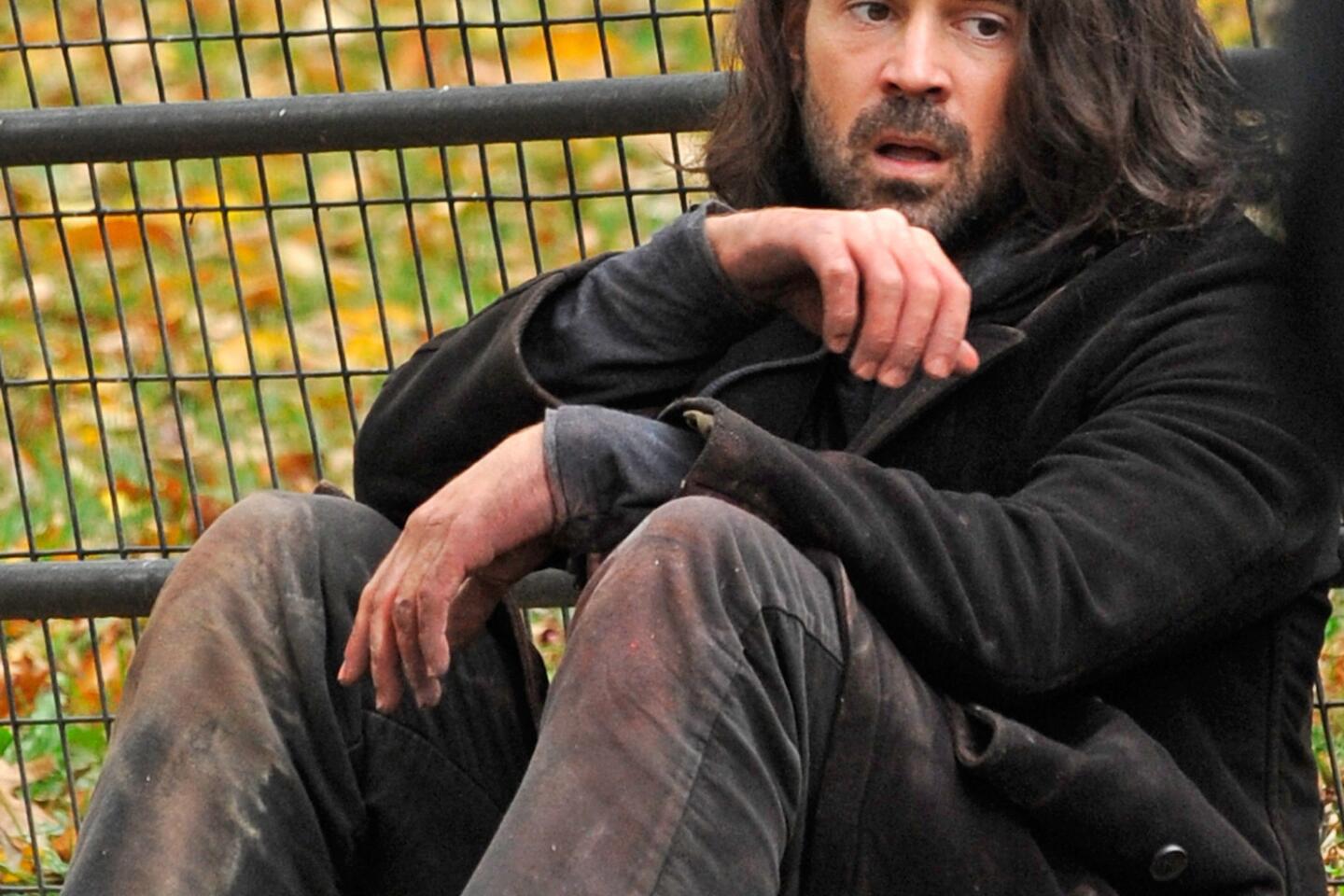
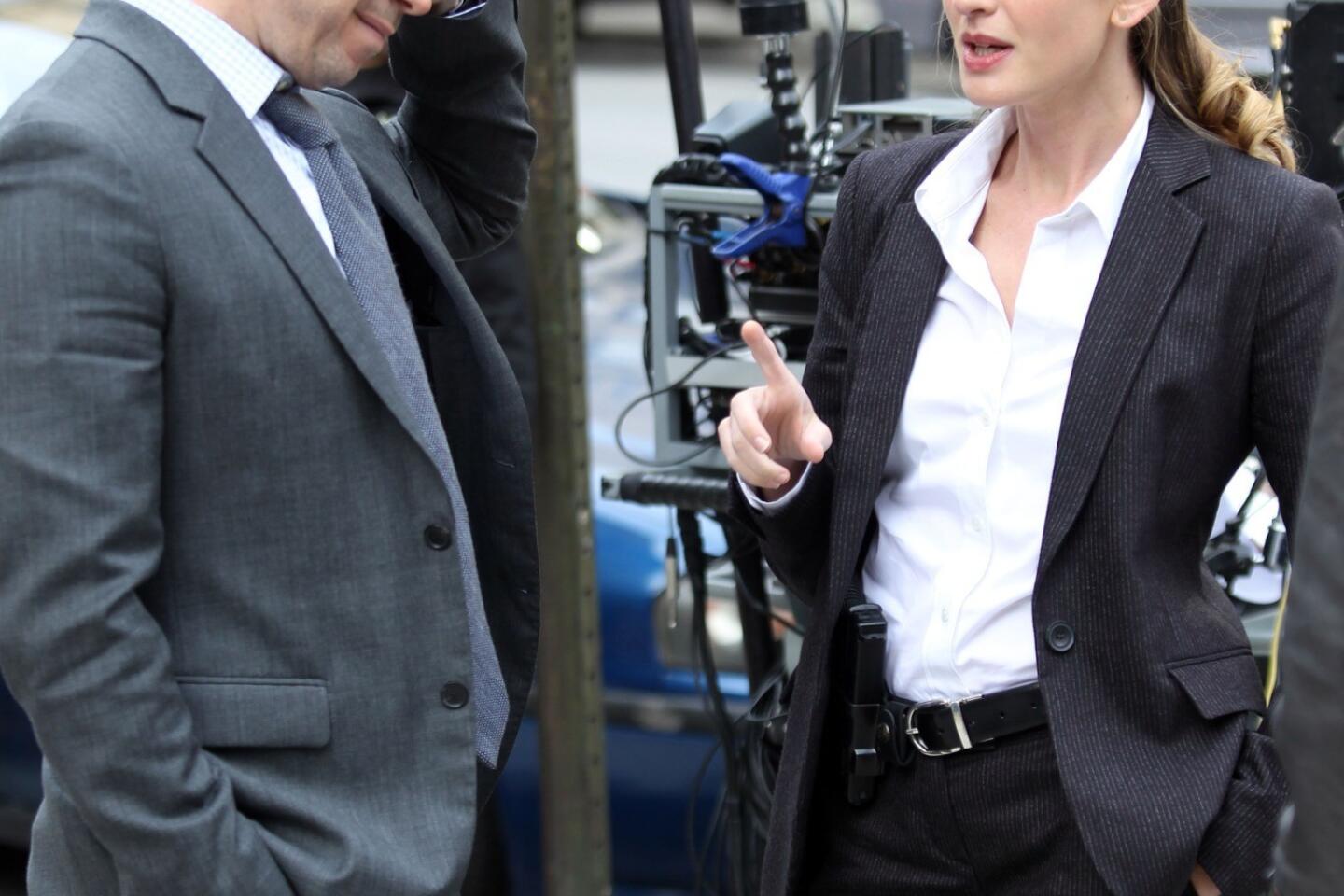
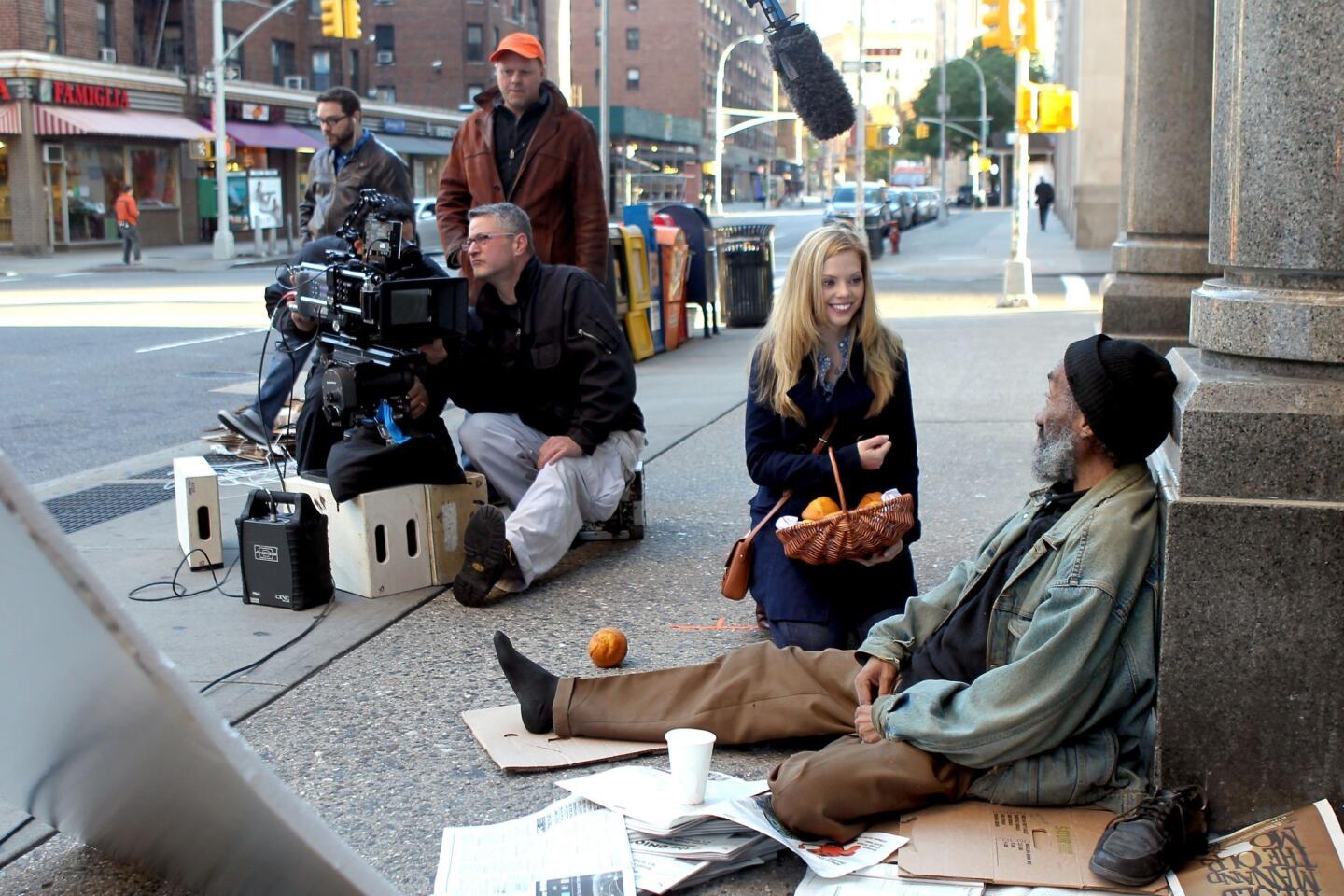

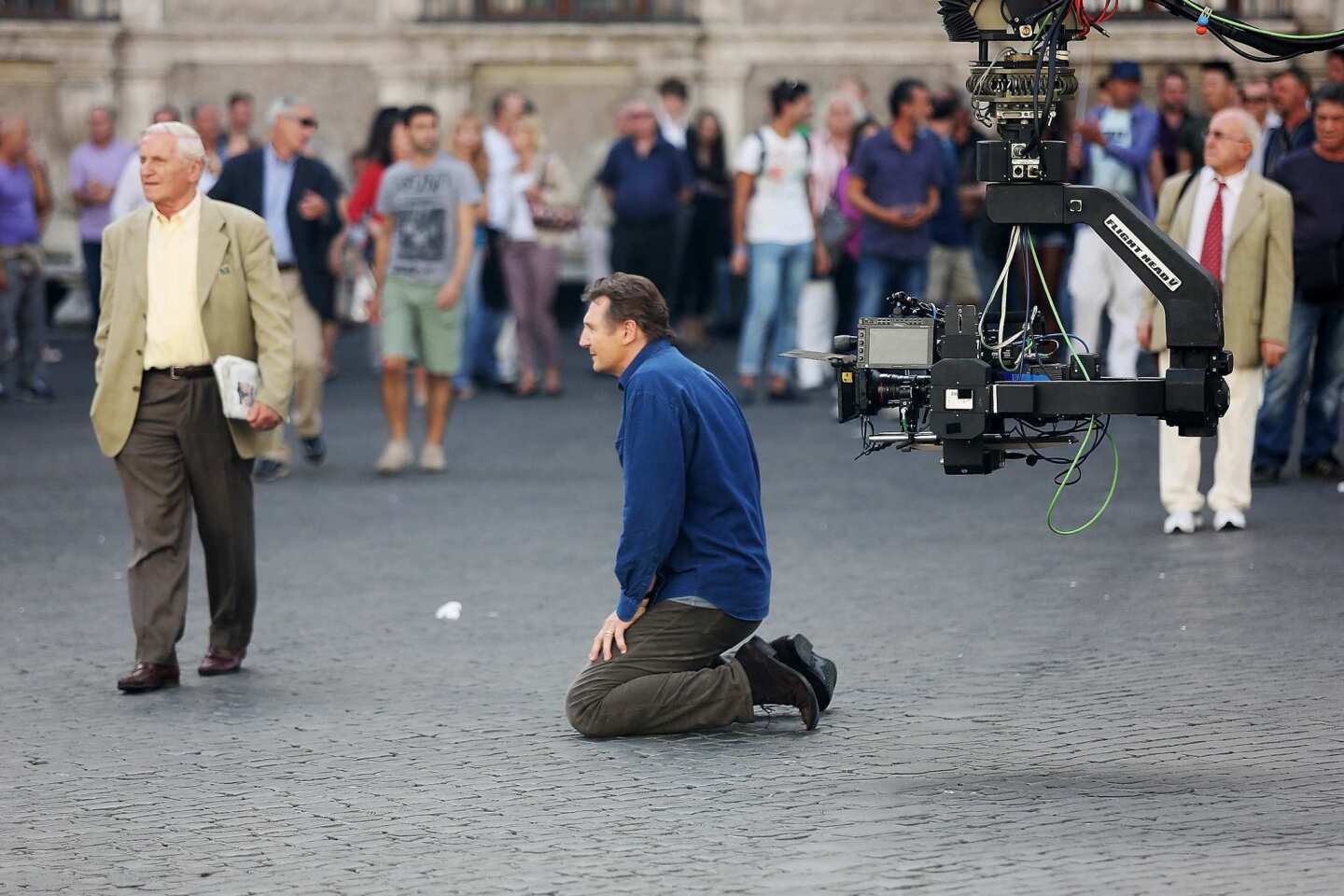
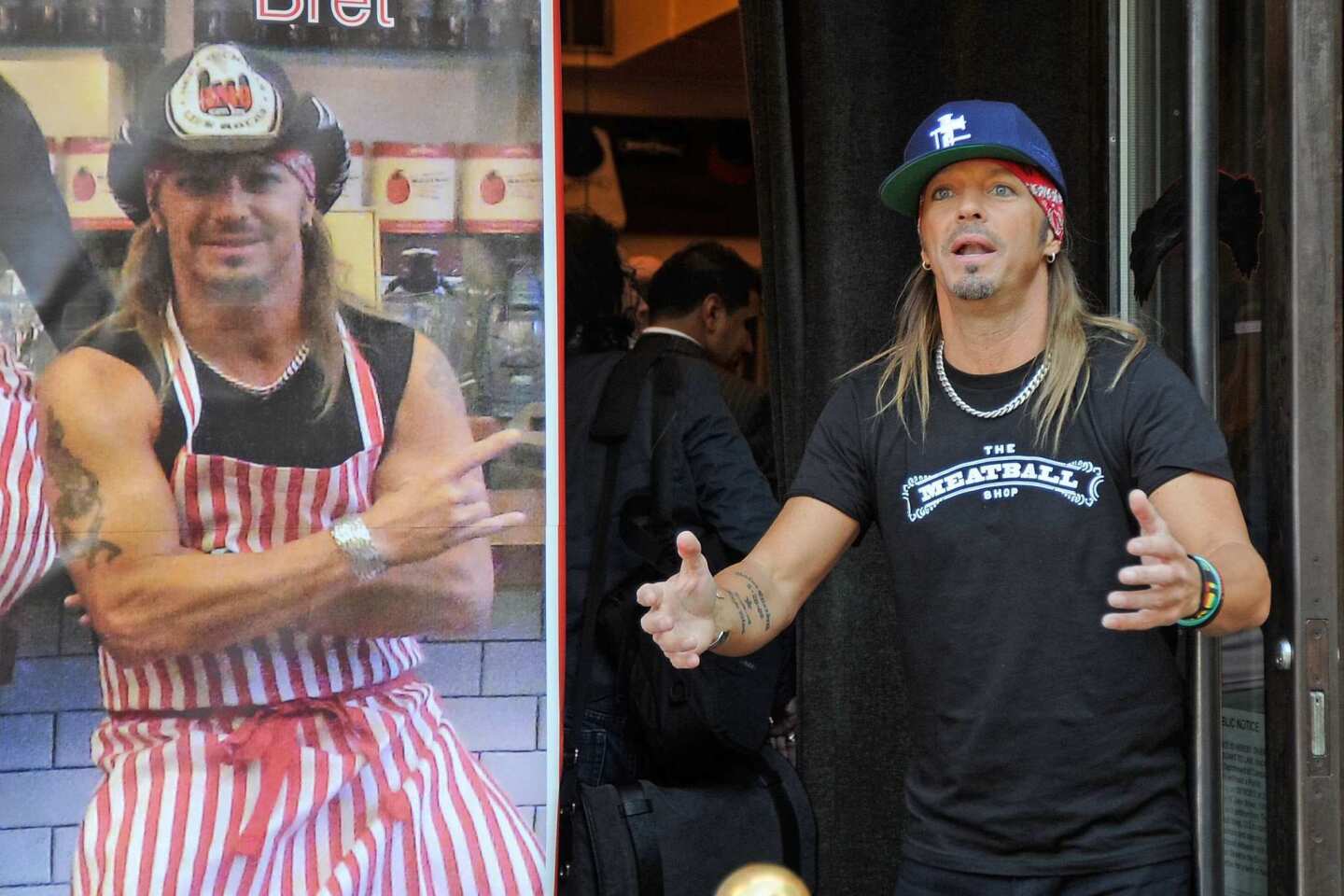
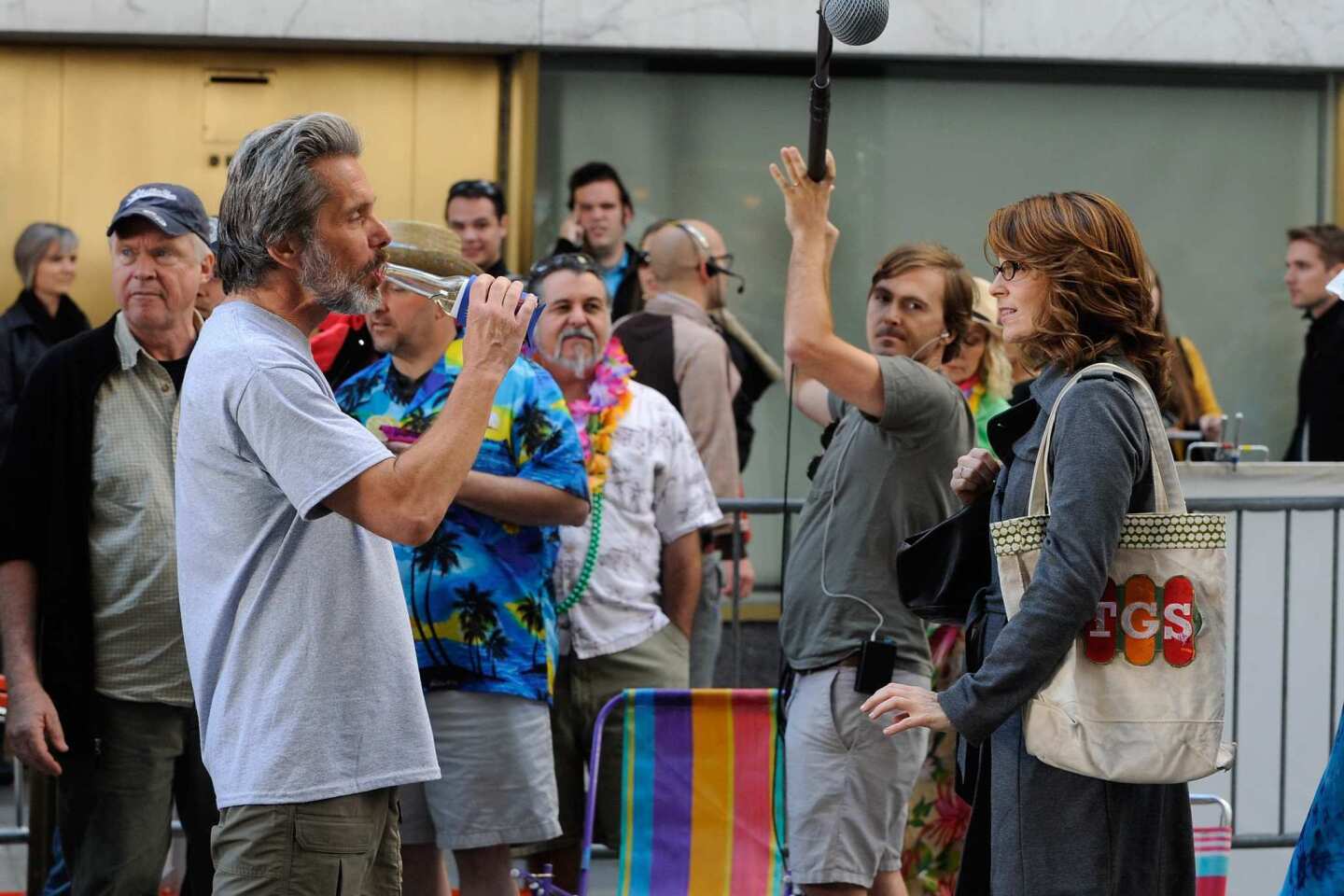
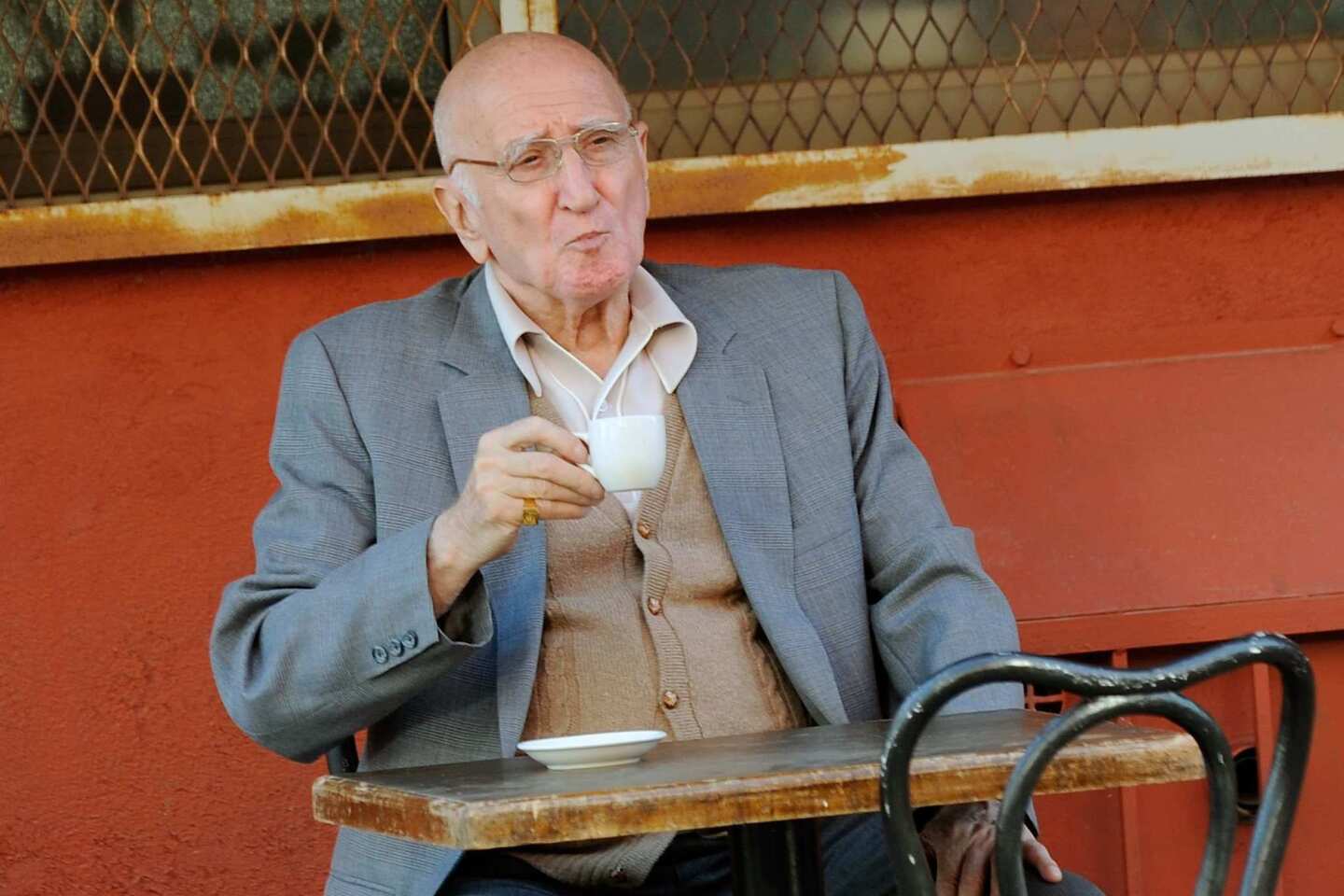


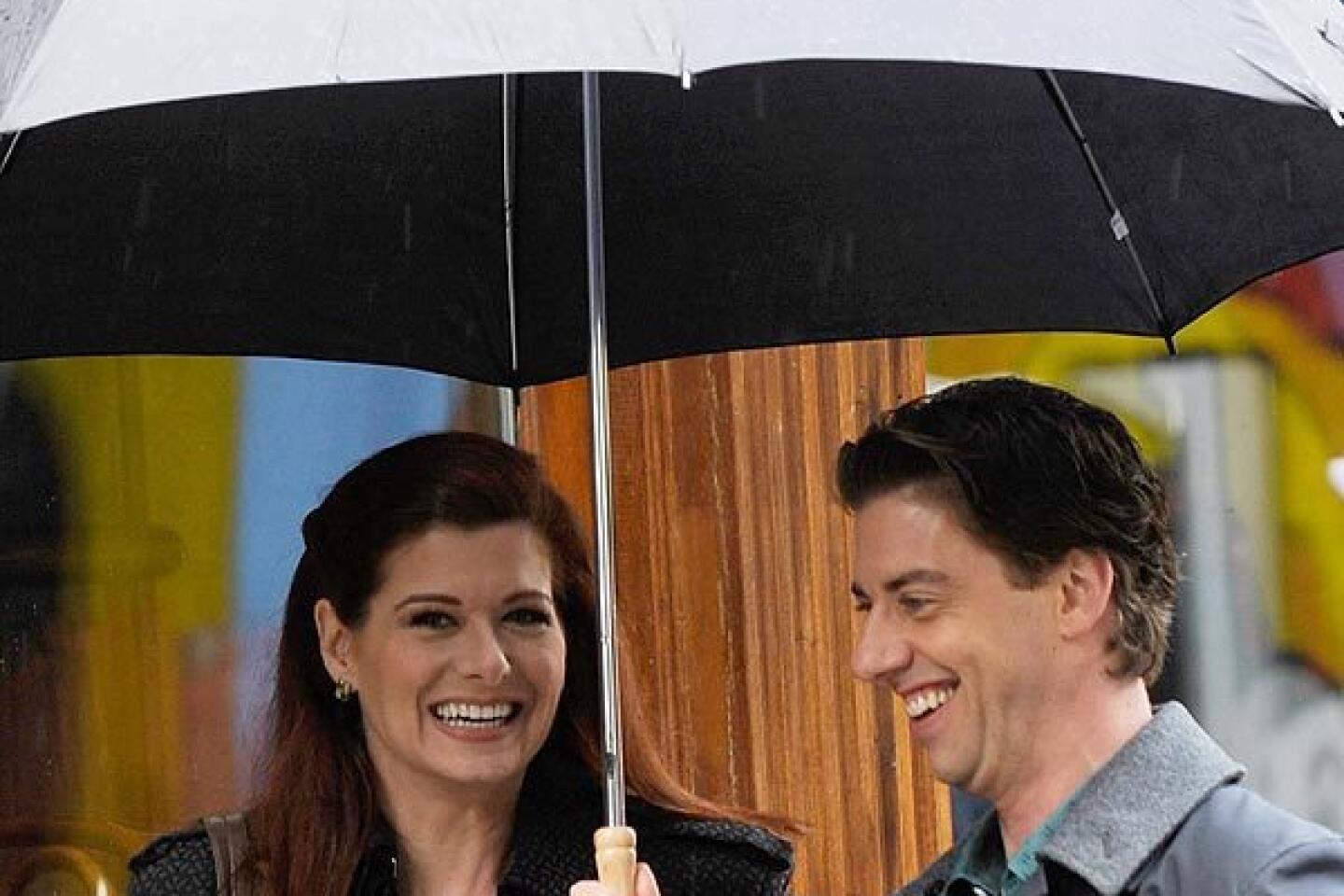
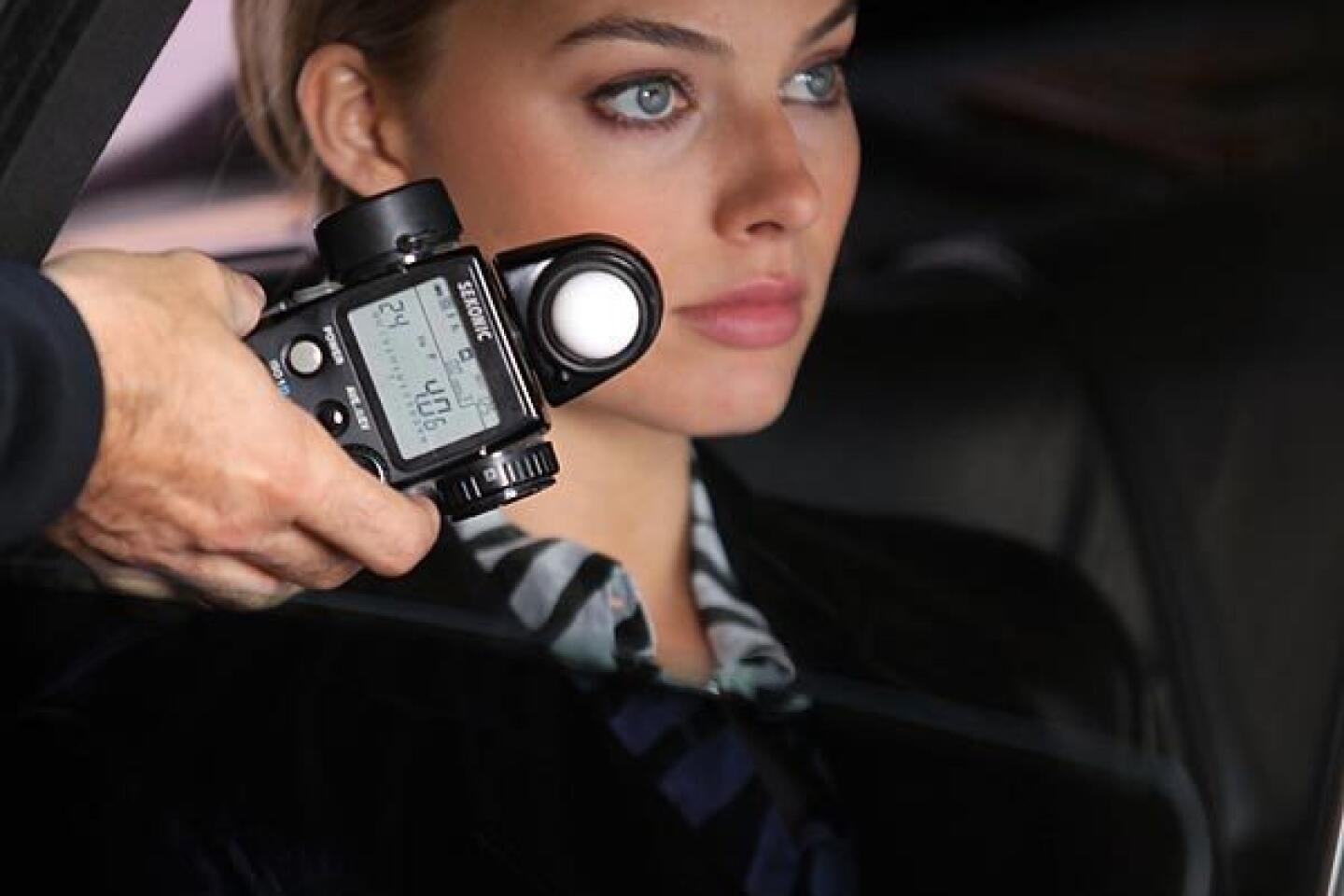
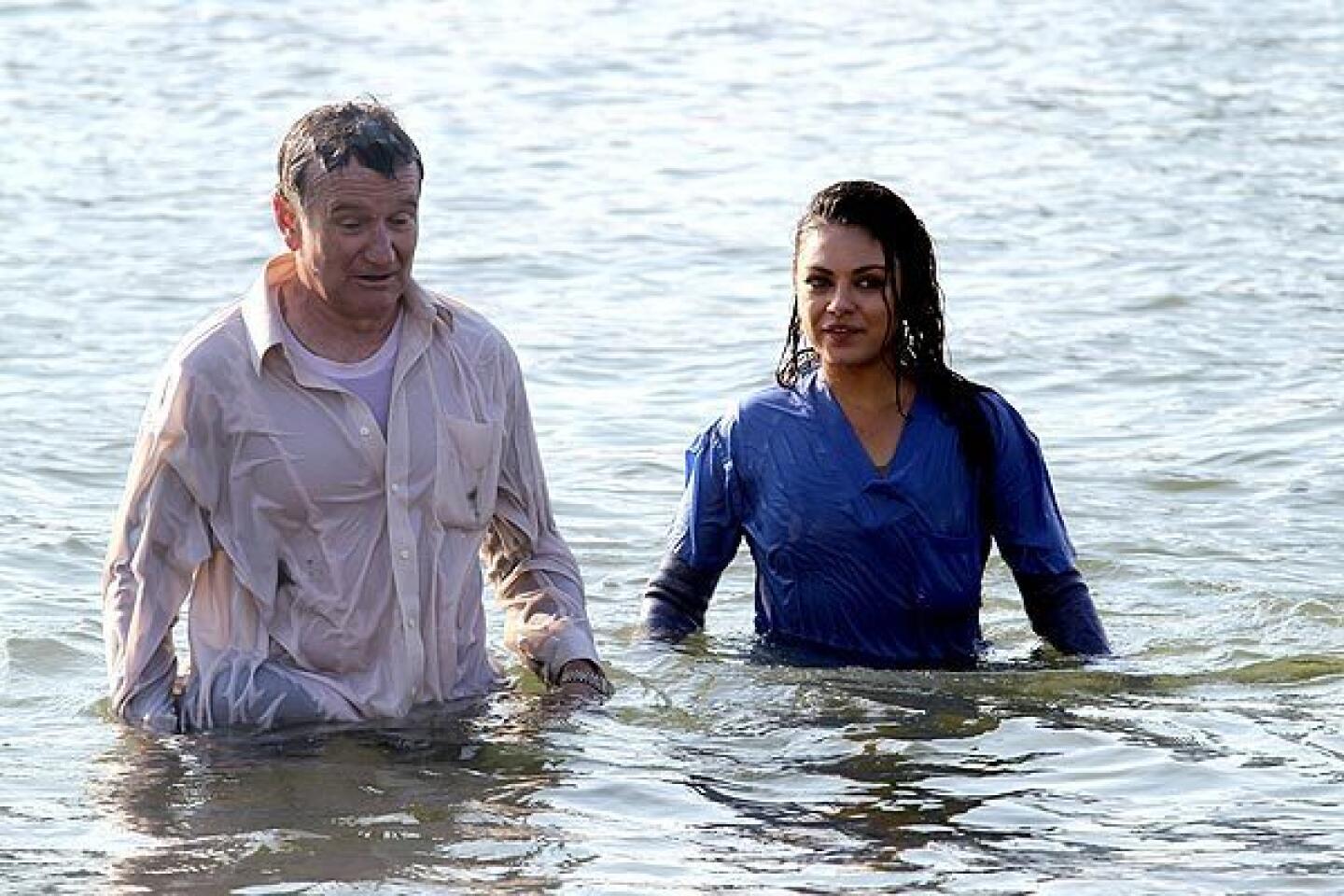
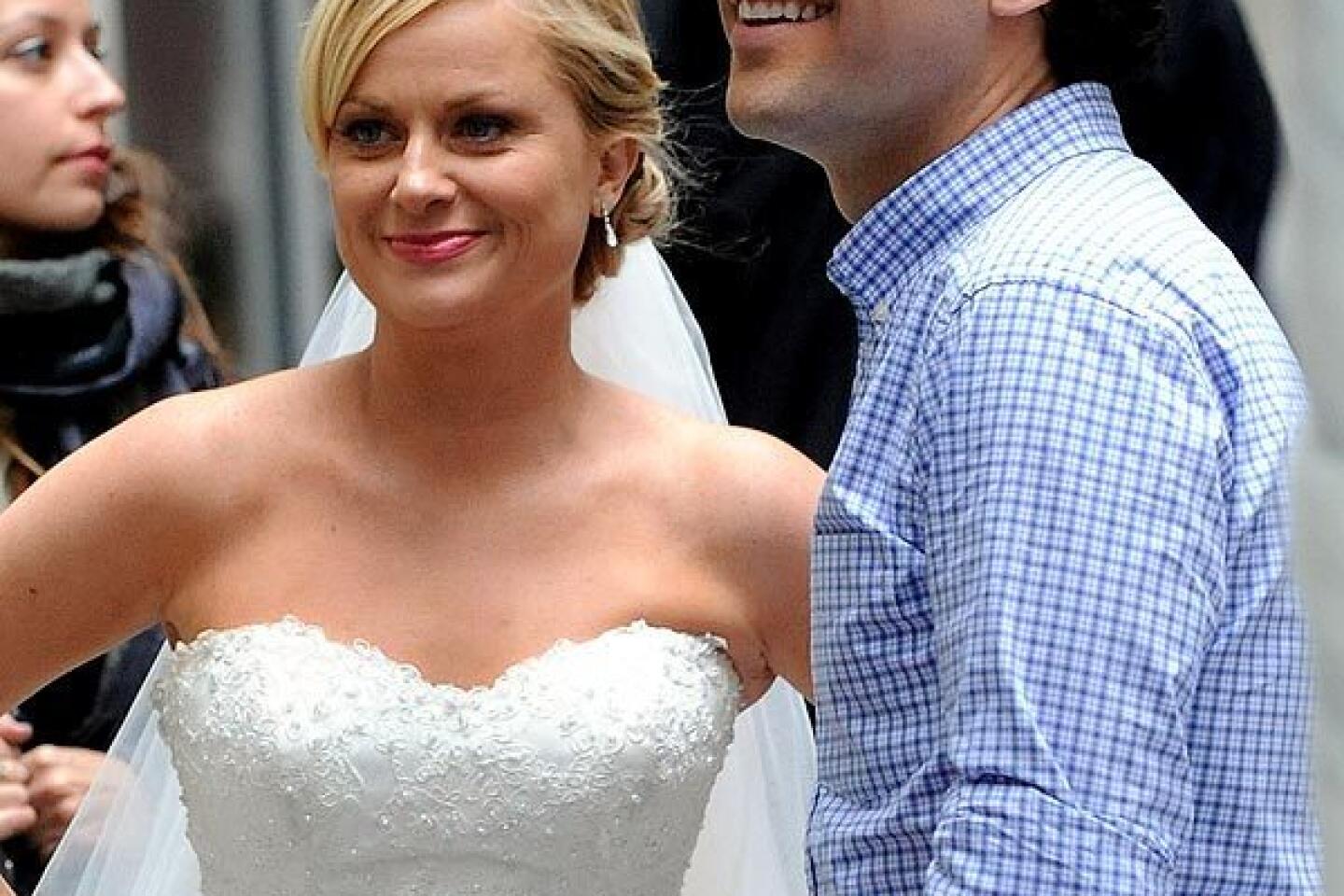
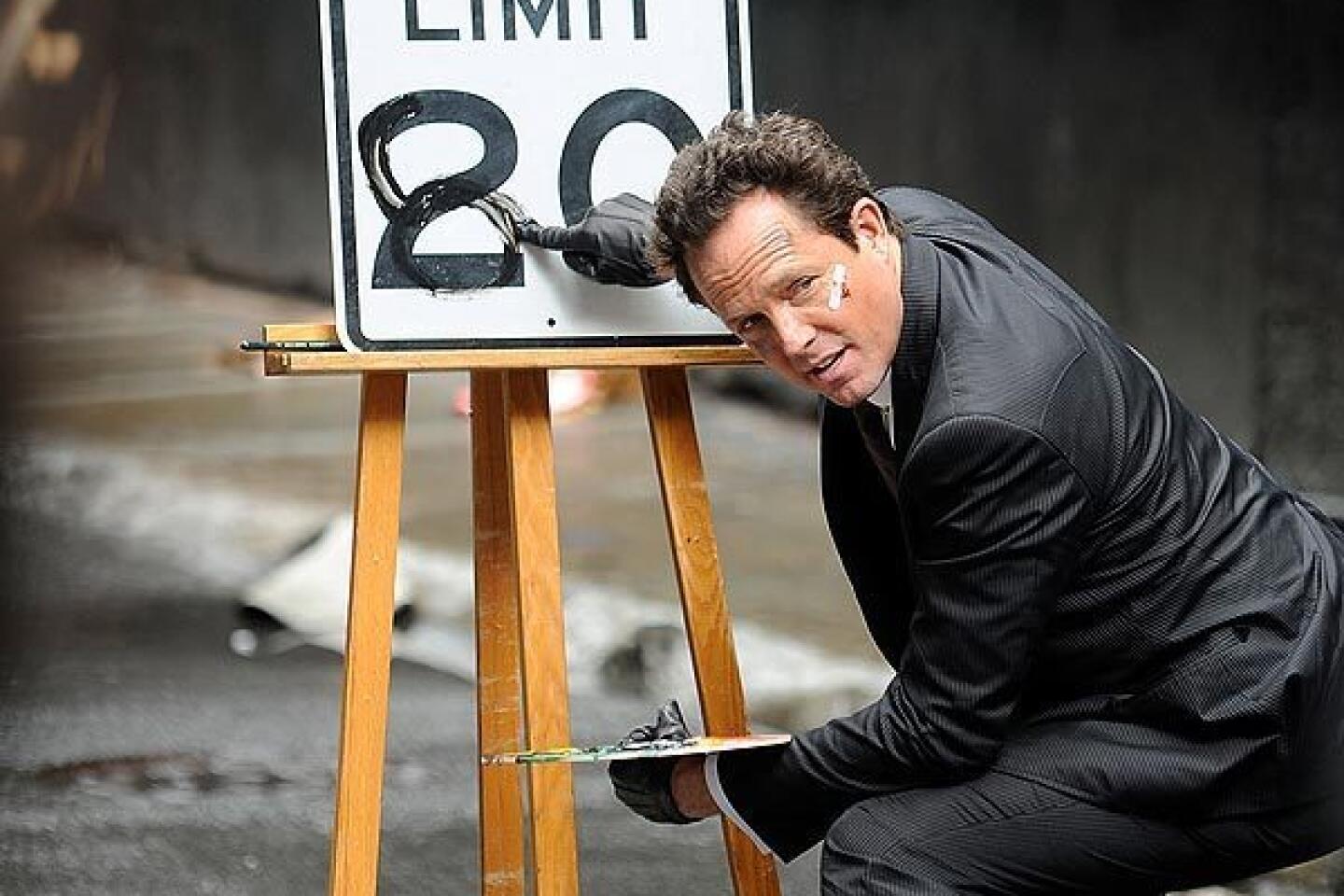
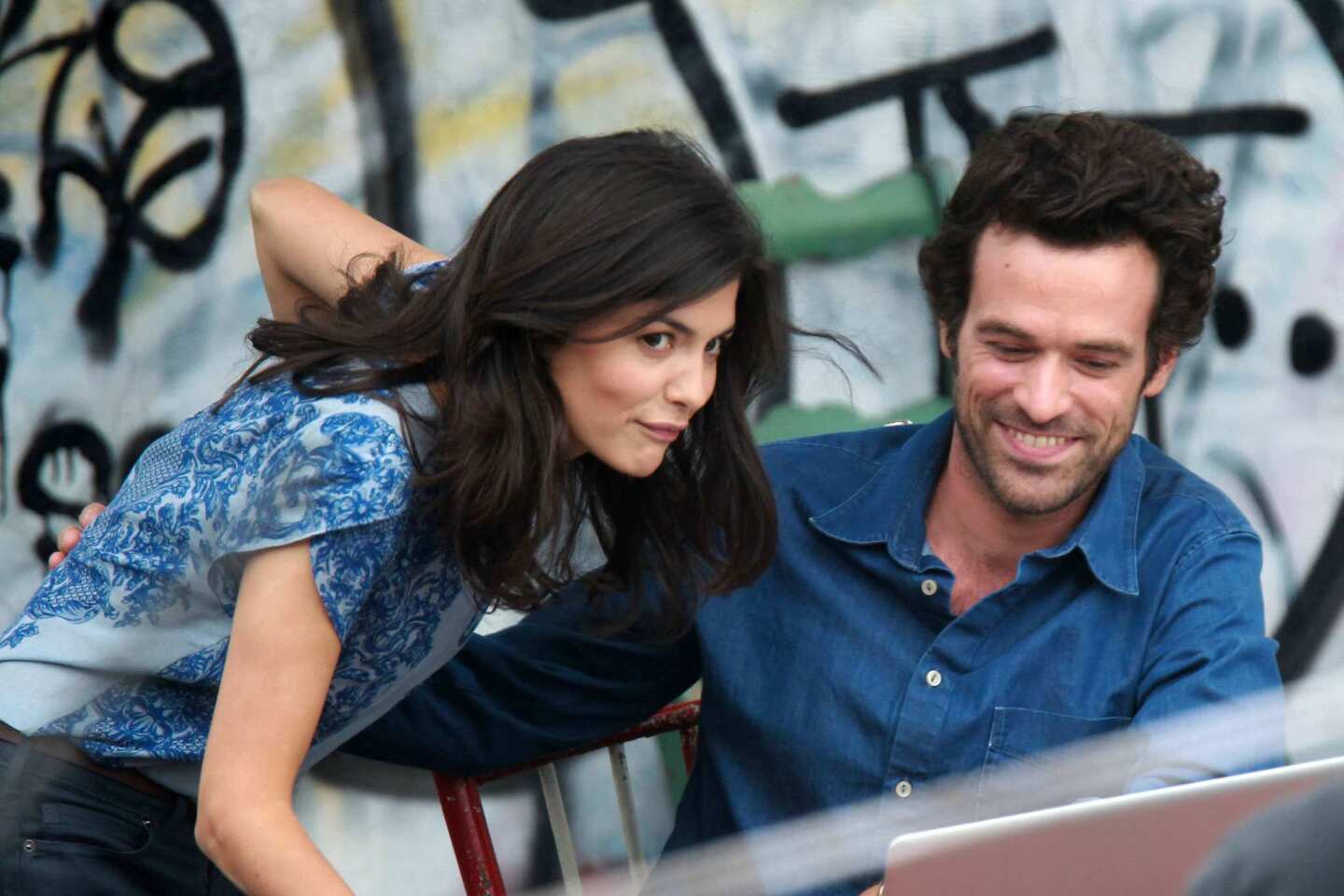

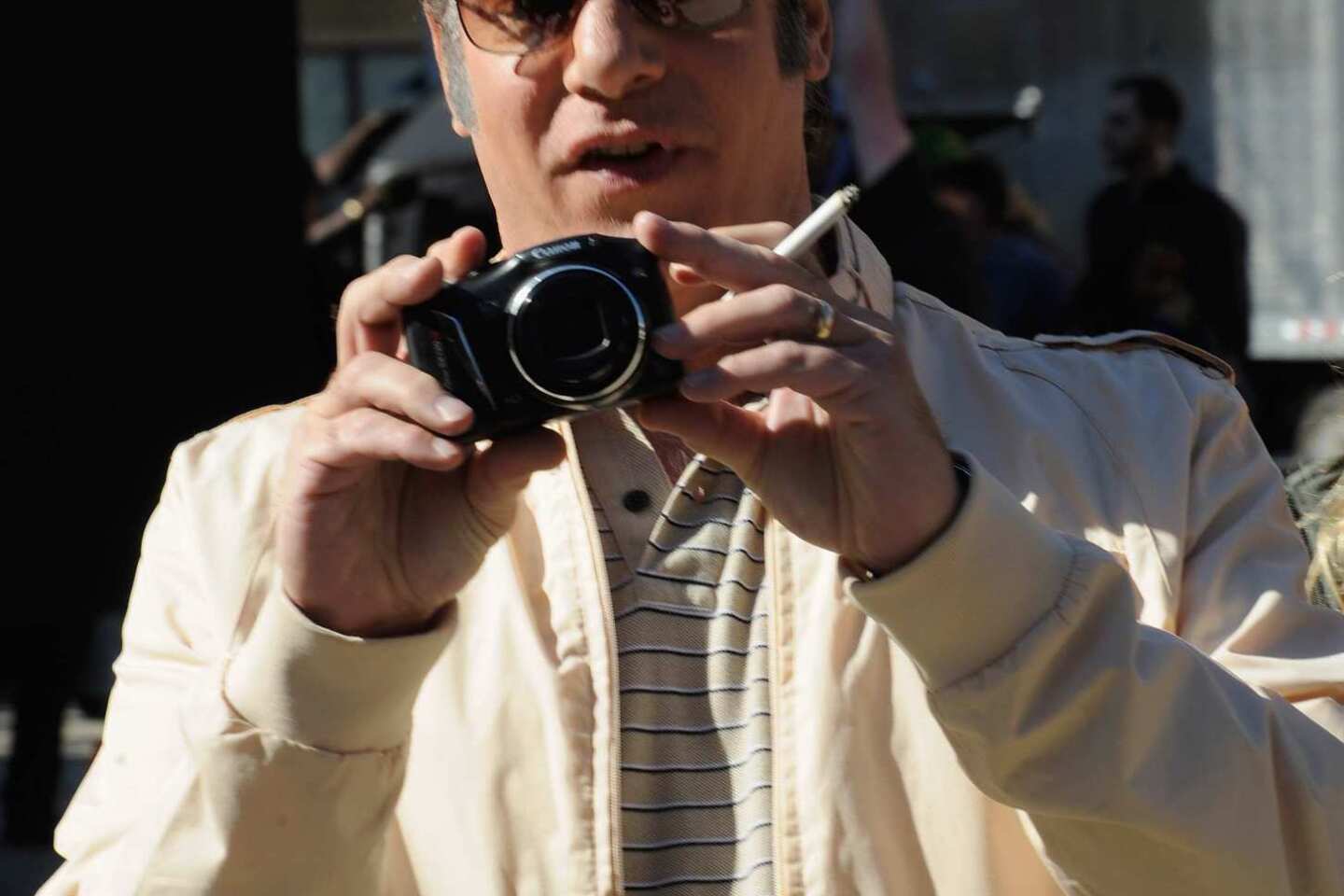
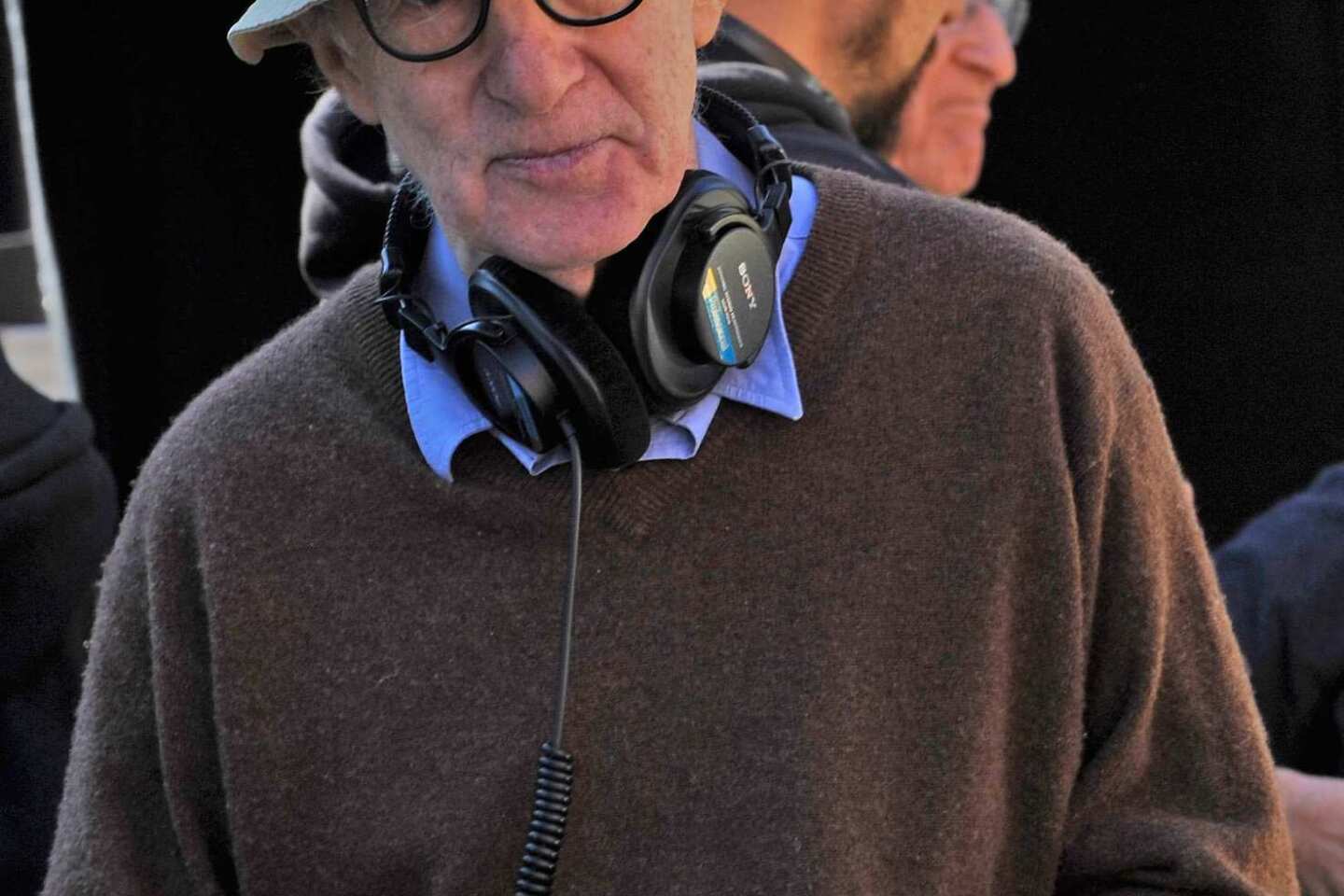
![[EMERSON, NJ - SEPTEMBER 17: Jonah Hill and Jon Bernthal filming on location for "The Wolf Of Wall Street" on September 17, 2012 in Emerson, New Jersey. (Photo by Bobby Bank/WireImage)] *** []](https://ca-times.brightspotcdn.com/dims4/default/2c5bd35/2147483647/strip/true/crop/2048x1365+0+132/resize/1440x960!/quality/75/?url=https%3A%2F%2Fcalifornia-times-brightspot.s3.amazonaws.com%2F15%2Ff0%2F109e6600a9f2db61df05af4ab423%2Flat-cindy-back-manx5bpd20120920122943)
